Risultati: 486

Funzione/Ruolo
Professoressa Ordinaria in Psicologia Sociale, Università di Trento
Percorso professionale
Si è laureata in psicologia presso l’Università di Padova (1992), dove ha conseguito il dottorato in Psicologia sociale nel 2000 dopo un periodo di ricerca presso l’UCLouvain (Belgio). Nel 2000 inizia la sua carriera come ricercatrice all’Università di Trento, dove è attualmente professoressa ordinaria in psicologia sociale.
Ha ricoperto varie cariche accademiche tra i quali la coordinazione del corso di laurea in Scienze e Tecniche Psicologiche e la coordinazione del programma di dottorato in Scienze Cognitive.
Risultati scientifici
Maria Paola Paladino ha svolto ricerca su temi centrali della psicologia sociale, come la percezione sociale, gli stereotipi, il pregiudizio e le disuguaglianze sociali, che ha affrontato adottando prospettive originali e innovative.
Inizialmente la sua ricerca si è focalizzata sull’attribuzione di umanità ai gruppi sociali e sulle conseguenze che questo processo può avere in contesti quali le identità nazionali, le relazioni di genere (ad es. nell’oggettivazione sessuale) e le interazioni con i robot sociali. Il contributo principale di questa linea di ricerca consiste nell’aver dimostrato empiricamente la presenza di fenomeni contemporanei di deumanizzazione o di “umanità relativa” (minore umanità rispetto al gruppo di appartenenza) e nell’evidenziare l’importanza di adottare misure implicite o indirette per rilevarli e coglierne le relative implicazioni sociali.
In un’altra linea di ricerca ha esplorato il ruolo dei processi di integrazione multisensoriale, coinvolti nella rappresentazione corporea, in fenomeni sociali quali il muoversi in sincronia (come ad es. avviene in alcuni rituali), la creazione di legami sociali e la rappresentazione e gestione dello spazio personale. Questi studi hanno contribuito a creare un ponte tra le neuroscienze cognitive e i processi di cognizione sociale, offrendo nuove prospettive per comprendere l’interazione tra corpo, mente e contesto sociale.
Più recentemente, la sua attività di ricerca si è concentrata sull’analisi dei fattori strutturali e psicologici che contribuiscono al perpetuarsi delle disuguaglianze sociali. Esempi includono la ricerca sul "gaydar" (l’abilità presunta di riconoscere l’orientamento sessuale di una persona), gli studi sul ruolo dell’accento (nativo vs. straniero) nella costruzione di giudizi di cittadinanza, la ricerca sui segnali ambientali, narrative e pratiche nei contesti d’istruzione che costituiscono delle barriere per la parità di genere o per il successo accademico di studenti provenienti da contesti socio-economici svantaggiati. Questa ricerca mira ad acquisire conoscenze utili per comprendere fenomeni attuali (es. divari di apprendimento) e sviluppare interventi che promuovano ambienti inclusivi e l’equità sociale.
Per quanto riguarda il trasferimento dei risultati della ricerca scientifica, ha contribuito allo sviluppo di una piattaforma digitale che comprende circa 20 attività finalizzate a sensibilizzare e far riflettere sulle radici culturali della violenza di genere e promuovere l’impegno al suo contrasto.
Attività editoriali e pubblicazioni
Maria Paola Paladino è stata associate editor del Personality and Social psychology Bulletin (2018-2021) e dell’European Journal of Social Psychology (2021-22).
E’ autrice di numerose pubblicazioni internazionali e nazionali.
Si può trovare una lista completa ed aggiornata delle sue pubblicazioni su Google Scholar
https://scholar.google.com/citations?user=I4897IgAAAAJ&hl=en&oi=ao
o sul sito dell’Università di Trento
https://webapps.unitn.it/du/it/Persona/PER0000767/Curriculum

Funzione/Ruolo
Professoressa associata presso il Dipartimento di Fisica dell’Università di Torino
Percorso professionale
Elisa Palazzi si laurea in Fisica nel 2003 e consegue un dottorato in Modellistica fisica per la protezione dell’ambiente nel 2008, entrambi presso l’Università degli studi di Bologna e in collaborazione con l’Istituto di Scienze dell’Atmosfera e del Clima del Consiglio Nazionale delle Ricerche (ISAC-CNR). In questo periodo lavora prevalentemente sulla misura di inquinanti atmosferici nelle aree urbane con tecniche di telerilevamento e sullo sviluppo di strumenti modellistici utili per analizzare e interpretare correttamente le misure. Presso ISAC-CNR svolge attività post-dottorale che include un contratto finanziato dall’Agenzia Spaziale Europea (ESA) finalizzato allo studio della circolazione atmosferica e dei suoi cambiamenti diagnosticati mediante misure satellitari di composti gassosi atmosferici a vita media lunga. Questi studi la avvicinano maggiormente alle attività di ricerca incentrate sul clima e sui cambiamenti climatici che Elisa Palazzi intraprende a partire dal 2011, anno in cui diventa ricercatrice a tempo indeterminato del CNR, presso la sede ISAC di Torino. Da allora studia i cambiamenti climatici nelle regioni di montagna focalizzandosi sull’amplificazione del riscaldamento e sui cambiamenti nelle precipitazioni in alta quota, e ne analizza gli impatti sulle risorse idriche, così importanti anche per le regioni di pianura. Nel 2021 si sposta all’Università come professoressa associata presso il Dipartimento di Fisica dell’Università di Torino, dove insegna Fisica del Clima e Climate System Dynamics and Modelling. E’ stata, dal 2016 al 2024, co-coordinatrice di una rete internazionale di studio sulle montagne chiamata GEO-Mountains (Group on Earth Observations–Global Network for Observations and Information in Mountain Environments) ed è tuttora co-chair di una Iniziativa della European Climate Research Alliance (ECRA) sui cambiamenti nel ciclo idrologico. E’ attualmente autrice e co-autrice di oltre 50 lavori pubblicati su riviste di settore.
Risultati scientifici
Elisa Palazzi ha iniziato la sua attività di ricerca al CNR di Bologna già durante la Laurea e il Dottorato, lavorando sullo sviluppo e l’applicazione di modelli di trasferimento radiativo in atmosfera, basati su tecniche Monte Carlo, e utili per l’interpretazione di misure di gas inquinanti effettuate con tecniche di telerilevamento passivo. Inizia in quegli anni una modalità di lavoro che la caratterizzerà anche successivamente, ovvero la ricerca a cavallo tra parte sperimentale e modellistica. Dal 2009 al 2011, finanziata dall’Agenzia Spaziale Europea (ESA), è stata responsabile scientifico di un progetto inserito nell’ambito del programma ESA “Changing Earth System Network”, in cui ha utilizzato le misure satellitari di gas in traccia a vita media lunga (CO2, CH4, N2O, CFC) per derivare le caratteristiche del trasporto atmosferico attraverso le barriere dinamiche subtropicali e polari. Dal 2011 si specializza maggiormente su studi relativi al clima, ai suoi cambiamenti e alla sua variabilità nelle regioni di alta quota che sono considerate sentinelle del clima che cambia. Studia in particolare l’amplificazione del riscaldamento in montagna e i cambiamenti nella precipitazione, che possono influire sui cambiamenti osservati nella criosfera montana. Su questi temi, ha pubblicato lavori su riviste prestigiose e collabora con una rete di ricerca internazionale per il reperimento e la condivisione di dati climatici nelle regioni di alta quota.
Attività editoriali e pubblicazioni
Elisa Palazzi è editor per la sezione “Remote Sensing of the Water Cycle” della Rivista Remote Sensing– MPDI, dal 2019.
Ha curato (con Antonello Provenzale e Klaus Fraedrich) la pubblicazione del libro The Fluid Dynamics of Climate(CISM International Centre for Mechanical Sciences 564, Courses and Lectures, Springer, 2016).
Fra le sue pubblicazioni più recenti:
[2024] Hunt, K. M. R., Baudouin, J.-P., Turner, A. G., Dimri, A. P., Jeelani, G., Pooja, Chattopadhyay, R., Cannon, F., Arulalan, T., Shekhar, M. S., Sabin, T. P., and Palazzi, E.: Western disturbances and climate variability: a review of recent developments, EGUsphere [preprint], https://doi.org/10.5194/egusphere-2024-820.
[2024] Dirk S Schmeller, James M Thornton, Davnah Urbach, Jake Alexander, Walter Jetz, Aino Kulonen, Robert TE Mills, Claudia Notornicola, Elisa Palazzi, Harald Pauli, Christophe Randin, Sergey Rosbakh, Roger Sayre, Nasrin Amini Tehrani, William WM Verbiest, Tom WN Walker, Sonja Wipf, Carolina Adler, Toward a set of essential biodiversity variables for assessing change in mountains globally, BioScience 74 (8), 539-551.
[2024] Ferguglia, O, E Palazzi, E Arnone, Elevation dependent change in ERA5 precipitation and its extremes, Climate Dynamics 62 (8), 8137-8153.
[2023] Ferguglia, O, J von Hardenberg, E Palazzi, Robustness of precipitation Emergent Constraints in CMIP6 models, Climate Dynamics 61 (3), 1439-1450.
[2022] AP Dimri, E Palazzi, AS Daloz, Elevation dependent precipitation and temperature changes over Indian Himalayan region, Climate Dynamics 59 (1), 1-21.
[2022] Toledo, O., Palazzi, E., Cely Toro, I.M. et al. Comparison of elevation-dependent warming and its drivers in the tropical and subtropical Andes. Clim Dyn 58, 3057-3074. https://doi.org/10.1007/s00382-021-06081-4
[2022] Rotach, M. W., Serafin, S., Ward, H. C., Arpagaus, M., Colfescu, I., Cuxart, J., De Wekker, S. F. J., Grubic, V., Kalthoff, N., Karl, T., Kirshbaum, D. J., Lehner, M., Mobbs, S., Paci, A., Palazzi, E., et al). A collaborative effort to better understand, measure and model atmospheric exchange processes over mountains, Bulletin of the American Meteorological Society, https://journals.ametsoc.org/view/journals/bams/aop/BAMS-D-21-0232.1/BAMS-D-21-0232.1.xml
[2022] Brussolo, E., E. Palazzi, J. von Hardenberg, et al, Aquifer recharge in the Piedmont Alpine zone: historical trends and future scenarios. Hydrol. Earth Syst. Sci., 26, 407-427, https://doi.org/10.5194/hess-26-407-2022.
[2022] Pepin, N. C., et al. Climate changes and their elevational patterns in the mountains of the world. Reviews of Geophysics, 60, e2020RG000730. https://doi.org/10.1029/2020RG000730
[2021] James M. Thornton, Elisa Palazzi, Nicolas C. Pepin, et al, Toward a definition of Essential Mountain Climate Variables, One Earth,Volume 4, Issue 6.
[2020] Terzago, S; Andreoli, V; Arduini, G; Balsamo, G; Campo, L ; Cassardo, C; Cremonese, E; Dolia, D; Gabellani, S; von Hardenberg, J; di Cella, UM; Palazzi, E; Piazzi, G; Pogliotti, P; Provenzale, A: “Sensitivity of snow models to the accuracy of meteorological forcings in mountain environments”, Hydrology and Earth System Sciences, Volume: 24, Issue: 8, pages: 4061-4090, ISSN: 1027-5606.
[2020] Sardella, A; Palazzi, E; von Hardenberg, J; Del Grande, C.; De Nuntiis, P.; Sabbioni, C.; Bonazza, A: “Risk mapping for the sustainable protection of cultural heritage in extreme changing environments”, Atmosphere, Volume 11, Issue 7, Article number 700, ISSN: 2073-4433.
Riconoscimenti e premi
"Premio Gian Giacomo Drago e Fausta Rivera Drago", per l’anno 2017 conferito dall'Istituto Lombardo Accademia di Scienze e Lettere da attribuirsi a uno studioso di non oltre 40 anni per rilevanti ricerche sul tema dei cambiamenti climatici e dei suoi effetti sull’ambiente e la salute dell’uomo.

Funzione/Ruolo
Responsabile Ufficio Legale Associazione Italiana Calciatori, Componente Consiglio direttivo Associazione Italiana Avvocati dello Sport
Percorso professionale
Dopo la Laurea in Giurisprudenza conseguita all’Università d Roma La Sapienza, ottiene l’abilitazione alla professione di avvocata e si specializza in diritto sportivo, con un master organizzato dallo Sports Law and Policy Center (SPLC) insieme alla Rivista di Diritto ed Economia dello Sport, un corso specialistico alla Business School dell’università LUISS di Roma e un corso di specializzazione del Consiglio Nazionale Forense. Inizia la sua carriera professionale come Fiduciaria dell’Assocalciatori, divenendo in seguito Responsabile dell’Ufficio Legale Dilettanti e Calcio Femminile dell’Assocalciatori.
Attività editoriali e pubblicazioni
Priscilla Palombi è autrice del Capitolo 'FITAV', in La Giustizia Sportiva, Volume II, a cura di Michele Colucci e Salvatore Civale, in collaborazione con Associazione Italiana Avvocati dello Sport, edito da Sport and Law Policy Center, 2015, e coautrice (con Michele Colucci) dell’articolo “Il vincolo sportivo e la sua (irreversibile) abolizione, considerazioni sull’istruttoria dell’AGCOM nel caso della FIPAV”, Rivista di Diritto e Economia dello Sport, Vol. XVIII, Fascicolo unico 2022.

Funzione/Ruolo
Professoressa associata di Scienza Politica all'Università di Catania
Percorso professionale
Si laurea in Scienze Politiche all’Università di Catania nel 1993 e si specializza in Relazioni Internazionali e Unione Europea con una tesi di dottorato sul lobbying europeo discussa all’Università di Padova nel 1998. Come titolare della Italian Chair of Mediterranean Diplomacy and Relations, attivata presso la Mediterranean Academy of Diplomatic Studies dell’Università di Malta (1997 - 1999), nonché come Assegnista di ricerca (1999 - 2002) e Ricercatrice (2000 - 2002) presso l’Università di Catania incentra le sue attività didattiche e di ricerca sulle relazioni EuroMediterranee e il Partenariato EuroMediterraneo. Diventa professoressa associata di Scienza Politica nel 2002 e si dedica anche alla didattica in lingua inglese con il corso di Mediterranean Politics di cui è titolare ininterrottamente dal 2004. Ha erogato questo insegnamento anche a livello di Dottorato di Ricerca presso la Scuola Superiore di Catania e presso l’IMT (Lucca) e a distanza presso l’Arcadia University, Glenside (Pennsylvania, USA). Dall’a.a. 2008-2009 insegna Migration and the Mediterraneannel Master in European Studies alla LUISS. Valutatrice dell’ANVUR dal 2013. Ha fatto parte del Comitato direttivo della SISP e dell’EISA. È co-editor della rivista Global Affairs.Nel quadro della mobilità ERASMUS ha insegnato presso l’Università di Ghent, Ljubljana, Paris Est-Créteil, Bilkent ad Ankara. Tra il 2007 e il 2014 è stata Presidente del Corso di Laurea in Politica e Relazioni Internazionali (2007-2014).
Ha organizzato, oltre a sezioni tematiche a convegni nazionali e internazionali, Summer Schools, Conferenze e Seminari internazionali:
- WECCS Crash Course, Welcome to Europe, my Country, my City, my School, organized within the ERASMUS+ WECCS project,University of Catania, 10 - 12 April 2019.
- EUMedEA Crash Course, University of Catania, 2016, 2017, 2018 http://www.dsps.unict.it/eumedea/events/crash_course
- EISAConference9thPan European Conference in International Relations: The Worlds of Violence, Giardini Naxos (Sicily) 23-26 September 2015. www.paneuropeanconference.org/
- Convenorof the ‘Celebrating Europe Day’ with Enrique Baron Crespo, former EP President, within the programme ‘European Parliament to Campus’. Catania, 9 May 2015.Talk on The European Union and its Mediterranean Neighbours: new and old democracies.
- Jean Monnet IRA academic coordinator, EUDEM Conferenceon ‘Winds of Democratic Change in the Mediterranean? Actors, Processes and possible Outcomes’, 19-21 May 2011.
- Scientific responsibleof the EMUNI SUMMER SCHOOL 2009on European Policies and Economic Transition in the Mediterranean Basin,University of Catania, 12-26 July 2009.
- Annual SISP Conference, Catania, 20-22 September 2007.
Risultati scientifici
Ha partecipato a numerosi gruppi di ricerca su scala nazionale (PRIN) o internazionale (HORIZON 2020, INTAS, Jean monnet Action). Ha coordinato ricerche nel quadro dell’Azione Jean Monnet. Ha contribuito al consolidamento degli studi sulle relazioni Euro-Mediterranee a livello nazionale e internazionale attraverso didattica e ricerca. Nello specifico, ha promosso la ricerca sui processi di democratizzazione nei paesi del Medio Oriente e del Nord Africa favoriti dall’Unione Europea nel quadro dell’Azione Jean Monnet finanziata dalla Commissione Europea EUDEM, sui fenomeni migratori nel quadro della Cattedra Jean Monnet EUMedEA e dell’Horizon 2020 TRANSCRISIS. Le sue ricerche in corso vertono sulla gestione migratoria su più livelli.
Attività editoriali e pubblicazioni
Tra le sue pubblicazioni, si segnalano le monografie: L'Unione Europea "potenza divisa" nel Mediterraneo, Milano, Egea, 2012; Il lobbying europeo, Milano, Giuffré, 2000; L’Unione Europea nel sistema politico globale, Beijin, China Social Sciences Press, pp. 1-268, con Attinà Fulvio, Longo Francesca, Monteleone Carla, Rosa Paolo, 2009 (in cinese); Identità, partiti ed elezioni nell’Unione Europea, Cacucci, Bari, 1995, con Attinà Fulvio e Longo Francesca.
Ha curato: Sulle onde del Mediterraneo. Cambiamenti globali e risposte alla crisi migratoria, EGEA, Milano, 2016; Winds of Democratic Change in the Mediterranean? Processes, Actors and possible Outcomes, con Rosa Rossi e Soveria Mannelli, Rubbettino, 2012.
Di seguito una selezione delle sue pubblicazioni scientifiche più recenti:
The EU and Migration in the Mediterranean. EU Borders’ Control by Proxy,in Journal of Ethnic and Migration Studies, Special Issue edited by Valeria Bello and Sarah Leonard, in print.
L’Italia e i flussi migratori nel Mediterraneo Centrale: lo snodo libico, in Baldinetti Anna, Cassarino Mirella, Melfa Daniela (a cura di), Oltre-confine. Temi e fonti per lo studio dell’Africa, 2019, Roma, Aracne.
Libia e intervento militare. Il principio della responsabilità di proteggere nel dibattito politico italiano, con Ornella Urso,in Francesca Longo e Pierangelo Isernia (editors), La Politica Estera Italiana nel nuovo millennio, Il Mulino, Bologna, 2019, pp. 117-148.
When Responsibility to Protect ‘hits home’: The EU and the Syrian crisis, co-authored with Iole Fontana, in: ‘Third World Quarterly’, 2018, vol. 39, issue 1, pp. 1-17.
Intercultural Dialogue across the Mediterranean Troubled Waters: Challenges to the Anna Lindh Foundation,in Richard Gillespie and Frederic Volpi (editors), Handbook of Mediterranean PoliticsLondon/New York, Routledge, 2018, pp. 394-407.
The EU and Migration in the Mediterranean. Entrapped between the humanitarian approach and border security, in Moccia Luigi and Pop Lia (eds), Migrants and Refugees Across Europe, European University Press, Boschum (Germany), 2017, pp. 139-168.
La difficile transizione democratica nel Vicinato Meridionale. Il ruolo dell’Unione Europea tra persistenza e cambiamento, in Marco Mascia (a cura di), Verso un sistema partitico europeo transnazionale, Cacucci, Bari, 2014, pp. 169-180.
L’Unione Europea nel Mediterraneo: oltre la primavera araba, in Guerino D'Ignazio, Nicola Fiorita, Silvio Gambino, Francesco Raniolo, Alberto Ventura (a cura di), Transizioni e democrazia nei paesi del Mediterraneo e del vicino oriente,Edizioni Periferia, Cosenza, 2014, pp. 287-309.
Riconoscimenti e premi
Membership Onoraria dell’EISA (European International Studies Association) dal 2017.
Titolare della Cattedra Jean Monnet EUMedEA finanziata dalla Commissione europea (2015-2018)
Coordinatore Accademico dell’attività di informazione e ricerca finanziata dalla Commissione Europea Jean Monnet Information and Research Activity on EU Foreign Policy and Democracy Promotion (EUDEM)(2010-2011)
Responsabile Scientifico del Modulo Europeo Jean Monnet finanziato dalla Commissione EuropeaJean Monnet Module on EU Roles in the International Governance(2005-2010)
International Visitor Leadership Program, Washington/New York, giugno 2005, programma di formazione organizzato e finanziato dall’AMbasciata Americana a Roma insieme al Dipartimento di Stato USA.

Sport
Competenze: comunicazione sportiva, geopolitica dello sport, kickboxing, management di eventi sportivi, politica sportiva, uguaglianza di genere
Parole chiave: agonismo sportivo, CONI (Comitato Olimpico Nazionale Italiano), disciplina nello sport, donne e sport, leadership femminile
Regione: Sicilia
Funzione/Ruolo
Ex atleta, campionessa mondiale di kickboxing. Consigliera Nazionale del CONI (Comitato Olimpico Nazionale Italiano).
Percorso professionale
Elena Pantaleo inizia praticare kickboxing nel 2011, e, a oggi, è 10 volte campionessa italiana, 5 volte campionessa europea e 3 volte campionessa mondiale di kickboxing. È stata eletta Consigliera Nazionale del CONI in quota atleti per il quadriennio 2021-2025 e, come campionessa in carica, è qualificata ai prossimi World Combat Games che si terranno a Ryiadh in Arabia Saudita a Ottobre 2023.
Parallelamente all’attività agonistica ha sempre affiancato lo studio, conseguendo la laurea in Giurisprudenza all’Università di Palermo con il massimo dei voti e successivamente un master in Geopolitica all’Università di Roma La Sapienza. Attualmente lavora in Cassazione come funzionaria addetta all’Ufficio del Processo, è alunna della Scuola di Politiche e sta svolgendo un secondo master all’Università Alma Mater di Bologna, in Comunicazione e Marketing dello sport.
È Team manager del team Proper (uno dei team di maggior successo della pointfighting a livello mondiale), si occupa di organizzare il Proper Summer Camp oltre a tutta la comunicazione del team e delle sue iniziative. Per la Federazione Italiana di kickboxing ha gestito la comunicazione dei canali social per i Campionati Europei di Antalya 2022.
Risultati scientifici
Premio dual career, Gala dello Sport Opes 2022
Stella d'oro dirigenti, CONI 2021
Tessera Preziosa del Mosaico di Palermo per "La città dei Talenti", 2019
Atleta d'èlitè, Universitat de Valencia 2017
Medaglia d'oro al valore atletico, CONI 2017
Medaglia d'oro al merito sportivo, Federkombact 2016
Medaglia d'argento al valore atletico, CONI 2015
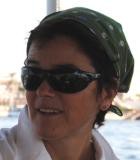
Funzione/Ruolo
Direttrice della Struttura Terremoti dell'Istituto Nazionale di Geofisica e Vulcanologia sezione di Roma
Percorso professionale
Dopo la laurea in Geologia all'università di Roma La Sapienza nel 1985, consegue l'abilitazione alla professione di geologa nel 1986. Lavora in seguito al Servizio Geologico d'Italia; dal 1987 è ricercatrice presso l'Istituto Nazionale di Geofisica e Vulcanologia di Roma, e nel 2000 assume la carica di Dirigente di Ricerca. Nel 1991-1992 e nel 1997-1998 è visiting scientist presso l'United States Geological Service di Menlo Park. in California. Dal 2013 decide di ridurre le proprie attività di ricerca per mettersi al servizio dell'INGV, ricoprendo ruoli di responsabilità e gestione interna. Dal 2013 al 2016 è direttrice della Sezione Roma1, Sismologia e Tettonofisica. Attualmente dirige la Struttura Terremoti con compiti di programmazione, sviluppo e verifica delle attività di ricerca.
Risultati scientifici
Il principale ambito di ricerca di Daniela Pantosti è la Geologia dei Terremoti e Paleosismologia (studio delle registrazioni geologiche dei terremoti del passato, attività di ricerca che offrono un contributo importante alle stime di pericolosità sismica. Queste discipline, che si occupano di caratterizzare la sismicità di una regione sulla base delle "impronte" lasciate dai terremoti del passato sul paesaggio e nella geologia, erano del tutto nuove in Italia alla fine degli anni Ottanta. Grazie al supporto dell'INGV, Daniela Pantosti ha potuto introdurle anche nel nostro Paese, utilizzandole per la prima volta per lo studio della faglia dell'Irpinia responsabile del terremoto del 1980. Attraverso l'osservazione dello sviluppo di modelli di segmentazione e ricorrenza delle faglie, della caratterizzazione delle sorgenti sismogenetiche e del loro comportamento sismico infatti risulta molto più attendibile la stima della pericolosità sismica. Visti gli ottimi risultati, questi studi si sono enormemente sviluppati e sono entrati a far parte integrante del percorso scientifico. Anche in seguito di questi successi, Pantosti ha partecipato ed è stata responsabile di progetti nazionali e internazionali riguardanti la definizione di pericolosità sismica e da tsunami in Italia, nel Mediterraneo, in California, nel Centro e Sud America e in Nuova Zelanda.
Attività editoriali e pubblicazioni
Daniela Pantosti è editrice associata per varie riviste scientifiche come Tectonophysics, Bulletin of the Seismological Society of America, Journal of Earthquake Engineering, Italian Journal of Geosciences.
È inoltre autrice di oltre numerose pubblicazioni scientifiche, tra cui:
(2018) Villani, F., Pucci, S., Civico, R., De Martini,P. M., Cinti, F. R., & Pantosti, D. Surface Faulting of the 30 October 2016 Mw 6.5 Central Italy Earthquake: Detailed Analysis of a Complex Coseismic Rupture, Tectonics, 37(10): 3378-3410.
(2018) Cinti, F. R., Civico, R., Blumetti, A. M.,Chiarini, E., La Posta, E., Pantosti, D., et al. Evidence for surface faulting earthquakes on the Montereale fault system (Abruzzi Apennines, central Italy). Tectonics, 37(9): 2758–2776.
(2017) Villani, F., L. Improta, S. Pucci, R. Civico, P.P.G. Bruno and D. Pantosti. Investigating the architecture of the Paganica Fault (2009 Mw 6.1earthquake, central Italy) by integrating high-resolution multiscale refraction tomography and detailed geological mapping, Geophysical Journal International, 208(1): 403–423.
(2016) Emergeo W.G.: Pucci S. , De Martini P.M. , Civico R. , Nappi R. , Ricci T. , Villani F. , Brunori C.A. , Caciagli M. , Sapia V. , Cinti F. R. , Moro M. , Di Naccio D. , Gori S. , Falcucci E. , Vallone R. , Mazzarini F. , Tarquini S. , Del Carlo P. , Kastelic V. , Carafa M. , De Ritis R. , Gaudiosi G. , Nave R. , Alessio G. , Burrato P. , Smedile A. , Alfonsi L. , Vannoli P. , Pignone M. , Pinzi S. , Fracassi U. , Pizzimenti L. , Mariucci M.T. , Pagliuca N. , Sciarra A. , Carluccio R. , Nicolosi I. , Chiappini M. , D’ajello Caracciolo F., Pezzo G. , Patera A. , Azzaro R. , Pantosti D., Montone P. , Saroli M. , Lo Sardo L. , Lancia M., Coseismic effects of the 2016 Amatrice seismic sequence: first geological results. Annals of Geophysics, 59, Fast Track 5.
(2016) Pucci S. , R. Civico, F. Villani, T. Ricci, E. Delcher, A. Finizola, V. Sapia, P. M. De Martini, D. Pantosti, S. Barde-Cabusson, E. Brothelande, R. Gusset, C. Mezon, S. Orefice, A. Peltier, M. Poret, L. Torres and B. Suski (2016). Deep electrical resistivity tomography along the tectonically active Middle Aterno Valley (2009 L’Aquila earthquake area, central Italy), Geophysical Journal International 207(2): 967–982.
(2015) R. Civico, C. A. Brunori, P. M. De Martini, S. Pucci, F. R. Cinti, and D. Pantosti Liquefaction susceptibility assessment in fluvial plains using airborne lidar: the case of the 2012 Emilia earthquake sequence area (Italy), Natural Hazards ad Earth System Science, 15(11): 2473–2483.
(2015) Civico R., S. Pucci, P.M. De Martini, D. Pantosti (2015). Morphotectonic analysis of the long-term surface expression of the 2009 L'Aquila earthquake fault (Central Italy) using airborne LiDAR data. Tectonophysics 644–645:108-121.
(2015) Civico R., D. Pantosti, S. Pucci, P.M. De Martini (2014). The Contribution of Airborne LiDAR Data to the Assessment of Surface Faulting Hazard for Lifelines Crossing Active Faults: An Example from the Central Apennines, Italy, in G. Lollino et al. (eds.), Engineering Geology for Society and Territory. Volume 5.
(2014) Papadopoulos G.A., E. Gràcia, R. Urgeles, V. Sallares, P. M. De Martini, D. Pantosti, M. González, A. C. Yalciner, J. Mascle, D. Sakellariou, A. Salamon, S. Tinti, V. Karastathis, A. Fokaefs, A. Camerlenghi, T. Novikova, A. Papageorgiou. Historical and pre-historical tsunamis in the Mediterranean and its connected seas: Geological signatures, generation mechanisms and coastal impacts. Marine Geology, 354: 81–109.
(2013) Clark KJ, Cochran UA, Berryman KR, Biasi G, Langridge R, Villamor P, Bartholomew T, Litchfield N, Pantosti D, Marco S, Van Dissen R, Turner G, Hemphill-Haley M. Deriving a long paleoseismic record from a shallow water Holocene basin next to the Alpine fault, New Zealand. Geological Society of America Bulletin, 125(5-6): 811-832.
Riconoscimenti e premi
Nel 1995 riceve l'ILP Edward Flinn award per "il suo contributo allo studio della Paleosismologia e Tettonica dell'Olocene in diverse aree".

Area Economia e Finanza
Competenze: economia aziendale, imprenditorialità femminile, uguaglianza di genere
Parole chiave: accesso al credito, capitale intellettuale, capitale relazionale, criteri ESG (ambientali, sociali, di governance), divari di genere, donne, imprese femminili, innovazione, intangibili d’azienda, internazionalizzazione di impresa, Obiettivo per lo Sviluppo Sostenibile 4 (SDG4), PMI, sostenibilità, strategia di impresa, sviluppo degli affari
Regione: Lazio
Funzione/Ruolo
Professoressa ordinaria di Economia Aziendale e Coordinatrice del Dottorato in "Economia Aziendale" presso l'Università "La Sapienza" di Roma. Fondatrice e Direttrice dell'Osservatorio sugli Studi di Genere "Ipazia".
Percorso professionale
Nel 1992 si laurea in Economia e Commercio presso la Facoltà di Economia della Sapienza Università di Roma. Nel 2006 consegue il dottorato di ricerca in Economia Aziendale presso la Facoltà di Economia dell’Università di Urbino. Dal 2008 al 2013 è Ricercatrice in Economia Aziendale presso la Facoltà di Economia dell’Università “Niccolò Cusano” – Roma. Dal 2013 al 2016 è Professoressa Associata in Economia Aziendale presso la Facoltà di Economia dell’Università “Niccolò Cusano” – Roma. Dal 2016 al 2018 è Professoressa Ordinaria in Economia Aziendale presso la Facoltà di Economia dell’Università “Niccolò Cusano” – Roma. Dal 2018 ad oggi è Professoressa Ordinaria in Economia Aziendale presso la Facoltà di Economia della Sapienza Università di Roma. Attualmente è componente di diversi organi di amministrazione e controllo in società quotate e non quotate, ricopre il ruolo di Lead Independent Director in una banca quotata di rilevanza nazionale ed internazionale.
Risultati scientifici
I suoi principali interessi di ricerca includono: economia aziendale, la rendicontazione finanziaria, l'imprenditorialità femminile e il capitale intellettuale.
È autrice e co-autrice di diversi articoli e libri sulle aree di ricerca sopra menzionate e partecipa abitualmente come relatrice a molte conferenze internazionali come il workshop su intangibili, capitale intellettuale e informazioni extra-finanziarie EIASM; l'Accademia Internazionale di Management e Business (IAMB)); la Conferenza internazionale sul capitale intellettuale, gestione della conoscenza e apprendimento organizzativo (ICCKM); il Forum internazionale sulle dinamiche dei beni della conoscenza (IFKAD).
È membro di SIDREA (Società Italiana di Ragioneria e di Economia Aziendale) e del comitato scientifico del SIDREA International Workshop (SIW) sul capitale intellettuale, è vicepresidente della Società di Open Innovation: Technology, Market, and Complexity.
Attività editoriali e pubblicazioni
Paola Paoloni è membro dell'Editorial Board di alcune riviste accademiche come Open innovation: Tecnologia, mercato e complessità Rivista China-USA Business Review, ed è autrice di numerose pubblicazioni scientifiche, alcune delle quali di seguito riportate:
(2021) Paoloni P, Cosentino A. Women’s Skills and Aptitudes as Drivers of Organizational Resilience: An Italian Case Study. Administrative science, 11(4): 129. https://doi.org/10.3390/admsci11040129.
(2021) Paoloni P, Cosentino A , Iannone B. L’attitudine delle imprese al cambiamento durante le crisi sistemiche. Spunti dal settore agroalimentare. Management Control, 2: 241-264.
(2021) Paoloni P, Lombardi R, Schimperna F, and Galeotti M. The climate-related information in the changing EU directive on non-financial reporting and disclosure: first evidence by Italian large companies. Journal of Applied Accounting Research. https://doi.org/10.1108/JAAR-04-2021-0117.
(2021) Paoloni P, Dal Mas F, Massaro M, Kianto A. Translating knowledge in new entrepreneurial ventures. The role of business plan development. VINE Journal of Information and Knowledge Management Systems. doi [10.1108/VJIKMS-04-2021-0060].
(2021) Paoloni P, Modaffari G, Paoloni N, Ricci F. The strategic role of social capital components in agri-food firms. British Food Journal. https://doi.org/10.1108/BFJ-01-2021-0061.
(2021) Paoloni P, Modaffari G. Business Incubators vs. Start-ups: A sustainable way of sharing knowledge. Journal of Knowledge Management. https://doi.org/10.1108/JKM-12-2020-0923.
(2020) Paoloni P, Cosentino A, Iannone B, Temperini V. Tradition, innovation and relationships. Emergent profiles from agro-food italian industry, British Food Journal. doi (10.1108/BFJ-04-2020-0306).
(2020) Paoloni P, Modaffari G, Paoloni N., My Name is Bond, Pecorino Bond. British Food Journal. https://doi.org/10.1108/BFJ-06-2019-046.
(2019) Paoloni P, Dal Mas F. A relational capital perspective on social sustainability. The case of female entrepreneurship in Italy. Measuring Business Excellence. doi 10.1108/MBE-08-2019-0086.
(2019) Paoloni P, Paoloni N, Lombardi R. The impact on the governance of the Gender Quotas legislation: the Italian Case. Measuring Business Excellence. doi 10.1108/MBE-02-2019-0019.
(2018) P. Paoloni, Modaffari G. Female-Owned Innovative Startups in Italy: Status Quo and Implications. Administrative Science, Special Issue Women in Business 8 (4): 1-31. doi:10.3390/admsci8040066.
(2017) Paoloni P, Lombardi R. Exploring the connection between Relational Capital and Female Entrepreneurs. African journal of business management, 11(24): 40-750.
Riconoscimenti e premi
Outstanding Paper Award 2014 con la pubblicazione: Paoloni P, Demartini P (2012). L'implementazione di un framework IC nella pratica. JOURNAL OF INTELLECTUAL CAPITAL, vol. 14, ISSN: 1469-1930;
Premi per la migliore pubblicazione di ricerca su rivista - ConferenzaIABE-2015 Roma: Journal of International Business and Economics (JIBE) Vol 15, Issue 2 - P. Paoloni, P. Demartini, M. Paoloni, Sustainability And Intangibles: Evidence Of Integrated Thinking;
Best paper award of SOITMC 2017, con il paper "Relation and sustainability in Italian women tourism Smes" presentato al SOITC 2017 Lativa Riga, 15-18 giugno;
Award IEEE International Conference on Technology Management, Operations and Decisions - Disruptive Technologies and Social Impacts - November 24, 25 & 26, 2021 (Virtual event).

Funzione/Ruolo
Professoressa ordinaria di Psicobiologia presso l'Università degli studi di Milano Bicocca
Percorso professionale
Dopo la laurea in Medicina e Chirurgia all'Università degli Studi di Milano, nel 1981 intraprende un percorso di specializzazione in Neurologia presso la medesima università conclusosi nel 1985. Dal 1986 al 1989 è impegnata nel dottorato di ricerca in Psicobiologia (settore Neuropsicologia). Successivamente, dal 1992 al 1993, è ammessa al primo anno del Corso della Scuola di Specializzazione in Psichiatria. Già dal 1982 è medica interna presso l'Istituto di Clinica Neurologica dell'Università di Milano dove vince nel 1984 la borsa di studio della CIBA-Geigy per lo studio delle "Funzioni Cognitive nei cerebrolesi". Gli studi effettuati la portano a vincere una borsa di studio del Ministero degli Esteri presso la Clinica Neurologica dell'Università di Friburgo (Germania). Nel 1988 è a Cambridge dove lavora prima con una borsa dell'European Science Foundation e poi pagata dal Medical Research Council fino al 1991. Nel 1991 torna stabilmente in Italia e lavora presso la Clinica Neurologica dell'Ospedale San Paolo di Milano. Nel 1998 presso l'Università di Palermo diventa professoressa associata di Psicologia Fisiologica. Dal 2004 è invece professoressa ordinaria dell'Università degli Studi di Milano Bicocca. La sua esperienza accademica si arricchisce con la nomina a direttrice del dipartimento di Psicologia della stessa università dal 2002 al 2008, mentre è coordinatrice del Dottorato di Ricerca in Psicologia Sperimentale, Linguistica e Neuroscienze Cognitive dal 2007 al 2012. Dal 2010 al 2013 è Presidente della Scuola di Dottorato in Psicologia e Neuroscienze Cognitive e segretaria della Scuola di Specializzazione in Neuropsicologia. Da maggio 2016 è presidente della Società Italiana di Neuropsicologia.
Risultati scientifici
I principali argomenti di ricerca di Costanza Papagno sono i disturbi del linguaggio in pazienti con lesioni cerebrali focali e degenerative, con particolare riferimento alla dissociazione astratto-concreto, allo sviluppo del linguaggio in bambini con impianto cocleare (un orecchio artificiale elettronico in grado di ripristinare la percezione uditiva nelle persone con sordità profonda), agli effetti della stimolazione elettrica transcranica (tDCS) e ai disturbi di memoria a breve termine. Una delle recenti scoperte di Papagno e colleghi riguarda il "fascicolo uncinato", un fascio di fibre che (tra l'altro) fa da "ponte", collegando le due aree del cervello che servono per richiamare i nomi propri collegandoli al volto di una persona. Nel campo della memoria sono state testate le capacità del fascicolo uncinato in pazienti che hanno subito l'asportazione di un tumore al cervello. I test hanno dimostrato che i pazienti ancora in possesso del "fascicolo uncinato" sono capaci di svolgere questa operazione, diversamente dai pazienti ai quali il fascicolo è stato rimosso. I test di controllo delle altre attività cerebrali (memoria a lungo termine, comprensione di parole e frasi e cognizione spaziale) invece non hanno dimostrato differenze fra pazienti in possesso o meno del fascicolo.
Attività editoriali e pubblicazioni
Costanza Papagno fa parte di numerosi comitati scientifici ed è editrice di diverse riviste scientifiche oltre che autrice di numerosi articoli, tra cui:
(2016) Papagno C, Casarotti A. Comi A, Pisoni A, Lucchelli F, Bizzi A, Riva M, Bello L. Long-term proper name anomia after removal of the uncinate fasciculus. Brain Function and Structure, 221, 687-694.
(2016) Papagno C, Pisoni P, Mattavelli G, Casarotti A, Comi A, Fumagalli F, Vernice M, Fava E, Riva M, Bello L. Specific disgust processing in the left insula: New evidence from direct electrical stimulation. Neuropsychologia, 84, 29-35.
(2016) Papagno C, Cecchetto C, Pisoni A, Bolognini N. Deaf, blind or deaf-blind: Is touch enhanced? Experimental Brain Research, 234, 627-636.
(2014) Papagno C, Vallar G. A plastic brain for a changing environment. Cortex, 58, 248-250.
(2014) Vallar G, Bello L, Bricolo E, Castellano A, Casarotti A, Falini A, Riva M, Fava E, Papagno C. Cerebral correlates of visuo-spatial neglect. A direct cerebral stimulation study. Human Brain Mapping, 35(4):1334-50.
(2013) Papagno C, Vernice M, Cecchetto C. Phonology without semantics? Good enough for verbal short-term memory. Evidence from a patient with semantic dementia. Cortex, 49, 626-636.
(2011) Papagno C, Miracapillo C, Casarotti A, Romero Lauro L, Castellano A, Falini A, Casaceli G, Bello L. What is the role of the uncinate fasciculus? Surgical removal and proper name retrieval. Brain, 134, 405-414.
(2011) Papagno C, Gallucci M, Casarotti A, Castellano A, Falini A, Carrabba G, Giussani C, Fava E, Bello L, Caramazza A. Connectivity constraints on cortical reorganization of neural circuits involved in object naming. Neuroimage, 55, 1306-1313.
(2011) Cattaneo Z, Pisoni A, Papagno C. Transcranial direct current stimulation over Broca's region improves phonemic and semantic fluency in healthy individuals. Neuroscience, 183, 64-70.
(1998) Baddeley AD, Gathercole S, Papagno C. The Phonological loop as a language learning device. Psychological Review, 105, 158-173.

Area Economia e Finanza
Competenze: management d'impresa, marketing e gestione delle destinazioni turistiche, strategie di sviluppo e gestione della marca, turismo sostenibile
Parole chiave: country of origin, Made in Italy, marca territoriale, marketing territoriale, nation brand, overtourism, place of origin, turismo, turismo urbano
Regione: Campania
Funzione/Ruolo
Professoressa associata di Economia e Gestione delle Imprese presso il Dipartimento di Studi Aziendali e Quantitativi, Università degli Studi di Napoli Parthenope.
Percorso professionale
Dopo aver conseguito il Master of Arts in Local and Regional Development presso il CURDS – Centre for Urban and Regional Studies della Newcastle University (Regno Unito), Cecilia Pasquinelli ha ottenuto il Ph.D. in Management, Competitiveness, and Development presso l’Istituto di Management della Scuola Superiore Sant’Anna di Pisa. Ha ricoperto il ruolo di ricercatrice presso il Department of Social and Economic Geography/CIND – Centre for Research on Innovation and Industrial Dynamics della Uppsala University (Svezia). Successivamente, ha svolto attività di ricerca presso il GSSI Cities del Gran Sasso Science Institute a L’Aquila. Ha ricoperto il ruolo di ricercatrice presso il Dipartimento di Studi Aziendali e Quantitativi dell’Università di Napoli Parthenope dove lavora attualmente. Ha maturato esperienze di consulenza nel campo del marketing territoriale e della promozione degli investimenti diretti esteri presso la società di consulenza OCO Global Ltd (Francia).
Risultati scientifici
L’attività di ricerca di Cecilia Pasquinelli si è concentrata sulla costruzione e gestione della marca territoriale, in riferimento ai city, region e nation brand e al loro ruolo nelle traiettorie di sviluppo locale, turistico e d’impresa. Ha sviluppato progetti di ricerca sulla gestione delle destinazioni turistiche per lo sviluppo sostenibile, con particolare attenzione all’overtourism e alle sfide di sostenibilità in contesti di crescita turistica. Di recente sviluppo sono le analisi delle evoluzioni post-Covid del turismo nei contesti urbani. Aspetti manageriali riguardanti l’innovazione e la sostenibilità del turismo sono i temi attualmente sviluppati, dando attenzione all’adozione delle tecnologie per la gestione sostenibile della destinazione e per il miglioramento e la qualificazione dell’esperienza turistica. I suoi contributi scientifici sono stati pubblicati in riviste internazionali tra cui il Journal of Sustainable Tourism, Urban Studies, Cities, Marketing Theory and Environment Planning Studies. Inoltre, è stata co-curatrice del libro Tourism in the City. Towards an Integrative Agenda on Urban Tourism pubblicato da Springer.
Attività editoriali e pubblicazioni
[2022] Pasquinelli, C., Trunfio, M., Bellini, N., Rossi, S. Reimagining urban destinations: Adaptive and transformative city brand attributes and values in the pandemic crisis, Cities, 124.
[2021] Pasquinelli, C. Italy. In: Freire, J. (Ed.) Nation Branding in Europe (Routledge).
[2021] Pasquinelli, C., Trunfio, M. The missing link between overtourism and post-pandemic tourism. Framing Twitter debate on the Italian tourism crisis. Journal of Place Management and Development, ahead-of-print.
[2021] Pasquinelli, C., Trunfio, M., Bellini, N., Rossi, S. Sustainability in overtouristified cities? A social media insight into Italian branding responses to Covid-19 crisis, Sustainability 13(4), 1848.
[2021] Pasquinelli, C. Cultural heritage triggering corporate investments. “Heritage Grab” or sustainable development? In: Della Lucia, M., Giudici E. (Eds.) Humanistic Managment and Sustainable Tourism. Human Social and Environmental Challenges (Routledge)
[2021] Pasquinelli, C., Trunfio, M., Rossi, S. Beyond the authenticity-standardisation paradox in international gastronomy retailing: Twisting the hosting city brand with the place of origin, British Food Journal, 123(13), 561-578.
[2020] Pasquinelli, C., Trunfio, M. Overtouristified cities: an online news media narrative analysis, Journal of Sustainable Tourism, 28(11): 1805-1824.
[2020] Pasquinelli, C., Trunfio, M. Reframing urban overtourism through the Smart-City Lens, Cities, 102(July), 102729.
[2019] Pasquinelli, C., Vuignier, R. Place Marketing, Policy Integration and Governance Complexity: An Analytical Framework for FDI Promotion, European Planning Studies, 28(7):1413-1430.
[2017] Pasquinelli, C. Place branding. Percezione, Illusione e Concretezza. Aracne Editrice: Roma.
[2015] Maiello, A., Pasquinelli, C. Destruction or construction? A (counter) branding analysis of sport mega-events in Rio de Janeiro, Cities, 48: 116.
[2014] Pasquinelli, C. Branding as urban collective strategy-making. The formation of NewcastleGateshead’s organisational identity, Urban Studies 51(4), pp. 727-743.
Riconoscimenti e premi
Ha ricevuto il premio Professor John Burgess Goddard Dissertation Prize (2008) presso la Newcastle University (Regno Unito) e il premio Palgrave Macmillan/Place Branding and Public Diplomacy (2015). E’ stata nominata senior fellow dell’Institute of Place Management, Manchester Metropolitan University (Regno Unito). E’ membro del panel internazionale di esperti del Place Brand Observer. E’ associate editor del Journal of Place Management and Development (Emerald). E’ stata membro del comitato scientifico dell’HTHIC - Heritage, Tourism and Hospitality International Conference e dell’International Place Branding Association Conference 2022.

Funzione/Ruolo
Professoressa di Chimica e Biologia molecolare al King's College di Londra
Percorso professionale
Laureata in Chimica all’Università Federico II di Napoli, nel 1982 si trasferisce negli Stati Uniti dove lavora per un paio di anni al Dipartimento di Biochimica dell’Università del Wisconsin. Nel 1984 grazie a un progetto di sambio fra ITlia e Svizzera entra nel team di ricerca del Premio Nobel Richard Robert Ernst, all’Università di Zurigo. Nel 1987 consegue un postdottorato all’Università di Oxford e nel 1988 inzia a lavorare all’EMBL (European Molecular Biology Laboratory) di Heidelberg in Germania, dove nel 1991 viene nominate a capo del Programma Srutture. Nello stesso anno diviene team leader del National Institute for Medical Research di Londra. Nel 2013 diventa professoressa ordinaria al King’s College di Londra, dove continua a insegnare con un incarico part-time, fino al 2018, anche quando ottiene una cattedra all’Università di Pavia. Nel 2018 viene nominata professoressa all’Università Normale di Pisa, prima e unica donna docente ordinaria nella classe di Scienze della Normale in 208 anni di vita della scuola. All'inizio del 2019 si dimette in seguito a ostacoli burocratico-amministrativi che non le consentono di mantenere il suo incarico al King’s College di Londra dove è ora ritornata a tempo pieno.
Risultati scientifici
Annalisa Pastore si è occpata per piu' di 30 anni della relazione tra struttura e funzione di peptide e proteine. Dopo un esordio lavorando su proteine strutturali muscolari, si occupa da molti anni di proteine coinvolte nella neurodegenerazione. Due i principali filoni di ricerca: il primo riguarda malattie mitocondriali con particolare attentione alla atassia di Friedreich's su cui lavoro da quando il gene responsabile e' stato scoperto nel 1996. Di questa proteina abbiamo studiato con attenzione la struttura, le proprieta' di legame e scoperto che fa' parte di un complesso proteico responsabile per la formazione dei cluster a ferro Zolfo, gruppi importantissimi che provvedono al trasferimento elettronico nelle proteine. Il secondo filone si interessa invece di proteine che prendeno parte a processi aggregative quali quelli che hanno luogo nell'Alzheimer e nel Parkinson.
Attività editoriali e pubblicazioni
Annalisa Pastore è autrice di circa 300 pubblicazioni scientifiche, fra cui:
(2018) Yan, R., Yalinca, H., Paoletti, F., Gobbo, F., Marchetti, L, Kuzmanic, A., Lamba, D., Gervasio, F.L., Konarev, P.V., Cattaneo, A., Pastore, A. The structure of the Pro-domain of mouse proNGF in contact with the NGF domain. Structure, 27(1):78-89.
(2017) Alfano C, Sanfelice D, Martin SR, Pastore A, Temussi PA. An optimized strategy to measure protein stability highlights differences between cold and hot unfolded states. Nature Commun. 8:15428.
(2016) Corvino, A., Severino, B., Fiorino, F., Frecentese, F., Magli, E., Perissutti, E., Santagada, V., Bucci, M., Cirino, G., Kelly, G., Servillo, L., Popowicz, G., Pastore, A., Caliendo, G. Fragment-based de novo design of a cystathionine y-lyase selective inhibitor blocking hydrogen sulfide production. Scientific Reports, 6, 64398.
(2015) Ruggeri, F.S., Longo, G., Faggiano, S., Lipiec, E., Pastore, A*., Dietler, G.* Infrared nanospectroscopy characterization of oligomeric and fibrillar aggregates during amyloid formation. Nature Comm., 6, 7831.
(2013) Yan, R., Konarev, P.V. Iannuzzi, C., Adinolfi, A., Roche, B.., Kelly, G., Simon, L., Martin, S.R. Py, B., Barras, F., Svergun, D.I., Pastore, A. Ferredoxin competes with bacterial frataxin in binding to the desulfurase IscS. JBC 288: 24777-87.
(2010) Prischi, F., Konarev, P.V., Iannuzzi, C., Pastore, C., Adinolfi, S., Martin, S.R., Svergun, D.I., Pastore, A. Structural bases for the interaction of frataxin with the central components of iron-sulfur cluster assembly. Nature Communications 1, 95.
(2005) Nicastro, G., Menon, R., Masino, L., McDonalds, N.O., Pastore, A. The solution structure of the Josephin domain of ataxin-3: Structural determinants for molecular recognition. PNAS 102: 10493-10498.
(2001) Atkinson, R. A., Joseph, C., Kelly, G., Muskett, F.W.,Frenkiel, T.A., Nietlispach, D., Pastore, A. Ca2+-independent binding of an EF-hand domain to a novel motif: an alpha-actinin/titin complex. Nature Struct. Biol. 8: 853-857.
(1996) Musco, G., Stier, G., Joseph, C., Castiglione Morelli, M.A., Nilges, M., Gibson, T.J., Pastore, A. Three-dimensional structure and stability of the KH domain: Molecular insights into the Fragile X syndrome. Cell 85: 237-245.
(1994) Pfuhl M., Winder S. and Pastore, A. Nebulin, a helical actin binding protein. EMBO J. 1782-1789.
Riconoscimenti e premi
Nel 2000 viene nominata EMBO Membership e nel 2013 membro della Academia Europeae.

Area STEM: Fisica
Competenze: fisica delle particelle elementari, fisica teorica, fisica teorica delle interazioni fondamentali, gravità quantistica, meccanica quantistica, teoria della relatività di Einstein
Parole chiave: buchi neri, gravità, supersimmetria, teoria dei campi, teoria delle stringhe, teorie di Gauge
Regione: Lombardia
Funzione/Ruolo
Professoressa ordinaria di Fisica Teorica all'Università Milano Bicocca.
Percorso professionale
Silvia Penati si laurea in Fisica nel 1984 presso l’Università degli studi di Milano. Nel 1985 entra nella scuola di dottorato del Dipartimento di Fisica dell’Università di Milano dove prende il titolo di Dottore di Ricerca nel 1989. Nel 1988 è vincitrice di una borsa di studio post dottorato presso la Brandeis University, Massachusetts, US, dove svolge le sue ricerche fino alla fine del 1990. Rientrata in Italia con una borsa post dottorato presso il Dipartimento di Fisica dell’Università di Milano, nel 1992 vince in quella sede un concorso da ricercatore. Nel 2000 si trasferisce nella neonata Università di Milano-Bicocca dove diventa professoressa associata nel 2003 e professoressa ordinaria nel 2017. Nel 2013 risulta vincitrice, come Principal Investigator, di un progetto europeo COST “The String Theory Universe”, che coinvolge circa 500 studiosi da 25 paesi europei, progetto di cooperazione scientifica in Fisica Teorica che ha una particolare attenzione al problema della bassa rappresentanza femminile in questo ambito. Dal 2012 al 2018 è Presidente del Consiglio di Coordinamento Didattico del Dipartimento di Fisica, Università di Milano-Bicocca. Dal 2020 coordina un gruppo di lavoro di Ateneo sulle tematiche di genere, nonché il network europeo GenHET, con sede al CERN di Ginevra, attivo nel promuovere e sostenere l’eccellenza femminile nella Fisica Teorica. È relatrice invitata a molti congressi internazionali. È organizzatrice di numerose conferenze internazionali, svolge costantemente attività di revisore per le principali riviste internazionali del settore e di valutatrice esterna per progetti europei e dell’Australian Research Council.
Dal 1992 tiene insegnamenti di Meccanica Quantistica, Relatività Generale, Teoria dei Campi e Metodi Matematici per la Fisica per le Lauree Triennale e Magistrale in Fisica. Tiene periodicamente corsi di supersimmetria in scuole di Dottorato internazionali. Nell’arco della sua carriera ha svolto attività di relatrice di tesi per circa un centinaio di studenti di Laurea Triennale e Magistrale e quindici studenti di Dottorato.
Dal 1985 svolge costantemente attività di divulgazione scientifica nelle scuole secondarie di secondo grado e per il pubblico in generale.
Risultati scientifici
Silvia Penati ha iniziato la sua carriera nella ricerca lavorando su diversi aspetti della teoria delle stringhe, una teoria che, originariamente nata nel tentativo di unificare le quattro forze fondamentali ad alte energie, gravità inclusa, si è successivamente sviluppata come potente apparato matematico, fonte ispiratrice di nuove idee non solo per lo studio teorico delle particelle elementari, ma più in generale per lo studio di sistemi fisici fortemente accoppiati. I principali contributi in questo ambito hanno riguardato lo studio della dinamica interagente di particelle di spin arbitrario, modelli sigma di stringa accoppiati alla gravità, e lo studio di sistemi integrabili in due dimensioni di interesse per le loro applicazioni alla descrizione di fenomeni bidimensionali quali l’effetto Kondo, sistemi dissipativi, problemi di impurità quantistica ed effetto Hall quantistico. Negli anni successivi Silvia Penati si è occupata dello studio di teorie di campo quantistiche con supersimmetria e supergravità, inspirati dalla teoria delle stringhe e di interesse per i più recenti sviluppi sulla descrizione olografica dell’interazione gravitazionale. In questo contesto i risultati più recenti e rilevanti riguardano le teorie di gauge supersimmetriche in tre dimensioni, lo sviluppo di test teorici non banali della corrispondenza AdS/CFT, una realizzazione esplicita del principio olografico per la descrizione della gravità a livello quantistico e dei buchi neri, e la descrizione di sistemi fisici con difetti e impurità.
Attività editoriali e pubblicazioni
Silvia Penati è autrice di più di 100 pubblicazioni su riviste internazionali ad alto impatto con peer-review.
Di seguito una selezione:
[1988] Howe P S, Penati S, Pernici M, Townsend P K, Wave Equations for arbitrary spin from Quantization of the Extended Supersymmetric Spinning Particle, Physics Letters B215 (1988): 555-558.
[1995] Penati S, Zanon D, Quantum Integrability in two-dimensional systems with boundary, Physics Letters B358 (1995): 63-72.
[2000] Mussardo G, Penati S, A quantum Field Theory with Infinite Resonance States, Nuclear Physics B567: 454-492.
[2000] Gates S J, Grisaru M T, Penati S, Holomorphy, minimal homotopy and 4D, N=1 Bardeen-Gross- Jackiw anomaly, Physics Letters B481 (2000): 397-407.
[2002] Arutyunov G, Penati S, Petkou A C, Santambrogio A, Sokatchev E, Nonprotected operators in N=4 SYM and multiparticle states of AdS(5) SUGRA, Nuclear Physics B643 (2002): 49-78.
[2003] Klemm D, Penati S, Tamassia L, Non(anti)commutative superspace, Classical Quantum Gravity 20 (2003): 2905-2916.
[2003] Grisaru M T, Penati S, Romagnoni A, Two loop renormalization for nonanticommutative N=1/2 supersymmetric Z model, JHEP 08 (2003):003.
[2005] Mauri A, Penati S, Santambrogio A, Zanon D, Exact results in planar N=1superconformal Yang-Mills theory, JHEP 11 (2005): 024.
[2010] Bianchi M S, Penati S, Siani M, Infrared stability of N=2 Chern-Simons matter theories, JHEP 05 (2010): 106.
[2011] Bianchi M S, Leoni M, Mauri A, Penati S, Santambrogio A, Scattering Amplitudes/Wilson Loop duality in ABJM theory, JHEP 01 (2011): 073.
[2017] Bianchi M S, Griguolo L, Mauri A, Penati S, Preti M, Seminara D, Towards the exact Bremsstrahlung function of ABJM theory, JHEP 08 (2017): 022.
[2021] Penati S, Superconformal Line Defects in 3D, Universe 7 (2021) 9: 348.
La lista completa è disponibile su
https://inspirehep.net/literature?sort=mostrecent&size=25&page=1&q=a%20penati%2Cs.

Funzione/Ruolo
Ricercatrice presso l’INGV (Istituto Nazionale di Geofisica e Vulcanologia) e Segretaria generale dell'International Association for Promoting Geoethics
Percorso professionale
Dopo la laurea in Scienze Geologiche e il Dottorato di Ricerca in Scienze della Terra all’Università di Roma La Sapienza, nel 1999 comincia la sua attività scientifica nel settore della pericolosità geologica e dei rischi naturali, collaborando con il Gruppo Nazionale per la Difesa dai Terremoti del Consiglio Nazionale delle Ricerche, l’Università di RomaTre, l’Università di Genova e il Politecnico di Milano. Dal 2008 al 2011 è professoressa di Geologia, Geologia applicata e Geotecnica alla Facoltà di Architettura dell’Università di Roma La Sapienza e all’Università di Viterbo Tuscia. Dal 2012 è docente del Corso di Dottorato in Paesaggio e Ambiente all’Università di Roma La Sapienza. Nel 2016 è docente dell’École Polytechnique Fédérale di Losanna (Svizzera) per il corso online “Disaster Risk Reduction” sul tema della resilienza e della geoetica. Nel 2012 fonda l’International Association for Promoting Geoethics, un network scientifico, con più di 1600 membri in 116 nazioni, che ha lo scopo di analizzare e valorizzare gli aspetti etici, sociali e culturali delle Scienze della Terra. È stata eletta recentemente Consigliera dello IUGS (International Union of Geological Sciences) per il quadriennio 2018-2022. È membro del Consiglio Direttivo della Società Geologica Italiana dal 2013, membro del Comitato Esecutivo dello IAEG Italy (International Association for Engineering Geology and the Environment) dal 2015 e coordinatrice della sezione di “Geoetica e Cultura Geologica” della Società Geologica Italiana dal 2012. Dal 2017 è membro dell’Ethical Advisory Board of ICOS ERIC (Integrated Carbon Observation System), infrastruttura di ricerca pan-europea dedicata ai dati scientifici sul ciclo del carbonio e sui gas serra. Dal 2014 al 2016 è Senior Editor della Oxford University Press per la collana “Natural Hazard Science”. Dal 2017 è membro dell’Editorial Board della rivista "Scienze e Ricerche".
Risultati scientifici
Dal 1999 partecipa a progetti di ricerca nazionali ed internazionali sulle pericolosità geologiche, i rischi naturali e la microzonazione sismica, con particolare riferimento ai centri storici e ai siti di beni monumentali. Nel 2007 comincia ad occuparsi di comunicazione della scienza e di divulgazione delle geoscienze, attività che la porta a pubblicare due libri con l’editore Il Mulino di Bologna. Dal 2012 si dedica costantemente alla sviluppo della geoetica, ovvero allo studio delle implicazioni etiche, sociale, filosofiche e culturali della ricerca e della pratica delle geoscienze, di cui è tra i maggiori esperti a livello mondiale. L’attività sulla geoetica la impegna nell’organizzazione di sessioni scientifiche nei maggiori convegni internazionali di geoscienze, nella pubblicazione di volumi monografici con editori scientifici internazionali, nella partecipazione in qualità di relatore ad invito a numerosi eventi scientifici. Attualmente nell’ambito del progetto europeo ENVRI-Plus è leader di un work-package dedicato allo sviluppo di un quadro di riferimento etico per le infrastrutture europee di ricerca nel settore ambientale e della Terra solida. Collabora con quotidiani e magazine (tra cui il Corriere della Sera) con articoli sui temi della pericolosità geologica, della prevenzione dai rischi, della divulgazione scientifica.
Attività editoriali e pubblicazioni
Silvia Peppoloni è autrice di due libri divulgativi: (con Doglioni), Pianeta Terra: una storia non finita (Il Mulino, 2016) e Convivere con i rischi naturali (Il Mulino, 2014).
Inoltre è autrice di numerose pubblicazioni scientifiche. Tra le più recenti:
[2018] Arattano M., Peppoloni S., Gatti A. The ethical duty to divulge geosciences and the improvement of communication skills to fulfill it. Episodes, 41(2): 97-103.
[2017] Peppoloni S., Di Capua G., Bobrowsky P., Cronin V. (a cura di). Geoethics at the heart of all geoscience. Annals of Geophysics, 60, Fast track 7.
[2017] Bobrowsky P., Cronin V., Di Capua G., Kieffer S., Peppoloni S. "The emerging field of geoethics". In Scientific Integrity and Ethics: With Applications to the Geosciences,a cura di L. Gundersen, Special Publication American Geophysical Union. New York, John Wiley.
[2016] Peppoloni S., Di Capua G. "Geoethics: Ethical, social, and cultural values in geosciences research, practice, and education". In Geoscience for the Public Good and Global Development: Toward a Sustainable Future, a cura di Wessel G., Greenberg J., Geological Society of America, Special Paper, 520:17-21.
[2016] Di Capua G, Peppoloni S, Amanti M, Cipolloni C and Conte G. "Site classification map of Italy based on surface geology". In Developments in Engineering Geology, a cura di Eggers M.J., Griffiths J.S., Parry S., Culshaw M.G. Geological Society, London. Engineering Geology Special Publication, 27: 147–158.
[2015] Peppoloni S., Di Capua G (a cura di). Geoethics: the Role and Responsibility of Geoscientists. Geological Society, London, Special Publications, 419.
[2015] Peppoloni S, Bobrowsky P, Di Capua G. "Geoethics: A Challenge for Research Integrity in Geosciences". In Integrity in the Global Research Arena, a cura di Steneck N, Anderson M, Kleinert S, Mayer T., World Scientific, pp. 287-294
[2014] Wyss M., Peppoloni S. (a cura di). Geoethics, Ethical Challenges and Case Studies, in Earth Sciences, Elsevier.
[2014] Matteucci R., Gosso G., Peppoloni S., Piacente S., Wasowski J. The “Geoethical Promise”: A Proposal. Episodes, 37, 3:190-191.
[2014] Peppoloni S., Di Capua G. "Geoethical aspects in the natural hazards management". In Engineering Geology for Society and Territory, Vol. 17, a cura di Lollino G, Arattano M, Giardino M, Oliveira R, Peppoloni S. Education, Professional Ethics and Public Recognition of Engineering Geology. Springer.
Riconoscimenti e premi
Nel 2017 riceve il Premio Speciale della Giuria alla XX Edizione del Premio di Letterario “Parco Majella" per il libro, scritto in collaborazione con Carlo Doglioni, Pianeta Terra: una storia non finita, che le vale anche il terzo posto al Premio Nazionale per la Divulgazione Scientifica nella categoria Matematica, Fisica e Scienze Naturali, 2016. Per lo stesso riconoscimento, è stata finalista nell’edizione 2014, con il libro Convivere con i rischi naturali.

Area STEM: Scienze cliniche e scienza dell'alimentazione
Competenze: medicina nucleare, neurologia, neuroscienze cliniche, radiologia
Parole chiave: cervello, demenza, diagnostica per immagini, malattie neurodegenerative, morbo di parkinson, neuroscienze, risonanza magnetica (mri) funzionale e strutturale, tomografia ad emissione di positroni (pet)
Regione: Lombardia
Funzione/Ruolo
Professoressa ordinaria di Neuroscienze all'Università Vita-Salute San Raffaele di Milano e Capo Unità "In vivo Human Molecular and Structural Neuroimaging", Divisione di Neuroscienze, Istituto Scientifico San Raffaele, Milano
Percorso professionale
Dopo aver conseguito la laurea in Medicina e Chirurgia all'Università degli Studi di Milano, prosegue la sua formazione attraverso una specializzazione in Neurologia, alla quale ne segue un'altra in Radiologia, sempre presso l'Università di Milano. Nel biennio 1987-1988 lascia l'Italia per Londra dove è ricercatrice presso la Royal Post-Graduate Medical School, Hammersmith Hospital, University of London. Nel 1989, tornata in Italia, diventa ricercatrice presso l'Istituto Tecnologie Biomediche Avanzate del C.N.R. di Milano; dal 1991 al 2000 è dirigente di ricerca dell'Istituto di Neuroscienze e Bioimmagini del C.N.R. di Milano. Dal 2001 è professoressa ordinaria di Neuroscienze all'Università Vita-Salute San Raffaele di Milano, Capo Unità "In vivo Human Molecular and Structural Neuroimaging" della divisione di Neuroscienze dell'Istituto Scientifico San Raffaele e coordinatrice dell'Area Attività Diagnostica Neuroimmagini, Medicina Nucleare, dell'Ospedale San Raffaele. Dal 2021 è anche Direttrice della Scuola di Specializzazione in Neuropsicologia, della Facoltà di Psicologia.
Risultati scientifici
Daniela Perani e il suo gruppo sviluppano numerosi progetti di ricerca nel campo delle neuroimmagini strutturali (MRI) e molecolari (PET), tecniche applicate allo studio delle malattie neurodegenerative. Gli studi di Daniela Perani si svolgono anche nel campo delle neuroimmagini funzionali (fMRI) per lo studio delle funzioni cognitive nella norma e delle loro modificazioni associate a malattie neurologiche. L'utilizzo di tecniche di neuroimaging funzionali (come SPECT, PET, fMRI) infatti consente l'indagine diagnostica in numerose neuroscienze cognitive come la neuropsicologia, la neurofisiologia (sistemi sensorimotori) e la neurologia (studio di demenze, malattie cerebrovascolari, malattie extrapiramidali come il morbo di Parkinson, sclerosi multipla e malattie prioniche, determinate dall'accumulo cerebrale di una proteina anomala, il prione). Queste tecniche forniscono la possibilità di indagare in vivo, in soggetti normali o in pazienti, l'attività funzionale cerebrale durante la esecuzione di compiti sensorimotori o cognitivi. Le tecniche PET e fMRI hanno dimostrato l'interazione tra flusso ematico e funzione cerebrale. Queste metodiche ad alta risoluzione spaziale consentono una precisa localizzazione anatomica della attivazione regionale cerebrale, che a sua volta rappresenta il correlato funzionale dell'attività mentale in vivo.
Attività editoriali e pubblicazioni
È autrice di più di 250 pubblicazioni scientifiche nazionali ed internazionali, fra cui:
(2013) Klunk WE, Perani D. Amyloid and neurodegeneration: Converging and diverging paths. Neurology, 81(20):1728-1729.
(2013) Garibotto V, Tettamanti M, Marcone A, Florea I, Panzacchi A, Moresco R, Virta JR, Rinne J, Cappa SF, Perani D. Cholinergic activity correlates with reserve proxies in Alzheimer's disease. Neurobiology of Aging, 34(11):2694.e13-8.
(2013) Iannaccone S, Cerami C, Alessio M, Garibotto V, Panzacchi A, Olivieri S, Gelsomino G, Moresco RM, Perani D. In vivo microglia activation in very early dementia with Lewy bodies, comparison with Parkinson's disease. Parkinsonism & Related Disorders, 19(1): 47-52.
(2013) Consonni M, Cafiero R, Marin D, Tettamanti M, Iadanza A, Fabbro F, Perani D. Neural convergence for language comprehension and grammatical class production in highly proficient bilinguals is independent of age of acquisition. Cortex, 49(5):1252-1258.
(2013) Nordberg A, Carter SF, Rinne J, Drzezga A, Brooks DJ, Vandenberghe R, Perani D, Forsberg A, Långström B, Scheinin N, Karrasch M, Någren K, Grimmer T, Miederer I, Edison P, Okello A, Van Laere K, Nelissen N, Vandenbulcke M, Garibotto V, Almkvist O, Kalbe E, Hinz R, Herholz K. A European multicentre PET study of fibrillar amyloid in alzheimer's disease. European Journal of Nuclear Medicine and Molecular Imaging, 40(1):104-114.
(2012) Tettamanti M, Rognoni E, Cafiero R, Costa T, Galati D, Perani D. Distinct pathways of neural coupling for different basic emotions. Neuroimage, 59(2):1804-1817.
(2012) Babiloni C, Buffo P, Vecchio F, Marzano N, Del Percio C, Spada D, Rossi S, Bruni I, Rossini PM, Perani D. Brains "in concert": Frontal oscillatory alpha rhythms and empathy in professional musicians. Neuroimage, 60(1):105-116.
(2012) Marcone A, Garibotto V, Moresco RM, Florea I, Panzacchi A, Carpinelli A, Virta JR, Tettamanti M, Borroni B, Padovani A, Bertoldo A, Herholz K, Rinne JO, Cappa SF, Perani D. [11]-MP4A PET cholinergic measurements in amnestic mild cognitive impairment, probable alzheimer's disease, and dementia with lewy bodies: A bayesian method and voxel-based analysis. Journal of Alzheimer's Disease, 31(2):4387-399.
(2012) Canessa N, Alemanno F, Riva F, Zani A, Proverbio AM, Mannara N, Perani D, Cappa SF. The neural bases of social intention understanding: The role of interaction goals. PLoS ONE, 7(7).
(2012) Lalli S, Piacentini S, Franzini A, Panzacchi A, Cerami C, Messina G, Ferré F, Perani D, Albanese A. Epidural premotor cortical stimulation in primary focal dystonia: Clinical and 18F-fluoro deoxyglucose positron emission tomography open study. Movement Disorders Journal, 27(4):533-428.
Riconoscimenti e premi
Daniela Perani è la coordinatrice Italiana Neuroimaging del Progetto Finalizzato RETI Nazionali Alzheimer 2014-2017, fa inoltre parte della Società Italiana di Neuropsicologia, della Società Internazionale di Neuroscienze (ISFNSCI) ed è componente dell'International Neuropsychological Symposium, dal 2000.

Area STEM: Ingegneria
Competenze: gestione aziendale, gestione dei rischi, gestione del prodotto, governance aziendale, ingegneria ambientale, produzione avanzata, project management, salute e sicurezza sul lavoro, sostenibilità, strategia aziendale, trasformazione digitale, vendite e marketing
Parole chiave: innovazione, management, marketing, strategia, tecnologia
Regione: ESTERO
Funzione/Ruolo
Vice Presidente Marketing strategico presso Wabtec Transit.
Membro del Consiglio di Amministrazione dell'Istituto europeo per l'innovazione digitale e la tecnologia.
Membro del Consiglio di Amministrazione del progetto HumanTech del Politecnico di Milano.
Percorso professionale
Laureata in Ingegneria per l’Ambiente ed il Territorio presso Politecnico di Milano, nel 2002, avvia la sua carriera professionale lavorando in URS, ora AECOM, importante società americana di servizi di consulenza ed ingegneria americana con operazioni internazionali. Prosegue il suo per percorso in PRYSMIAN acquisendo sempre maggiori competenze e responsabilità nell’ambito di grandi progetti di costruzioni di infrastrutture per il transporto dell’energia in Europa, Africa, Medio Oriente, Cina, Giappone e Stati Uniti. Continua la sua crescita come executive nel mondo dei transporti e tecnologie per la mobilità lavorando presso BOMBARDIER TRANSPORTATION in Germania, ALSTOM in Francia e ora in WABTEC in Francia.
Risultati scientifici
Ha superato l’esame di abilitazione alla professione di Ingegnere, è in possesso di certificazioni in Auditing, Gestione Ambiente, Energia, Salute, Sicurezza sul lavoro, Project Management. Ha conseguito Executive Master in Business Administration EMBA presso il Politecnico di Milano. Ha partecipato all’esperienza Doing Business in Silicon Valley dove ha potuto lavorare con Start ups, Venture Capitals, Incubators e l’università di Stanford.
Riconoscimenti e premi
E’ stata selezionata da Valore D, Egon Zehnder e Borsa Italiana per il percorso “InTheBoardroom” che ha seguito e completato con altri 80 executive (Class XI) nel 2022.
Ha vinto nel 2023 il premio di Best Project Work con il progetto Urban Freight Orchestration condotto in collaborazione con Politecnico di Milano ed Alstom.

Funzione/Ruolo
Atleta professionista di boxe. Presidente e fondatrice dell’APS ETS The Shadow Project. Coach di sport da combattimento
Percorso professionale
Atleta professionista di sport da combattimento, pluricampionessa internazionale di kickboxing e boxe. Avvia progetti di formazione e empowerment per donne e ragazze, promuovendo lo sport come strumento di crescita personale e contrasto agli stereotipi di genere. Partecipa come speaker e formatrice in eventi, aziende e scuole in Italia e all’estero. Specializzata in PNL e Coaching, ha lavorato per circa 10 anni nella moda, nel settore del marketing. Ha una specializzazione in marketing strategico e operativo conseguita al Polimoda di Firenze nel 2010.
Riconoscimenti e premi
Gloria Peritore è ttre volte vincitrice di Oktagon, negli anni 2015-16-17, stata la prima donna a vincere nel circuito Bellator negli Stati Uniti (St. Louis), nel 2016, tre volte Campionessa Mondiale di Kickboxing (2x ISKA, 1x WKU), negli anni 2020-21-22, ha vinto l'EBU Silver Title di Boxe (Pesi Gallo), nel 2024 ed è diventata Campionessa Europea di Boxe EBU (Pesi Gallo) nel 2025.
Inoltre ha ricevuto i seguenti riconoscimenti pubblici:
2015 Premio “Villa Vogel” Firenze
2016 Premio “Personaggio per lo sport”
2020 Premio Speciale dell’Unione Stampa Sportiva (USSI)
2022 Premio del Campidoglio per meriti sportivi e impegno sociale nel contrasto alla violenza di genere e per la promozione dello sport come strumento di inclusione
2022, Premio Karkinos, Valle Dei Templi (AG)
2023 Premio “Donne per Napoli” per la categoria “Sport”

Funzione/Ruolo
Professoressa affiliata all'Università degli Studi di Roma “Foro Italico”, in congedo per attività di disseminazione di buone pratiche di promozione dello sviluppo olistico dei bambini mediante attività motorie di qualità (Joy of Moving, nell'ambito della Responsabilità Sociale d'Impresa Ferrero) e per insegnamento di educazione fisica presso una scuola Europea a Berlino.
Percorso professionale
Caterina Pesce è laureata in Educazione Fisica (Istituto Superiore di Educazione Fisica di Roma) e in Scienze del Movimento e dello Sport (Istituto Universitario di Scienze del Movimento di Roma), ha un master in Psicologia (Università "La Sapienza" di Roma) e un dottorato di ricerca in Filosofia (Libera Università di Berlino). Ha iniziato la sua carriera come docente e assistente alla ricerca presso l’Istituto Superiore di Educazione Fisica di Roma. Nel 2003 è diventata ricercatrice in materia di Metodi e tecniche del movimento e dello sport all’Università Foro Italico di Roma, dove nel 2007 è diventata professoressa associata. Nel 2019 si è trasferita in Germania, dove attualmente risiede, essendo in congedo per attività di disseminazione di buone pratiche di promozione dello sviluppo olistico dei bambini mediante attività motorie di qualità (Joy of Moving, nell'ambito della Responsabilità Sociale d'Impresa Ferrero) e per insegnamento di educazione fisica presso una scuola Europea a Berlino. Durante la sua carriera accademica è stata membro del dottorato di ricerca in Scienze dello sport, dell'attività fisica e dell'ergonomia e membro del Dipartimento di Scienze del movimento, dell'uomo e della salute dell’Università Foro Italico di Roma e socia fondatrice della Società italiana di scienze del movimento e dello sport.
Risultati scientifici
Caterina Pesce ha contribuito alla ricerca sulla psicologia dello sport e dell'esercizio e dell'educazione fisica, nell'arco della vita e in atleti esperti, con particolare attenzione all'esercizio e alla cognizione, all'aumento e al declino della coordinazione motoria e all'educazione fisica avanzata.
Attività editoriali e pubblicazioni
Caterina Pesce è Associate Editor per la rivista Mental Health and Physical Activity, ed editorial board member per Journal of Sport and Exercise Psychology. Inoltre, è autrice, co-autrice o curatrice di libri e capitoli di libro, e di articoli scientifici internazionali e nazionali, con Impact Factor (Scopus) 34 e circa 4.000 citazioni.
Di seguito, una selezione delle sue pubblicazioni più rilevanti.
Libri
Tomporowski P, McCullick B, Pesce C. (2015). Enhancing children’s cognition with physical activity games. Champaign, IL: Human Kinetics. ISBN: 978-1-4504-4142-1.
Pesce C, Marchetti R, Motta A, Bellucci M. (eds.) (2015). Joy of Moving – MoviMenti & ImmaginAzione. Giocare con la variabilità per promuovere lo sviluppo motorio, cognitive e del Cittadino. Torgiano (PG): Calzetti-Mariucci. ISBN: 978-88-6028-431-40 (Tradotto e pubblicato in diverse lingue).
Capitoli di libro
Pesce C, Voelcker-Rehage C. (2020). “The unique contribution of physical activity to successful cognitive aging”. In Tenenbaum G., Eklund R. (eds.), Handbook of Sport Psychology (4th edition). West Sussex, UK: Wiley.
Pesce C , Faigenbaum A.D. Goudas M, Tomporowski P.D. (2018). “Coupling our plough of thoughtful moving to the star of children’s right to play: from neuroscience to multisectoral promotion.” In: Baile R, Meeusen R, Kubesch R, Tomporowski P. (eds.), Physical Activity and Educational Achievement: Insights from exercise neuroscience, pp. 247-274. Routledge.
Articoli
Mavilidi MF, Pesce C, Benzing V, Schmidt M. Okely A, Paas F, Vazou S. (2022). Meta-analysis of Movement-based Interventions to Aid Academic and Behavioral Outcomes: A Taxonomy of Relevance and Integration. EducationalResearch Review.
Hulteen RM, Terlizzi B, Abrams TC, Sacko RS, De Meester A, Pesce C, Stodden DF. (2022). Reinvest to Assess: Advancing Approaches to Motor Competence Measurement Across the Lifespan. Sports Medicine. doi: 10.1007/s40279-022-01750-8.
Tocci N, Scibinetti P, Mazzoli E, Mavilidi M, Masci I, Schmidt M, Pesce C. (2022). Giving ideas some legs or legs some ideas? Children’s motor creativity is enhanced by physical activity enrichment: direct and mediated paths. Frontiers in Psychology, 13:806065. https://doi.org/10.3389/fpsyg.2022.806065. IF = 3.0; Q2.
Stodden D, Lakes .D, Côté J, Aadland E, Benzing V, Brian A, Draper CE, Ekkekakis P, Fumagalli G, Laukkanen A, Mavilidi MF, Mazzoli E, Neville RD, Niemistö D, Rudd J, Sääkslahti A, Schmidt M, Tomporowski PD, Tortella P, Vazou S, Pesce C. (2021). Exploration: An Overarching Focus for Holistic Development. Brazilian Journal of Motor Behavior, 15(5), 301-320. https://doi.org/10.20338/bjmb.v15i5.254.
Condello G, Mazzoli E, De Fano A, Masci I, Marchetti R, Pesce C. (2021). Fostering holistic development with a designed multisport intervention in physical education: a class-randomized cross-over trial. International Journal of Environmental Research and Public Health, 18, 9871. https://doi.org/10.3390/ijerph18189871.
Pesce C, Vazou S, Benzing V, Alvarez-Bueno C, Anzeneder S, Mavilidi M, Leone L, Schmidt M. (2021). Effects of chronic physical activity on cognition across the lifespan: a systematic meta-review of randomized controlled trials and realist synthesis of contextualized mechanisms. International Review of Sport and Exercise Psychology [online first].https://doi.org/10.1080/1750984X.2021.1929404.
Rudd JR, Pesce C, Strafford BW, Davids K. (2020). Physical Literacy - A Journey of Individual Enrichment: An Ecological Dynamics Rationale for Enhancing Performance and Physical Activity in All. Frontiers in Psychology, 11, 1904. https://doi.org/10.3389/fpsyg.2020.01904.
Tomporowski P, Pesce C. (2019). Exercise, sports, and performance arts benefit cognition via a common process. Psychological Bulletin. 145, 929-951. https://doi.org/10.1037/bul0000200.
Riconoscimenti e premi
l libro Joy of Moving. MoviMenti & ImmaginAzione. Giocare con la variabilità per promuovere lo sviluppo motorio, cognitivo e del Cittadino è stato premiato dal CONI nel 2016.

Funzione/Ruolo
Professoressa ordinaria di Informatica presso l'Università La Sapienza di Roma
Percorso professionale
Dopo la laurea in Scienze dell'Informazione all'Università degli Studi di Roma La Sapienza nel 1993, prosegue la sua formazione con un dottorato di ricerca in Ingegneria Informatica conseguito presso la stessa università. Durante il dottorato è vincitrice di una prestigiosa borsa di studio Fulbright grazie alla quale nel 1996 è Visiting Research Associate presso l'Advanced Communications Technologies laboratory della Boston University, l'anno successivo presso la Erik Jonsson School of Engineering and Computer Science della University of Texas, a Dallas. Nel 1998, collabora con il Dipartimento di Elettronica e Informazione del Politecnico di Milano. Dall'anno successivo è assegnista di ricerca al Politecnico di Milano. Dall'anno successivo è assegnista di ricerca al Politecnico di Milano e svolge anche attività didattiche. Da 2001 è ricercatrice di ruolo di Informatica alla Università degli Studi di Roma La Sapienza, dove nel 2006 diventa professoressa associata e nel 2021 professoressa ordinaria. Dal gennaio 2021 è Prorettrice con delega allo Sviluppo della cultura imprenditoriale per il potenziamento della terza missione.
Risultati scientifici
L'attività di ricerca di Chiara Petrioli riguarda lo sviluppo di soluzioni per sistemi wireless di prossima generazione, reti di sensori e "Internet delle cose". In particolare Chiara Petrioli ha coordinato il progetto europeo GENESI che ha sviluppato innovativi sistemi di monitoraggio strutturale statico e dinamico degli edifici, ponti e tunnel, sperimentati nella fase di costruzione della metro B1 di Roma e della costruzione del Pont de la Poya in Svizzera. Le tecnologie sviluppate in GENESI consentono di fornire dati in real-time per lunghi periodi di tempo grazie ad un nuovo paradigma di comunicazione, basato su wake up radio, che consente di far consumare energia ai dispositivi solo quando devono effettuare operazioni o comunicare, e grazie alla capacità di alimentare i dispositivi mediante energy harvesting, ovvero di raccogliere energia dall'ambiente mediante micro-turbine eoliche e celle solari. In una collaborazione con il Ministero Per i Beni e le Attività Culturali il gruppo di Chiara Petrioli ha quindi sviluppato sistemi di monitoraggio micro-climatico, shock e vibrazioni i cui dati stanno contribuendo a definire "buone pratiche e linee guida" per aumentare la sicurezza delle opere d'arte in fase di trasporto. Tali sistemi sono stati usati all'interno del progetto Safe-Art per monitorare oltre quaranta trasporti di importanti opere d'arte (quali la Pietà Rondinini, il Narciso di Caravaggio, il Marcello del Louvre, la Livia Orante dei Vaticani, il Cratere di Eufronio del Museo di Villa Giulia). Chiara Petrioli ha anche proposto soluzioni per estendere l'Internet delle cose agli ambienti marini. Grazie alle tecnologie sviluppate dal suo gruppo e da venti partner internazionali nel progetto SUNRISE sono stati sviluppati nodi sensori sottomarini e veicoli autonomi sottomarini interconnessi in una rete e in grado di cooperare e svolgere compiti complessi. Queste tecnologie stanno ponendo le basi per creare un sistema di monitoraggio intelligente per l'ambiente marino, rendendo possibile lo sfruttamento sostenibile delle sue risorse e consentendo di basare su dati quantitativi le politiche per la salvaguardia di tale ambiente. Il sistema SUNRISE ha applicazione in vari contesti applicativi: dal monitoraggio ambientale, alla conservazione e valorizzazione dei siti archeologici sommersi, alla protezione delle infrastrutture critiche e dei confini marittimi, al monitoraggio di allevamenti di acquacoltura. Nel dicembre del 2016 è stato incluso in NT100, ovvero la lista di Nominet Trust sulle migliori 100 "global social tech changing our lives".
Attività editoriali e pubblicazioni
Chiara Petrioli è, ed è stata, componente dell'editorial board di molte riviste scientifiche internazionali. È autrice di numerose pubblicazioni, tra cui:
(2016) Ateniese G, Bianchi G, Capossele A, Petrioli C, Spenza D. Low-cost Standard Signatures for Energy-Harvesting Wireless Sensor Networks. ACM Transactions on Embedded Computing Systems.
(2015) Petrioli C, Petroccia R, Potter JR, Spaccini D. The SUNSET framework for simulation, emulation and at-sea testing of underwater wireless sensor networks. Ad Hoc Networks, 34:224-238.
(2015) Basagni S, Petrioli C, Petroccia R, Spaccini D. CARP: A Channel-aware Routing Protocol for Underwater Acoustic Wireless Networks. Ad Hoc Networks, 34:92-104.
(2015) Spenza D, Magno M, Basagni S, Benini L, Paoli M, Petrioli C. Beyond Duty Cycling: Wake-up Radio with Selective Awakenings for Long-lived Wireless Sensing Systems. IEEE INFOCOM, Hong Kong, 522-530.
(2014) Petrioli P, Spenza D, Tommasino P, Trifiletti A. A Novel Wake-Up Receiver with Addressing Capability for Wireless Sensor Nodes. Distributed Computing in Sensor Systems Conference 2014:18-25.
(2014) La Porta T, Petrioli C, Phillips C, Spenza D. Sensor-mission assignment in rechargeable wireless sensor networks. ACM Transactions on Sensor Networks (TOSN), 10(4).
(2014) Basagni S, Boloni L, Gjanci P, Petrioli C, et al. Maximizing the Value of Sensed Information in Underwater Wireless Sensor Networks via an Autonomous Underwater Vehicle. Proceedings of IEEE INFOCOM. Toronto, Canada.
(2014) Petrioli C, Nati M, Casari P, Zorzi M, Basagni S. ALBA-R: Load-Balancing Geographic Routing Around Connectivity Holes in Wireless Sensor Networks. IEEE Transactions on Parallel and Distributed Systems, 25(3):529-539.
(2011) La Porta TF, Maselli G, Petrioli G. Anticollision Protocols for Single-Reader RFID Systems: Temporal Analysis and Optimization. IEEE Transaction on Mobile Computing, 10(2):267-279.
(2003) Petrioli C, Basagni S Chlamtac I, Configuring BlueStars: Multihop scatternet formation for Bluetooth networks. IEEE Transactions on Computers, Special Issue on Wireless Internet, 52:779-790.
Riconoscimenti e premi
Chiara Petrioli nel 1996 vince un Fulbright grant. I lavori del suo gruppo di ricerca hanno vinto il premio "Best poster" a IEEE INFOCOM 2013, il premio "Migliore demo" a ACM WINTECH 2013 e il premio "Migliore demo" a ACM WUWNET 2014. I progetti di ricerca coordinati da Chiara Petrioli GENESI e SUNRISE sono stati messi in evidenza come casi di successo sul sito Digital Agenda of Europe e sul sito del Vice-Presidente della Commissione Europea. Il progetto SUNRISE è stato scelto come testimonial della campagna della rappresentanza italiana della commissione europea EuFactor#.

Funzione/Ruolo
Professoressa ordinaria di Economia all'Università di Oxford.
Percorso professionale
Dopo la laurea in Economia e Commercio presso la Scuola Superiore S. Anna dell'Università di Pisa nel 1993, ottiene il dottorato in Economia presso la London School of Economics nel 1998. Dal 1997 al 2001 è assistant professor alla Università Carlos III di Madrid, prima di tornare a LSE nel 2001 come lecturer in Economics. Dal 2010 al 2020 è professor of Economics alla Queen Mary University of London, e dal settembre 2020 alla Oxford University.
E' research associate del Centre for Economic Performance alla London School of Economics e dal 2015 dirige il programma di Economia del Lavoro del CEPR (Centre for Economic Policy Research).
È stata visiting scholar presso vari atenei tra cui University of California Berkeley, Paris School of Economics, Toulouse School of Economics, University College London.
Risultati scientifici
L’attività di ricerca di Barbara Petrongolo si svolge nel campo dell’economia del lavoro. Si è occupata di mercati del lavoro con frizioni, con applicazioni alla mobilità del lavoro, alla dinamica del tasso di disoccupazione, e agli effetti delle politiche di assistenza sociale e di sviluppo territoriale. Lavora inoltre su temi attinenti alle diseguaglianze di genere nel mercato del lavoro, studiando i fattori che hanno permesso la riduzione di tali disuguaglianze e le cause delle disparità rimanenti, con enfasi sul ruolo della struttura industriale, delle interazioni all’interno dei nuclei familiari e delle norme sociali.
Attività editoriali e pubblicazioni
Barbara Petrongolo è joint managing editor dell’Economic Journal e autrice di numerose pubblicazioni, tra cui:
(2017) Manning A, Petrongolo B. How local are labor markets? Evidence from a spatial job search model. American Economic Review,107: 2877-2907.
(2017) Ngai R, Petrongolo B. Gender gaps and the rise of the service economy. American Economic Journal: Macroeconomics,9: 1-44.
(2016) Olivetti C, Petrongolo B. The economic consequences of family policies. Drawing lessons from a century of legislation across OECD countries. Journal of Economic Perspectives,31: 205-230.
(2016) Olivetti C, Petrongolo B.The evolution of the gender gap in industrialized countries. Annual Review of Economics,8: 405-434.
(2014) Olivetti C, Petrongolo B.Gender gaps across countries and skills: Demand, supply and the industry structure. Review of Economic Dynamics,17: 842-859.
(2014) Goux D, Maurine E, Petrongolo B.Worktime regulations and spousal labor supply. American Economic Review, 104: 252-276.
(2011) Eckstein Z, Petrongolo B, Ge S. Job and wage mobility con minimum wages and imperfect compliance. Journal of Applied Econometrics, 26: 580-612.
(2009) Olivetti C, Petrongolo B.The long-term effects of job search requirements: Evidence from the UK JSA reform. Journal of Public Economics, 93: 1234-1253.
(2008) Olivetti C, Petrongolo B. Unequal pay or unequal employment? A cross-country analysis of gender gaps. Journal of Labor Economics, 26: 621-654.
(2008) Pissarides C, Petrongolo B The ins and outs of European unemployment. American Economic Review, P&P,98: 256-262
(2008) Coles M, Petrongolo B. A test between stock-flow matching and the random matching function approach. International Economic Review, 49: 1113-1141.
(2005) Petrongolo B. Pissarides C. Scale effects in markets con search. Economic Journal, 116: 21-44.
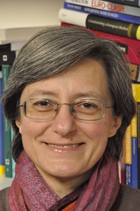
Funzione/Ruolo
Professoressa di Scienza Politica all' Università di Trento
Percorso professionale
Ha conseguito un BA/MA quinquennale in Discipline Economiche e Sociali (DES) presso l’Università Bocconi (1985). Dopo due anni di consulenza aziendale presso un gruppo industriale e di ricerche presso il Dipartimento di Politica industriale dell’Università Bocconi, è stata ammessa al dottorato in Political Science del Massachusetts Institute of Technology (MIT), Cambridge, MA (USA), che ha completato nel 1996. È diventata Amanuensis (Assistant professor), poi Førsteamanuensis (Associate Professor) in Politica Comparata presso il dipartimento di Politikkvitenskap (Political Science) dell’Università di Tromsø (Norvegia) (1994-99). Ha trascorso due anni come Jean Monnet Fellow presso l’Istituto Universitario Europeo (EUI) di Fiesole (Italia) (1999-2000) ed è stata chiamata come Professoressa Associata di Scienza Politica presso l’Università degli Studi di Trento nel 2001. Dal 2010 al 2011 è stata Professorin zu Europäische Politik (European Politics) all’Università di Innsbruck (Austria), ma è tornata come Professoressa ordinaria di Scienza Politica all’Università di Trento dove tuttora ricopre quel ruolo. Mantiene forti legami con l’accademia norvegese, essendo stata professoressa associata di Governance all’Università di Agder (Kristiansand) (2014-18) e ricercatrice associata presso l’ARENA Centre for European Studies dell’Università di Oslo dal 2019. Ha servito come presidente del Conference Group on Italian Politics and Society (CONGRIPS), sezione dell’American Political Science Association (APSA) (2007-09), e come membro poi Chair dell’Executive Committee dello European Consortium for Political Research (ECPR) (2009-15), prima donna a ricoprire questo ruolo, così come quello di Presidente della Società Italiana di Scienza Politica (SISP) (2015-18). E' stata membro del comitato esecutivo dell’International Political Science Association (IPSA) (2018-21).
Ha coordinato corsi di BA e di MA in Studi internazionali presso l’Università di Trento, è stata membro della VQR (Valutazione della Qualità della Ricerca dell’Anvur) (2014-18) e membro dell’ASN (Abilitazione Scientifica Nazionale del MIUR per il settore Scienza Politica, 14/A2) (2018-20).
Risultati scientifici
La tesi di dottorato e primo interesse scientifico è stato lo sviluppo economico di quattro aree del Mezzogiorno d’Italia con attenzione particolare al ruolo svolto dalle élite politiche locali nel promuovere o ostacolare lo sviluppo. Da qui sono derivati interessi paralleli e duraturi per lo studio del clientelismo e del governo locale, da un lato, e delle politiche di sviluppo e più in generale della political economy, dall’altro. Dalle politiche di sviluppo per il Mezzogiorno alla politica di Coesione europea il passo è stato breve e da qui interessarsi al ruolo delle regioni, e del Comitato delle Regioni, nella democrazia europea il passaggio è stato altrettanto logico e naturale. Dall’interesse per la politica europea è derivato poi un interesse particolare per la multilevel governance, tema al quale ha dedicato analisi approfondite e innovative. Più recentemente, lo studio comparato della performance di Italia e Germania durante la crisi dell’euro e i problemi della democrazia europea sono emersi come fuochi d’indagine privilegiata.
Attività editoriali e pubblicazioni
[2001] Piattoni S. ed, Clientelism, Interests and Democratic Representation: The European Experience in Historical and Comparative Perspective, New York: Cambridge University Press. [2003] Bukowski J., Piattoni S., Smyrl M. eds, Between Europeanization and Local Societies. The Space for Territorial Governance, Lanham, MD Rowman & Littlefield.
[2005] Piattoni S., Il clientelismo. L’Italia in prospettiva comparata, Roma: Carocci.
[2010] Piattoni S. The Theory of Multilevel Governance. Conceptual, Empirical and Normative Challenges, Oxford, UK: Oxford University Press.
[2011] Piattoni, S., "The problematic coexistence of functional and territorial representation in the EU", Journal of European Integration, 33 (4): 369-384.
[2015] Piattoni S., Schönlau J., Shaping Policy from Below. EU Democracy and the Committee of the Regions, Cheltenham, UK: Edward Elgar.
[2015] Piattoni S. ed, The European Union: Democratic Principles and Institutional Architectures in Times of Crisis, Oxford, UK: Oxford University Press.
[2016] Piattoni S., Polverari L. eds, Handbook on Cohesion Policy in the EU, Cheltenham, UK: Edward Elgar.
[2017] Piattoni S., “The European Union between Intergovernmentalism and 'Shared and Responsible Sovereignty': The Haptic Potential of EMU's Institutional Architecture (The Leonard Schapiro Lecture 2016)”, Government and Opposition, 52 (3): 385-411.
[2019] Papadopoulos Y., Piattoni S., “The European Semester: Democratic Weaknesses as Limits to Learning”, European Policy Analysis, 2019 (1): 58-79.
[2021] Piattoni S., Notermans T., "Italy and Germany: Incompatible Varieties of Europe or Dissimilar Twins?", German Politics, 30 (3): 319-339.
[2022] Notermans T., Piattoni S. eds, Italy and Germany, Incompatible Varieties of Europe? London, UK: Routledge.
Riconoscimenti e premi
Borsa di studio Villa Vigoni per il dialogo socio-scientifico italo-tedesco: "E la nave va. Prospettive delle scienze sociali su Germania, Italia e Unione Europea dopo un decennio di crisi", 2019.
Borsa di studio Villa Vigoni per il dialogo socio-scientifico italo-tedesco: "Amici come prima? Prospettive delle scienze sociali su Germania, Italia e Unione europea in tempo di crisi", 2017.
Borsa di studio Jean Monnet, Centro Robert Schuman per la ricerca avanzata, Istituto Universitario Europeo, Firenze, 1999-2001.
Borsa di studio per lo studio del tedesco, Centro di studi europei "Minda de Gunzburg", Università di Harvard, estate 1991.
Borsa di studio per tesi di laurea, Fondazione MacArthur, 1991.
Borsa di studio per tesi di laurea, Consiglio per la ricerca sulle scienze sociali, 1990.
Medaglia d'oro come "Miglior studente 1985-86", Università Bocconi, Milano, settembre 1986.
Stage AIESEC in Management Games, Politecnico di Breslavia (Polonia), estate 1983.

Funzione/Ruolo
Professoressa Ordinaria in neuroscienze cognitive all’Università di Trento, presso il Centro Interdipartimentale Mente/Cervello (CIMeC)
Percorso professionale
Manuela Piazza ha completato la sua formazione in Psicologia Sperimentale conseguendo sia una laurea triennale e magistrale presso l'Università di Padova, Italia, dove si è laureata nel 1997. Nel 2003 ha ottenuto un dottorato di ricerca presso l'University College di Londra, Regno Unito presso l'Institute of Cognitive Neuroscience. Inoltre, ha ricevuto un Diploma europeo in neuroscienze cognitive dal Max-Plank Institute for Psychological Research, in Germania. Ha iniziato la sua carriera di ricercatrice come Post-Doc nel laboratorio di Stanislas Dehaene in Francia nel 2003, dove è diventata ricercatrice permanente dell'INSERM nel 2005. Poco dopo si è trasferita in Italia come giovane PI presso il Center for Mind/Brain Sciences dell'Università di Trento, dove è diventata professore associato nel 2015. Dal 1919 al 2022 ha diretto il Master in Scienze cognitive del CIMeC. Nel 2020 ha trascorso alcuni mesi come Fellow dell'Italian Academy for Advanced Studies della Columbia University di New York, USA. Dal 2020 è Professoressa ordinaria di Neuroscienze cognitive presso il Center for Mind/Brain Sciences (CIMeC) e la Facoltà di Scienze cognitive dell'Università di Trento. È membro del Comitato di selezione dell'Università di Trento, nonché di comitati scientifici di diverse prestigiose istituzioni in Francia, tra cui la Fondation Fyssen e il Paris Institute of the Infant Brain. Partecipa anche a commissioni di selezione in tutto il mondo (ICREA Academia for Social & Behavioural Sciences (Spagna); Schwab Center for Dyslexia and Cognitive Diversity (USA); ERC Starting Grants, SH4 (UE)). È attivamente impegnata in diverse attività di sensibilizzazione, tra cui corsi sui disturbi dell'apprendimento per pediatri/logopedisti in Italia, Belgio, Francia e Regno Unito. Ha scritto articoli su quotidiani locali e nazionali e partecipato a interviste radiofoniche in Italia e Francia ("La Stampa", "Vita dell'Infanzia, rivista dell'Opera Nazionale Montessori", "Telerama", "Science et Vie"; "Radio3scienza", "RAI radio1"). Dal 2009 ha ottenuto più di 2 milioni di euro di finanziamenti per sostenere la sua ricerca. I fondi sono stati assegnati dal Ministero italiano, così come da varie fondazioni pubbliche e private (Euregio Region Science Fund, Fondazione Iprase, Fondation Bettencourt, Fondation de France), oltre al supporto dell'Unione Europea attraverso varie Azioni UE-Marie Skłodowska-Curie.
Risultati scientifici
Manuela Piazza è riconosciuta a livello internazionale per i suoi studi sull’intelligenza numerica e sulle basi neurali dell’apprendimento della matematica così come i suoi disturbi. Recentemente ha approfondito lo studio della memoria semantica, dimostrando come i sistemi neurali che supportano l’immagazzinamento ed il recupero della memoria semantica siano sostanzialmente sovrapponibili a quelli coinvolti nella rappresentazione e nella navigazione nello spazio fisico, fornendo un fondamento neurofisiologico al concetto di “mappe concettuali”.
Attività editoriali e pubblicazioni
E’ autrice di oltre 60 articoli scientifici su riviste scientifiche peer-review nei campi delle neuroscienze cognitive e delle scienze dello sviluppo. Il suo lavoro ha ottenuto un notevole riconoscimento, dimostrato da un numero totale di più di 15000 citazioni, con cinque articoli che al 2025 hanno ricevuto più di 1000 citazioni e 24 con più di 100, indicando un impatto sostanziale all'interno della comunità scientifica. È inoltre autrice di 9 capitoli di libri sui fondamenti cognitivi e neurali dell'elaborazione e del calcolo dei numeri, sia negli adulti, sia nei bambini, sia negli individui con disabilità di apprendimento evolutive. E’ invitata regolarmente a tenere conferenze in convegni internazionali, tra cui la "European Conference of Visual Perception"; la "Computational and Systems Neuroscience Conference" ed il “Cognitive Neuroscience Society Meeting”
La lista completa ed aggiornata delle sue pubblicazioni si può trovare su Google Scholar:
https://scholar.google.fr/citations?user=by8C-jMAAAAJ&hl=en&oi=ao

Area Politica internazionale
Competenze: storia dei frozen conflicts, storia della politica estera russa, storia della politica estera sovietica, storia dell'integrazione europea, storia dello spazio post-sovietico
Parole chiave: Comunità Europea, Federazione Russa, frozen conflicts, Unione Europea, URSS
Regione: Liguria
Funzione/Ruolo
Professoressa associata in Storia delle relazioni internazionali presso il Dipartimento di Scienze Politiche e Internazionali dell’Università degli Studi di Genova.
Percorso professionale
Dopo la laurea in Scienze Politiche, indirizzo politico internazionale (Università di Genova), consegue un Master in Logistica, un Master in Comunicazione Pubblica e Politica e un Dottorato in Storia dell’Europa, del federalismo e dell’unità europea presso l’Università di Pavia. Negli anni del dottorato svolge attività di ricerca presso la Facoltà di Storia dell’Università Lomonosov di Mosca. Inizia la sua carriera accademica come assegnista di ricerca all’Università di Trento e di Genova, dove oggi è professoressa associata.
Risultati scientifici
Lara Piccado è membro dell’Associazione universitaria di Studi europei (AUSE), della quale è stata Segretaria generale aggiunta per oltre un decennio e per la quale ha fatto parte del Coordination Team di diversi progetti europei (Azione Jean Monnet). Dal 2006 al 2009 è stata titolare del modulo europeo Jean Monnet in “Storia del partiti europei e dei movimenti per l’unità europea”. Svolge docenze presso il Comando per la Formazione e Scuola di Applicazione dell’Esercito, Post-Conflict Operations Study Centre. È stata Visiting Professor presso la Evropejskij Universitet (European University) di San Pietroburgo per un ciclo di conferenze su History of the European Integration.
Partecipa regolarmente a convegni nazionali e internazionali, è vicedirettrice della rivista «De Europa» dell’Università di Torino e membro del Centro interuniversitario di ricerca sulla storia del federalismo e dell’integrazione europea (CRIE).
Attività editoriali e pubblicazioni
[Monografie]
(2020) Piccardo L. Dalla patria all’umanità. L’Europa di Giuseppe Mazzini, Bologna, il Mulino.
(2017) Piccardo L. Ai confini dell’Europa. Piccola storia della Crimea contesa, Bari, Cacucci.
(2012) Piccardo L. Agli esordi dell’integrazione europea. Il punto di vista sovietico nel periodo staliniano, Pavia, Interregional Jean Monnet Centre of Excellence.
(2007) Piccardo L. L’Europa del nuovo millennio. Storia del quinto ampliamento (1989-2007) Bologna, CLUEB.
[Contributi su libro]
(2020) Piccardo L. Dall’Europa all’Africa: il COMECON tra dimensione regionale e globale, in L’organizzazione internazionale tra universalismo e regionalismo, a cura di Giovanni Finizio, Milano, Cedam: 115-129.
(2019) Piccardo L. State-Euroscepticism First! The Soviet Union against Hypotheses and Moments of the European Unity, in Euroscepticisms. Resistance and Opposition to the European Community/European Union, a cura di D. Preda, G. Levi, Bologna, il Mulino: 565-588.
(2017) Piccardo L. Three Lessons from the Past: Monetary Unions in the 19th Century Europe, in The History of European Monetary Union. Comparing Strategies amidst Prospects for Integration and National Resistance, a cura di Daniela Preda, Bruxelles, Pie Peter Lang: 21-36.
(2015) Piccardo L. Le relazioni tra Unione Europea e Federazione russa: collaborazione o competizione?, in L’Unione Europea tra istituzioni e opinione pubblica, a cura di Marinella Belluati, Paolo Caraffini, Roma, Carocci: 140-150.
(2015) Piccardo L. La perestrojka in politica estera. Gorbacëv e l’integrazione europea, in L’Italia e l’Europa negli anni Ottanta. Storia, politica, cultura, a cura di L. Piccardo, Milano, Franco Angeli: 13-32.
[Articoli in riviste]
(2016) Piccardo L. On the Relations between Russia and Europe, «Il Politico», 241: 29-51.
(2015) Piccardo L. The Historical Dimension of the EU-Russia Relations, «The European Union Review», 20: 33-52.
(2012) Piccardo L. I rapporti tra COMECON e CEE: dalla guerra fredda al mutuo riconoscimento, «La Cittadinanza Europea», 2: 135-152.
Riconoscimenti e premi
Nel 2012 vince il Premio nazionale "Spadolini Nuova Antologia" conferitole per il volume Risorgimento e pedagogia a Genova: il “caso” Emanuele Rossi.

Funzione/Ruolo
Libera Professionista e Docente in Master Universitari. Dirige il Transformative Learning & Equality, un hub che offre servizi formativi, informativi e transformativi sui modelli di cambiamento inclusivi.
Percorso professionale
Consulente, Coaching Formatrice Professionista A.I.F. (Associazione Italiana Formatori) e Docente in Master Universitari, lavora con importanti Sindacati, Enti, Istituzioni, Aziende e Organizzazioni: dal Ministero per la Difesa a Ong e Organizzazioni Internazionali. È referente UISP per lo Sport di Genere, Mentor di PWN (Professional Women Network) e del MIP (Murate Idea Park).
Esperta di linguaggi inclusivi, è referente dell’Accademia di Scienze Forensi per le narrazioni violente.
Scrive e collabora con Repubblica Firenze, Senza Filtro, Ag Cult, Ladynomics, Rai Radio 3 REWRITERS un modello elaborato per la Leadership femminile.
Ha una laurea cum laude in Teoria della Letteratura, una Specializzazione e un Dottorato di Ricerca in Italianistica.
Attività editoriali e pubblicazioni
Eleonora Pinzuti è autrice di Narrazioni e Generi, Seri Editore, 2020 e Con Figure, Editrice Zona, 2018.
Ha inoltre curato (con Ernestina Pellegrini) il volume Bestiari di genere, Sef Editrice Fiorentina, 2009, e il volume Marguerite Yourcenar sulle tracce «des accidents passagers», Bulzoni, 2007.
E' autrice del capitolo "I Queer Studies", in Brioschi, Di Girolamo, Fusillo (a cura di), Introduzione alla letteratura, Carocci, 2013, pp. 246-253.
Riconoscimenti e premi
Selezione Antologia Crocetti Il Nodo Sottile, Carocci, 2003.
Selezione Biennale Giovani Artisti dell’Europa e del Mediterraneo di Atene, 2003.
British Institute of Florence, Grant for Magdalene College di Oxford (UK), 2011.
Selezione nell’ XI Quaderno di Poesia Italiana Contemporanea, 2012.
Primo Premio Nazionale “Poesia di Strada” 2015.

Funzione/Ruolo
Professoressa di Economia e Gestione delle Imprese presso l'Università degli Studi di Torino
Percorso professionale
Professoressa di Economia e Gestione delle Imprese presso l'Università degli Studi di Torino, ha conseguito un PhD in Innovazione, un MBA in Finance e una laurea in Economia e Commercio. È autrice di oltre 100 articoli scientifici pubblicati su prestigiose riviste nazionali e internazionali e di due libri.
È stata Visiting Professor presso la Westminster University e la Glasgow University. Attualmente ricopre i ruoli di Direttrice del Laboratorio AI e Big Data e Responsabile di tutti i progetti di Intelligenza Artificiale dell’Università di Torino. È inoltre Presidente dello Scientific Committee della Randstad Foundation e membro dello Scientific Committee della MIT Business Review.
Ha ricoperto prestigiosi incarichi istituzionali: Ministra per l'Innovazione Tecnologica e la Digitalizzazione della Repubblica Italiana durante il Governo Conte II, Consigliera del Ministero degli Affari Esteri e della Cooperazione Internazionale e del Ministero della Funzione Pubblica durante il Governo Draghi, e Assessora all'Innovazione e Smart City per la Città di Torino durante l'amministrazione Appendino.
Ha maturato una vasta esperienza professionale a livello nazionale e internazionale, collaborando con primarie società di consulenza in progetti di trasformazione tecnologica in diversi settori, tra cui quello bancario, farmaceutico, editoriale e della moda.
Risultati scientifici
Creazione e direzione del lab ICXT per sostenere l’innovazione tecnologica delle PMI.
Creazione e direzione dell’HighEST Lab Laboratorio di AI dell’Università di Torino focalizzato sulla ricerca, applicazione e formazione sull’AI.
Fondatrice e socia dello Spin off Deeplomacy sul monitoraggio e previsione dei conflitti.
Attività editoriali e pubblicazioni
L'elenco aggiornato delle pubblicazioni di Paola Pisano sono disponibili qui: Google Scholar Profile.
Riconoscimenti e premi
2019 Digiwoman 2018: donna più influente nel digitale in Italia (ANSA article)
2021 Tra le 50donne più influenti al mondo nel cambiamento dei governi (https://apolitical.co/list/en/agile-50)

Funzione/Ruolo
Professoressa associata di Semiotica all’Università di Bergamo.
Percorso professionale
Professoressa associata di Semiotica all’Università di Bergamo. Ha pubblicato saggi sul negazionismo, sul razzismo, sul discorso politico, sulla narratologia, sull’umorismo, sulla retorica della memoria e sulla semiotica delle testimonianze. Dal al 1999 al 2003 è stata redattrice e coordinatrice editoriale di Accepting diversity: a Handbook in Progress, manuale interattivo sulla tolleranza nato da un progetto di Umberto Eco, di Furio Colombo e di Jacques Le Goff per l’Académie Universelle des Cultures di Parigi. Collabora occasionalmente con le pagine culturali de Il Manifesto.
Risultati scientifici
I suoi campi di ricerca sono la narratologia e la semiotica interpretativa - lo studio dei meccanismi attraverso cui gli esseri umani conferiscono senso al mondo, all'esperienza e ai testi - con particolare riferimento all'ambito della memoria e della storia. Valentina Pisanty si è occupata specificamente degli usi banalizzanti e sacralizzanti della memoria dello sterminio ebraico (e di altre memorie traumatiche che ne ricalcano la struttura), delle strategie interpretative e discorsive del negazionismo e, più in generale, delle logiche e retoriche del discorso antisemita e razzista. Attorno a questo nucleo di interessi si diramano altre linee di ricerca dedicate all'analisi di fenomeni comunicativi diversi (testimonianze storiche, discorsi giuridici, storytelling politico, umorismo, serialità televisiva, fiaba popolare europea), ma accomunati dalle questioni che sollevano in merito al rapporto culturalmente variabile tra interpretazione, uso e riscrittura dei testi con cui le varie comunità interpretative ritagliano, rappresentano e si predispongono a interagire con porzioni rilevanti del mondo.
Attività editoriali e pubblicazioni
[2021] Pisanty V, Rothberg M. (prefazione), McEwen A. (traduzione), The Guardians of Memory and the Return of the Xenophobic Right), New York, CPL (Centro Primo Levi) Editions.
[2020] Pisanty V. I guardiani della memoria e il ritorno delle destre xenofobe, Milano, Bompiani.
[2019] Pisanty V. “La comprensione umoristica”, in La comprensione linguistica (eds. Alfredo Paternoster e Valentina Pisanty), Milano, Mimesis: 123-142.
[2018] Pisanty V. “Duck or Rabbit? Umberto Eco’s Structuralist Pragmatics”, European Journal of Pragmatism and American Philosophy. X-1. Eco and Pragmatism.
[2017] Pisanty V. “Saul e gli altri: il nuovo cinema sulla Shoah e i dibattiti sulla memoria”, Storica: 9-46.
[2014] Pisanty V. L’irritante questione delle camere a gas: logica del negazionismo, Milano, Bompiani.
[2012] Pisanty, V. Abusi di memoria. Negare, sacralizzare, banalizzare la Shoah, Milano, Bruno Mondadori.
[2009] Pisanty V. Zijno A. Semiotica, Milano, McGraw-Hill.
[2006] Pisanty V. La difesa della razza. Antologia 1938-1943, Milano, Bompiani.
[2004] Pisanty V. Pellerey R. Semiotica e interpretazione, Milano, Bompiani.
[1995] Pisanty V. Cómo se lee un cuento popular, Barcellona, Paidós.
[1993] Pisanty V. Leggere la fiaba, Milano, Bompiani.

Funzione/Ruolo
Professoressa ordinaria di Filosofia del diritto all'Università degli studi di Milano.
Percorso professionale
Francesca Poggi si laurea nel 1999 presso la facoltà di giurisprudenza dell’Università degli Studi di Genova con la votazione di 110 e lode. Nel 2002 ottiene il titolo di avvocata e nel 2003 il Dottorato di ricerca in filosofia analitica e teoria generale del diritto presso l’Università degli Studi di Milano. È assegnista di ricerca presso l’Università degli Studi di Genova fino al 2006, quando diventa ricercatrice a tempo indeterminato presso l’Università degli Studi di Milano. Dal 2012 è professoressa associata presso il Dipartimento Cesare Beccaria, dell’Università degli Studi di Milano e dal 2020 professoressa ordinaria.
Risultati scientifici
Francesca Poggi è un’esperta internazionalmente riconosciuta di interpretazione giuridica e, in particolare, delle relazioni tra linguaggio giuridico e comprensione ordinaria. È revisora per le principali riviste internazionali dedicate a tali temi (quali, ad esempio, Law and Philosophy, Oxford Journal for Legal Studies, International Journal for Semiotics of Law). Tra i finanziamenti più recenti in tale area, è coordinatrice dell’Unità italiana del progetto A language-based theory of legal interpretation, finanziato da Harmonia, Polish National Centre for Science (Grant No. 2018/30/M/HS5/00254). Nel 2020 è stata membro della giuria internazionale de The European Award for Legal Theory.
Dal 2012 si occupa anche di questioni bio-giuridiche e, in particolare, dell’analisi e della critica della normativa e della giurisprudenza italiana su questioni bio-mediche. Dal 2014 è titolare del corso Law and Bioethics presso il Master in Global Rule of Law & Constitutional Democracy, Università degli Studi di Genova. Dal 2015 al 2021 è stata membro del Comitato etico dell’Università degli Studi di Milano.
In tempi più recenti ha intrapreso un percorso di ricerca nell’ambito degli Studi giuridici di genere, occupandosi, in particolare, di eguaglianza e violenza di genere. Nel 2019 ha curato, insieme a Isabel Fanlo Cortés, il fascicolo speciale della rivista About gender “Con o senza diritto. Il diritto e le diseguaglianze di genere”.
Attività editoriali e pubblicazioni
[2021] Poggi F. Tra tutela della salute e rispetto dell’autonomia. La libertà di autodeterminazione femminile nella scelta della modalità del parto. Biolaw Journal (1): 105-117.
[2020] Poggi F. Il modello conversazionale. Sulla differenza tra comprensione ordinaria e interpretazione giuridica. ETS, Pisa.
[2020] Poggi F. Defeasibility, Law, and Argumentation: A Critical View from an Interpretative Standpoint. Argumentation. https://doi.org/10.1007/s10503-020-09544-w
[2020] Poggi F. Il caso Cappato: la Corte Costituzionale nelle strettoie tra uccidere e lasciar morire. BioLaw Journal 20: 81-98.
[2019] Sobre el concepto de violencia de género y su relevancia para el derecho. Doxa 42: 285-307.
[2019] Canale D, Poggi F. Pragmatic Aspects of Legislative Intent. The American Journal of Jurisprudence 64(1): 125-138.
[2018] Poggi F. La medicina difensiva. Mucchi, Modena.
[2016] Poggi F. If I were in your shoes Aspetti concettuali e probatori della responsabilità dolosa nel diritto penale italiano. Ragion Pratica 47: 381-400.
[2016] Poggi F, Sardo A, Do the right thing! Robert Alexy and the claim to correctness. Rechtstheorie 47(4): 413-441.
[2013] Poggi F. Concetti teorici fondamentali. ETS, Pisa.
[2013] Poggi F. The Myth of Literal Meaning in Legal Interpretation. Analisi e diritto 2013: 313-335.
[2011] Poggi F. Law and Conversational Implicatures. International Journal for Semiotics of Law 24(1): 21-40.

Funzione/Ruolo
Responsabile del Coordinamento regionale di Confturismo Toscana in seno a Confcommercio Toscana. Responsabile dei Servizi alle imprese (ambiente, sicurezza, sviluppo) di Confcommercio Provincia di Firenze e Confcommercio Provincia di Arezzo.
Percorso professionale
Dopo la laurea in Ingegneria Ambiente e Territorio conseguita nel 2000 all’Università degli Studi di Firenze, e una specializzazione in Sistemi di gestione Ambientale e della Qualità, nel 2001, entra a far parte, come esperta di Ambiente e Sviluppo sostenibile, del team di Coordinatori di percorsi di Agenda 21 (il Piano di azione dell’ONU per lo sviluppo sostenibile per il XXI secolo) Terre di Siena: un percorso per la realizzazione di progetti di sostenibilità ambientale, economica e sociale sul territorio. Durante questo incarico, realizza pubblicazioni e materiale informativo e si occupa anche della formazione e del coinvolgimento di stakeholders economici e dei servizi e dei giovani, all'interno di percorsi in scuole di secondo grado.
Dal 2002 al 2004, all'interno dell'Ufficio Sviluppo & Consulenza ambientale di Monte dei Paschi Bancaverde Spa, fornisce consulenza sui temi delle certificazioni ISO 9001/ISO 14001 e EMAS per le aziende clienti e per aziende impegnate in investimenti (superiori al 1.000.000 €) nel campo delle Energie rinnovabili (parchi eolici, parchi fotovoltaici, centrali biomasse, impianti di gestione e recupero rifiuti).
E' membro, per diversi anni, di Nucleo di Valutazione Ambiente e Paesaggio di Commissione edilizia comunale.
Si occupa successivamente di marketing territoriale e di attrazione di investimenti diretti esteri dentro Toscana Promozione, Agenzia regionale di promozione economica e turistica dove, dal 2005 al 2012, lavora su temi e progetti di internazionalizzazione attiva e passiva, di ricerca e mappatura dell'offerta economica e scientifico-tecnologica regionale di eccellenza (in più settori: energie rinnovabili, immobiliare, life sciences, ICT, nautica), di promozione estera e, viceversa, della ricerca di partner o investitori esteri per il matching con le eccellenze dell'industria e della R&S regionale.
Segue CEO/Imprenditori di aziende e multinazionali toscane e Responsabili della ricerca di atenei e/o centri di ricerca toscani in missioni/tour promozionali all'estero; accompagna la delegazione selezionata dell'ICT toscana a Tokyo durante gli Eventi della Primavera italiana a Tokyo, nel 2007.
Segue l'organizzazione di incoming in Toscana di Venture Capitalist internazionali specializzati e partecipa alla cura dei relativi incontri bilaterali con imprese e attori del sistema della ricerca toscani selezionati.
Passa successivamente a svolgere attività di Key account per le aziende della meccanica e di alcuni settori dell'High Tech regionale.
Nel 2008 viene nominata nel Consiglio di Amministrazione di APEA (Agenzia provinciale per l'Energia, l'Ambiente e lo Sviluppo locale), società in house nata con compiti e competenze in materia di ambiente ed energia, ampliata successivamente a funzioni di sviluppo economico e progettazione europea.
Dal 2103 svolge attività ingegneristica e tecnico-progettuale, all'interno dell'Ufficio Opere Pubbliche della Provincia di Siena, nell'ambito della difesa del suolo e successivamente nel settore viabilità, occupandosi anche di sicurezza sul lavoro, come Responsabile del Servizio di Prevenzione e Protezione per lo stesso Ente (420 dipendenti).
Nel 2020 viene incaricata dalla multinazionale LCI Italy della funzione di HSE Manager (Sicurezza- Ambiente- Innovazione) per le aziende del gruppo in Italia (oltre 10 aziende).
Dal 2021 svolge attività di coordinamento delle Associazioni e Federazioni del comparto turistico della Regione Toscana afferenti al sistema Confcommercio, di interlocuzione vs le istituzioni, regionali e locali, per lo sviluppo del comparto.
Si occupa altresì, come Responsabile di Servizi alle Imprese, di fornire consulenza e supporto in ambito Ambiente, Sicurezza, Igiene e Privacy alle imprese associate a Confcommercio per la Provincia di Firenze e per la Provincia di Arezzo.
Risultati scientifici
Elisa Poggiali è esperta di sviluppo sostenibile, di promozione territoriale e internazionalizzazione. In particolare, si è occupata di implementazione di sistemi di gestione di impresa o di pubblica amministrazione in chiave di attenzione per l'ambiente, per la qualità, per la sicurezza e di valorizzazione e sviluppo economico attraverso la costituzione di relazioni internazionali (sia in ambito scientifico che economico) e la creazione di network di conoscenze per l'attrazione degli IDE (investimenti diretti esteri) e la crescita delle imprese regionali. Ha competenze sui temi dello sviluppo sostenibile e di condivisione di obiettivi e progetti (piani di azione) per i territori locali. Ha curato e cura lo sviluppo di impresa come consulente e la partecipazione di imprese attive in diversi settori, prevalentemente dell’alta tecnologia e dell’innovazione, a eventi e fiere specializzate all'estero.
Attività editoriali e pubblicazioni
È autrice di alcune pubblicazioni a carattere divulgativo sui temi e sui percorsi di AGENDA 21:
(2002) Iozzi G., Fiorito L., Poggiali E., Valeriani B., AG 21 Terre di Siena, Amministrazione provinciale di Siena.
(2002) Iozzi G., Fiorito L., Poggiali E., Valeriani B., Manuale guida AG21 delle Terre di Siena, Amministrazione provinciale di Siena.
(2003) Iozzi G., Fiorito L., Poggiali E., Valeriani B., Gli strumenti volontari di certificazione ambientale: percorso comune tra pubblico e privato. Circondario Valdelsa, Amministrazione provinciale di Siena.
(2003) Iozzi G., Fiorito L., Poggiali E., Valeriani B., Tracce di un processo: Agenda 21 Terre di Siena- Circondario Valdelsa, Amministrazione provinciale di Siena.
(2003) Iozzi G., Fiorito L., Poggiali E., Valeriani B., I tre volti dell'agricoltura, risorsa economica, socio-culturale ed ecologica per lo sviluppo- Circondario Valdelsa, Amministrazione provinciale di Siena.
(2005) Poggiali E., Manuale operativo di Agenda 21 Locale, Amministrazione provinciale di Siena.
E' autrice della pubblicazione realizzata per la Regione Toscana Dipartimento Politiche Territoriali e ambientali, Area Energia: Biserni, Bolognin, Chaussadis, Cesareo, Giovannoni, Mautone, Penna, Poggiali, Scenari per la realizzazione di parchi eolici da parte di Enti Locali, 2005 e di una pubblicazione sui temi della pianificazione territoriale di area vasta realizzata per l'Amministrazione provinciale di Siena per avvicinare i temi della sostenibilità, delle norme per il governo del territorio, della conservazione degli ecosistemi, dei paesaggi e del governo delle città: Campanini, Poggiali, Introduzione al PTCP della provincia di Siena per i ragazzi della scuola secondaria di secondo grado, 2006.
Si è occupata per anni (2005/2012) di realizzazione e/o revisione di documenti/contenuti per la promozione e comunicazione istituzionale e d'impresa e di web content (www.agenda21.provincia.siena.it www.investintuscany.com ).

Area STEM: Ingegneria
Competenze: economia e pianificazione dei sistemi di trasporto, gestione di aziende complesse di trasporto pubblico con azionariato pubblico/privato, ingegneria dei trasporti
Parole chiave: business plan, innovazione, mobilità, transizione ecologica, trasporti pubblici
Regione: Lombardia
Funzione/Ruolo
Amministratrice delegata di aziende operanti nel settore di trasporti pubblici.
Percorso professionale
Laureata in Ingegneria Civile – Trasporti presso l’Università di Bologna, ha passato un periodo di studio presso l'École Nationale Ponts et Chausèes a Parigi-Francia. E' stata relatrice in numerose conferenze internazionali, con pubblicazioni sia in francese che in inglese. Negli oltre 8 anni passati a Parigi, è stata ricercatrice presso INRETS (Istituto Nazionale Francese di Ricerca sui Trasporti), Reponsabile delle previsioni di medio-lungo termine della domanda di trasporto presso Keolis Group e Responsabile dei modelli di previsione dei passeggeri per i progetti delle linee a grande velocità presso il dipartimento della pianificazione degli investimenti di Rèseau Ferrè de France-SNCF.
Ritornata in Italia nel 2001, ha ricoperto il ruolo di Amministratice Delegata in aziende italiane di trasporto pubblico facenti parte di Arriva Italia- Deutsche Bahn Group. Da giugno 2018 a settembre 2019, ha assunto il ruolo di Business Innovation Director di Arriva Italia. Attualmente sta ricoprendo il ruolo di Direttrice Generale di STIE e Amministratrice Delegata di MOVIBUS, due aziende operanti nei servizi di trasporto pubblico nell’area milanese. E’ inoltre stata Presidente e Consigliera Delegata di ComoNext (Como Innovation Hub).
Risultati scientifici
Annarita Polacchini è esperta di comportamenti di mobilità degli individui, sulle scelte di localizzazione residenziale e di trasporto delle famiglie, progettazione di servizi di trasporto pubblico, gestione di aziende complesse di trasporto pubblico con azionariato pubblico/privato, business plan.
Attività editoriali e pubblicazioni
(1997) J.P.Orfeuil, A. Polacchini, "Les dépenses transports et les dépenses logement des ménages Franciliens" (I costi di trasporto e d’alloggio delle famiglie della regione parigina), DREIF, Paris.
(1997) C. Gallez, J.P.Orfeuil, A. Polacchini, "L’évolution de la mobilité quotidienne : croissance ou réduction des disparités?" (L’evoluzione della mobilità quotidiana: crescita o riduzione delle disparità?), RTS 56- numero speciale -Enquête Nationale Transports et Communications 1994, Paris
(1997) M-H. Massot, A. Polacchini, F.Broqua, J-M. Blosseville, F. Dumontet, M. Parent, "Prior technical and Economical Evaluation of a Station Car System « Praxitéle »" (Analisi tecnica e valutazione economica del sistema di locazione auto di breve durata «Praxitéle»), 4th World Congress on Intellingent Transport Systems, 21-24 Ottobre 1997, Berlin-Germany.
(1997) C. Gallez, L. Hivert, A. Polacchini, "Budgets Energie Environnement des Déplacements (BEED): un outil de diagnostic et de simulation des consommations et émissions polluantes au sein d'une région urbaine" (Budget Energia Ambiente degli Spostamenti : uno strumento per la diagnosi e la simulazione dei consumi e delle emissioni inquinamenti all’interno di una regione urbanizzata), 4° Meeting Internazionale su "Trasporto ed inquinamento dell’aria" - 9-13 giugno 1997, Avignone – apparso in inglese nella rivista «International Journal of Environnement and Pollution».
(1997) J-M. Blosseville, F. Dumontet, M-H. Massot, M. Parent, A. Polacchini, "Performance Evaluation of a Station Car System" - Transport Research Board 1997, 12-16 Janvier 1997, Washington-USA.
(1996) A. Bernard, A. Polacchini, A. Séguin, Y. Bussière, "Household Structure and Mobility Patterns of Women in O-D Survey: Methods and Results Based on the Case Studies of Montreal and Paris" (Struttura familiare e comportamenti di mobilità delle donne : metodi di studio e risultati basati sui dati di Montreal e Parigi), The Second National Conference on Women's Travel Issues', 23-26 Octobre 1996, Baltimora Maryland-USA
(1996) F. Leurent, A. Polacchini - "Sur le choix du mode de transport par les voyageurs en milieu urbain" (Analisi delle scelte del modo di trasporto scelto dai viaggiatori in ambito urbano) – DREIF, Paris.
(1996) C. Gallez, A. Polacchini, L. Hivert, "Le Budget Energie Emissions des Déplacements (BEED): un outil d'évaluation des politiques urbaines" (Budget Energia e Ambiente degli Spostamenti : uno strumento di valutazione delle politiche di pianificazione in ambito urbano), Congresso Inrets – Ademe - 'Environnement, véhicules et mobilité urbaine', Paris, 25 Giugno 1996.
(1995) A. Polacchini - "La mobilité et les échanges de déplacements des Franciliens en fonction d'une typologie de zone urbaine" (Mobilità e scambi di spostamenti nell’area parigina in funzione della tipologia urbana) – Congresso Internazionale dell’Atec a Havre - 17/18 Ottobre 1995.
(1994) F. Leurent, A. Polacchini - "Prospection d'une demande potentielle pour la voiture en libre service urbain" (Proiezione della domanda potenziale per un sistema di auto a noleggio di breve durata in ambito urbano) - Projet Praxitèle-Inrets, Octobre 1994.

Funzione/Ruolo
Professoressa ordinaria di Biologia molecolare all'Università degli Studi di Torino
Percorso professionale
Valeria Poli consegue la laurea in Biologia, nel 1984, e poi il dottorato in Biologia umana, nel 1992, presso l'Università degli Studi di Torino. Dal 1988 al 1990 svolge un post-dottorato all'European Molecular Biology Laboratory di Heidelberg in Germania, e dal 1990 al 1992 alla Columbia University di New York. Dal 1992 al 1997 è Principal Investigator all'Istituto di Ricerche di Biologia Molecolare P. Angeletti di Roma. Dal 1997 al 2001 lavora all'Università di Dundee, in Inghilterra, come Principal Investigator, Wellcome Trust Senior Research Fellow, Honorary Senior Lecturer and Head dell'Unità Transgenica istituita presso il Dipartimento di Biochimica.
Nel 2001 diventa professoressa associata di Biologia molecolare all'Università di Torino, e poi, dal 2005, professoressa ordinaria.
Risultati scientifici
Valeria Poli ha contribuito a progressi fondamentali nella comprensione dei meccanismi che mediano l'attività e la funzione a livello trascrizionale delle citochine (molecole prodotte da vari tipi di cellule e secrete nel mezzo circostante, di solito in risposta a uno stimolo in grado di modificare il comportamento di altre cellule inducendo nuove attività come crescita, differenziazione e morte), in condizioni sia fisiologiche che patologiche. In particolare ha contribuito alla scoperta del fattore di trascrizione IL-6DBP-C/EBPbeta, che media molte delle funzioni dell'Interleuchina 6 (IL-6), una proteina che agisce come citochina multifunzionale, sia pro-infiammatoria, sia anti-infiammatoria; alla generazione e caratterizzazione di ceppi di topo mutati per i geni C/EBPbeta e IL-6, topi poi ampiamente usati dalla comunità scientifica per comprendere le funzioni fisiologiche e patologiche dei due fattori; alla generazione di ceppi murini manipolati geneticamente per il fattore di trascrizione pro-oncogenico STAT3; e infine alla caratterizzazione del ruolo pro-metastatico dei microRNA 143 e 145 nel tumore mammario.
Attualmente le attività del suo laboratorio riguardano principalmente lo studio delle funzioni biologiche del fattore di trascrizione STAT3, il principale mediatore della segnalazione delle citochine appartenenti alla famiglia dell'IL-6, utilizzando modelli cellulari e murini in vivo. In particolare si sta concentrando sulla comprensione dei meccanismi fondamentali delle attività della proteina STAT3 come oncogene, al crocevia tra infiammazione, risposta immunitaria, nicchia delle cellule staminali e tumorali e trasformazione tumorale, analizzando le sue interazioni con altri geni oncogeni / soppressori tumorali e cercando di identificare specifici geni bersaglio pro-oncogenici. Attualmente è impegnata nella ricerca sul rapporto tra cellule tumorali del seno e fibroblasti associati al cancro nella nicchia tumorale, sul ruolo dei microRNAs 143 e 145 nella EMT (Transizione Epitelio Mesenchima) e nella formazione di metastasi, e sul ruolo di STAT3 nella regolazione del metabolismo energetico e dell'omeostasi del calcio nel tumore così come nelle cellule normali.
Attività editoriali e pubblicazioni
Valeria Poli è ed è stata nel comitato editoriale di prestigiose riviste scientifiche come Cell Communication and Signaling, American Journal of Cancer Research, JAK-STAT e Frontiers in Molecular and Cellular Oncology. Svolge regolare attività di revisione scientifica per riviste internazionali come il Journal of Clinical Investigation, l'EMBO Journal, l'European Journal of Immunology, il Journal of Cell Science, il Biochemical Journal, Circulation Research, Cell Death and Differentiation e PLOS ONE.
È co-autrice di più di 130 pubblicazioni, fra cui:
[2018] Avalle L, Camporeale A, Morciano G, Caroccia N, Ghetti E, Orecchia V, Viavattene D, Giorgi C, Pinton P, Poli V. STAT3 localizes to the ER, acting as a gatekeeper for ER-mitochondrion Ca2+ fluxes and apoptotic responses. Cell Death & Differentation, 26: 932-942.
[2017] Avalle L, Incarnato D, Savino A, Gai M, Marino F, Pensa S, Barbieri I, Stadler MB, Provero P, Oliviero S, Poli V. MicroRNAs-143 and -145 induce epithelial to mesenchymal transition and modulate the expression of junction proteins. Cell Death & Differentation, 24: 1750-1760.
[2014] Demaria M, Camporeale A, Poli V STAT3 and metabolism: How many ways to use a single molecule? Int J Cancer, 135 (9): 1997-2003.
[2013] Camporeale A, Marino F, Papageorgiou A, Carai P, Fornero S, Fletcher S, Page BDG, Gunning P, Forni M, Chiarle R, Morello M, Jensen O, Levi R, Heymans S, Poli V. STAT3 activity is necessary and sufficient for the development of immune-mediated myocarditis in mice and promotes progression to dilated cardiomyopathy. EMBO Molecular Medicine, 5: 572–590.
[2012] Demaria M, Misale S, Giorgi C, Miano V, Camporeale A, Campisi J, Pinton P and Poli V. STAT3 can serve as a hit in the process of malignant transformation of primary cells, Cell Death and Differentiation, 19:1390-1397.
[2010] Barbieri I, Pensa S, Pannellini T, Quaglino E, Maritano D, Demaria M, Voster A, Turkson J, Cavallo F, Watson CJ, Provero P, Musiani P and Poli V. Constitutively active Stat3 enhances Neu-mediated migration and metastasis in mammary tumors via upregulation of Cten, Cancer Research, 70:2558-67.
[2009] Vallania F, Schiavone D, Dewilde S, Pupo E, Garbay S, Calogero R, Pontoglio M, Provero P and Poli V. Genome-Wide Discovery of Functional Transcription Factor Binding Sites by Comparative Genomics: the Case of Stat3, Proceedings of National Academy of Sciences of the United States of America, 106:5117-22.
[2004] Maritano D, Sugrue ML, Tininini S, Dewilde S, Strobl B, Fu XP, Murray-Tait V, Chiarle R and Poli V. The STAT3 isoforms, a and b, play unique and specific roles, Nature Immunology, 5:401-409.
[2001] Alonzi T, Maritano D, Gorgoni B, Rizzuto G, Libert C, Poli V. Essential role of STAT3 in the control of the acute phase response as revealed by inducible gene inactivation in the liver. Molecular and Cellular Biology, 21:1621-1632.
[1996] Screpanti I, Musiani P, Bellavia D, Cappelletti M, Aiello FB, Maroder M, Frati L, Modesti A, Gulino A and Poli V. Inactivation of the Interleukin-6 gene prevents development of Castleman's disease in C/EBPß-deficient mice, The Journal of Experimental Medicine, 184:1561-1566.
Riconoscimenti e premi
Valeria Poli è Presidente della Società Italiana di Biofisica e Biologia Molecolare e membro di prestigiose comunità scientifiche quali l'European Molecular Biology Organisation, l'Association of Cellular and Developmental Biology, l'Academia Europaea.
È revisora dei grant per l'European Research Council e fra gli esperti valutatori dei progetti Horizon 2020. Revisora regolare per la valutazione tecnico-scientifica di progetti di ricerca per il MIUR e per diversi enti e istituti internazionali quali il Biotechnology and Biological Sciences Research Council, l'American Institute for Cancer Research, il Pancreatic Cancer Research Fund, l'Austrian Science Fund, la Foundation for Scientific Research Belgium.

Funzione/Ruolo
Atleta paralimpica, fondista e paraciclista.
Percorso professionale
Soprannominata "la rossa volante", gareggia sulla sedia a rotelle perché paraplegica da quando, a diciotto mesi, fu investita da un camion; si è avvicinata all'atletica leggera a diciassette anni. Vanta 12 partecipazioni ai Giochi paralimpici (9 ai Giochi estivi e tre a quelli invernali) e 14 medaglie conquistate Oggi è componente del Consiglio di amministrazione di Milano Cortina e vice Presidente dell’Asd Apre Olmedo.
Carriera atletica. Atleta versatile, si cimenta su distanze che variano dai 100 m alla maratona (vincendo, tra l'altro, quelle di New York, di Londra, di Boston e di Parigi). Ha partecipato a sei edizioni dei Giochi paralimpici estivi, da Seul 1988 a Pechino 2008, vincendo quattordici medaglie. La Porcellato a Pechino è stata anche portabandiera.
Carriera sciistica. Dopo i Giochi paralimpici estivi di Atene 2004 si è dedicata anche allo sci di fondo paralimpico, partecipando ai Giochi paralimpici invernali di Torino 2006 , Vancouver 2010 e Sochi 2014 . Il 21 marzo 2010 ha conquistato la medaglia d'oro nella gara di sprint.
Carriera ciclistica. Dopo le esperienze in atletica e sci di fondo, si è concentrata sulla carriera paraciclistica, gareggiando su handbike nella categoria H3. Nel 2015 ai campionati del mondo su strada di Nottwil (prima partecipazione iridata) si è aggiudicata due medaglie d'oro, nella cronometro e nella gara in linea H3; nella stessa stagione ha vinto un oro e due argenti in eventi di Coppa del mondo. Ai Giochi paralimpici di Rio de Janeiro 2016 ha conquistato 2 medaglie di bronzo mentre ai successivi Giochi di Tokyo 2020 si è aggiudicata una medaglia di argento.
Con Parigi 2024 ha festeggiato la sua 12^ partecipazione ai Giochi Paralimpici (in tutto, 9 estivi, da Seoul 1988 a Tokyo 2020 e 3 invernali, da Torino 2006, passando per Vancouver 2010 e Sochi 2014).

Area Economia e Finanza
Competenze: gestione della moda e del lusso, marketing collaborativo e open innovation, marketing digitale, strategie digitali
Parole chiave: coinvolgimento dei consumatori nei processi di innovazione, comportamenti di consumo in ambiente digitale, marketing e strategia per le aziende della moda e del lusso, nuovi modelli di business, strategie omnicanale, sviluppo di nuovi prodotti
Regione: Lombardia
Funzione/Ruolo
Professoressa associata di Digital Marketing al Dipartimento di Management & Technology, dell'Università Bocconi di Milano.
LVMH Associate Professor of Fashion and Luxury Management.
Direttrice del Master in Fashion, Design, and Experience Management (MAFED), SDA Bocconi School of Management.
Percorso professionale
Emanuela Prandelli si è laureata con Lode all’Università Bocconi con specializzazione in Marketing e nel 1994 ha iniziato a lavorare nel Dipartimento di Management dell’Università Bocconi e nell’Area Marketing della SDA Bocconi. Nel Febbraio 2001 ha conseguito il Ph.D. in Business Administration & Management presso l’Università Bocconi. Nello stesso anno è diventata Ricercatrice e nel 2005 Professoressa Associata nell’ambito dell’Istituto di Technology and Innovation Management presso il medesimo Ateneo. E’ stata Research Assistant presso il Knowledge Source (Centro di ricerca sull’economia della virtualità e le fonti di vantaggio competitivo di tipo knowledge-based) della St. Gallen University e presso il Center for Research on Innovation, Technology, and E-commerce della Kellogg School of Management della Northwestern University di Chicago. E’ stata Visiting Professor presso la stessa Kellogg School of Management e presso la WU Vienna University of Economics and Business. E’ responsabile del Fashion & Luxury Topic della Bocconi Alumni Community.
Risultati scientifici
La sua ricerca approfondisce tematiche di collaborative marketing e open innovation, digital business e social media marketing, contestualizzate in particolare nel mondo della moda e del lusso e nell’industria dell’editoria. La sua metodologia di ricerca è prevalentemente basata su esperimenti volti a misurare l’impatto di diverse strategie di innovazione e marketing sul consumer behavior e le attitudini dei consumatori.
Partecipa sistematicamente con i propri lavori alle maggiori conferenze internazionali su temi di fashion & luxury management, digital strategy, innovation e marketing.
Collabora permanentemente a progetti di ricerca con i colleghi della Kellogg School of Management e della WU Vienna University of Economics and Business.
Attività editoriali e pubblicazioni
Selezione di alcune delle principali pubblicazioni:
[2021] Moreau, P.; Prandelli, E; Schreier, M.; Sielke, S. Customization in Luxury Brands: Can Valentino Get Personal?.Journal of Marketing Research, September, Vol. 57(5) 937-947.
[2020] Prandelli E., Verona G. Human Digital Enterprise, Egea, Milano.
[2020] Cillo P., Nunes J., Prandelli E., Scopelliti I. Changing Style in Style-Changing Industries: The Role of Critics as Gatekeepers in High-End Fashion. In Special Issue of Advances in Strategic Management “Style in Strategy and Strategy of Style: Theoretical Developments, Empirical Results, and Research Agenda”.
[2016] Prandelli E., Pasquini, M. Verona G. In user's shoes: An experimental design on the role of perspective taking in discovering entrepreneurial opportunities. Journal of Business Venturing, 31, pp. 287-301.
[2013] Dahl, D.; Fuchs, C.; Prandelli E.; Schreier, M. All that is Users Might not be Gold: How Labeling Products as User-designed Backfires in the Context of Luxury Fashion Brand. Journal of Marketing, September, Vol. 77, pp. 75-91.
[2010] Fuchs, C.; Prandelli, E.; Schreier, M. Psychological Effects of Empowerment Strategies on Consumers' Product Demand. Journal of Marketing, January, pp. 65-79.
[2008] Sawhney M., Prandelli E., Verona G. Collaborating with Customers to Innovate. Conceiving and Marketing Products in the Network Age, July, Edgar, Sheffield Brightman.
[2006] Prandelli E., Verona G., Raccagni D. Web-based Product Innovation. California Management Review, Summer 48 (4), pp. 109-135.
[2006] Verona G., Prandelli E., Sawhney, M. Innovation and virtual environments: towards virtual knowledge brokers.Organization Studies, 27(6), pp. 765-788.
[2005] Sawhney M., Verona G., Prandelli E. Collaborating to Create: The Internet as a Platform for Customer Engagement in Product Innovation, Journal of Interactive Marketing, 19(4), pp. 3-17.
[2003] Sawhney M., Prandelli E., Verona G. The Power of Innomediation. MIT Sloan Management Review, Winter, 44 (2), pp. 77-82.
[2002] Prandelli E., Verona G. Marketing in Rete. Analisi e decisioni nell’economia digitale, McGraw Hill, Milano.
[2000] Sawhney M., Prandelli E. Communities of Creation: Managing Distributed Innovation in Turbulent Markets. California Management Review, Vol. 42, n. 4, Summer, pp. 24-54
Riconoscimenti e premi
Emanuela Prandelli è stata assegnataria del premio di Eccellenza nella ricerca dell’Università Bocconi per i periodi 2001-2003, 2005-2007, 2013-2014 e 2020.
Nel 2021 ha vinto il Premio del Club Canova per il miglior libro di management pubblicato nell'anno 2020, con “Human digital enterprise. Creare e co-creare valore in un contesto omni-data”, co-autore G. Verona. Nel 2012 ha vinto il Premio “Eccellenza per l’Innovazione” nell’ambito dei programmi su commessa e nel 2008 ha ricevuto il premio di miglior docente dell’anno per i corsi a catalogo dell’Area Marketing erogati nel 2007.
Nel 2001 ha vinto l’Accenture Award per il miglior articolo di management pubblicato su California Management Review nell’anno 2000 e il Best Management Paper dell’Università Bocconi. E’ stata Runner-up per il Theo Scholler-Preis, Munich Best Paper Award in Innovation Management nel 2011 e per il Journal of Interactive Marketing Award nel 2006 per il “Best Paper published in the Journal of Interactive Marketing in 2005”.
La sua Ph.D. Disseration ha ottenuto riconoscimenti e finanziamenti da parte della Booz Allen & Hamilton e del Marketing Science Institute di Cambridge.
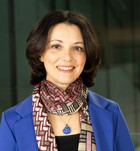
Funzione/Ruolo
Professoressa ordinaria e KPMG Chair in Accounting, dipartimento di Accounting, Università Bocconi. Direttrice della Scuola Universitaria Bocconi. Presidente della European Accounting Association.
Percorso professionale
Dopo aver conseguito la laurea in Economia Aziendale presso l’Università Bocconi, Annalisa Prencipe prosegue la sua formazione con un Ph.D. in Economia Aziendale e Management presso lo stesso ateneo (2001). Nel 2010 diventa professoressa associata alla Bocconi per poi diventare professoressa ordinaria nel 2016. Ha svolto attività di ricerca anche per la NYSE ed è stata visiting scholar alla Hebrew University of Jerusalem. Nel 2016 diventa Direttrice della Scuola Universitaria Bocconi e viene eletta membro del Management Committee della European Accounting Association, della quale diventa Presidente nel 2021.
Risultati scientifici
Annalisa Prencipe svolge attività di ricerca su temi di accounting, con particolare attenzione alle tematiche delle politiche di bilancio, della trasparenza informativa e dei principi contabili. E’ stata tra i primi a occuparsi delle tematiche di accounting applicate alle imprese a controllo famigliare, sulle quali continua a svolgere attività di studio e ricerca. Più di recente, Annalisa Prencipe ha ampliato le sue attività di ricerca ai temi dell’informativa non-finanziaria, della sostenibilità e degli effetti della regolamentazione contabile sull’economia reale.
Ha partecipato a diversi progetti di ricerca finanziati a livello nazionale e internazionale.
Attività editoriali e pubblicazioni
Annalisa Prencipe è stata membro del comitato editoriale di diverse riviste internazionali quali: European Accounting Review, Journal of Accounting Auditing and Finance, Accounting in Europe e Accounting and Business Research.
E’ autrice di numerosi articoli e volumi sui temi dell’accounting, tra cui:
[2022] Siciliano G., Prencipe A., Radhakrishnan S. Trust, Family Firms and M&A Quality. Asia-Pacific Journal of Accounting & Economics.
[2021] Minichilli A., Prencipe A., Siciliano G., Radhakrishnan S. What's in a Name? Eponymous Private Firms and Financial Reporting Quality. Management Science, vol. 68, n. 3.
[2021] Prencipe A., Viarengo L. Should I trust you? Bidder’s earnings quality as an indicator of trustworthiness in earnout agreements. The International Journal of Accounting.
[2020] Ivanova M., Prencipe A. The effects of board interlocks with an allegedly fraudulent company on audit fees.Journal of Accounting Auditing and Finance.
[2018] Viarengo L., Gatti S., Prencipe A. Enforcement Quality and the Use of Earnouts in M&A Transactions: International Evidence. Journal of Business Finance and Accounting.
[2016] D’Augusta C., Bar-Yosef S., Prencipe A. The Effects of Conservative Reporting on Investor Disagreement, European Accounting Review, n. 3.
[2016] Cameran M., Prencipe A., Trombetta M. Mandatory Audit Firm Rotation and Audit Quality, European Accounting Review, n. 1.
[2013] Bar-Yosef S., Prencipe A. The Impact of Corporate Governance and Earnings Management on Stock Market Liquidity in a Highly Ownership Concentrated Capital Market, Journal of Accounting, Auditing and Finance, n. 3.
[2012] Prencipe A. Earnings management in domestic versus multinational firms: discussion of “Where do firms manage earnings? Review of Accounting Studies, n. 3.
[2011] Prencipe A., Bar-Yosef S., Mazzola P., Pozza L. Income smoothing in family-controlled companies: Evidence from Italian listed companies. Corporate Governance: an International Review, n. 6.
[2011] Prencipe A., Bar-Yosef S., Corporate governance and earnings management in family-controlled companies. Journal of Accounting, Auditing and Finance, n. 2.
[2006] Prencipe A., Earnings quality. Pearson Education, Milano.
Riconoscimenti e premi
Tra questi, il Premio Donato Menichella (2018), il Premio Virgo Fidelis (2018), l’Impact of Research Award (2020) e il titolo di Alfiere del Lavoro dal Presidente della Repubblica Italiana (1990).
Attualmente è titolare della KPMG Chair in Accounting. E’ inoltre la prima donna italiana a ricoprire la carica di Presidente della European Accounting Association.
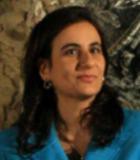
Funzione/Ruolo
Ricercatrice CNR, Responsabile del Laboratorio di Crescita Epitassiale (MOVPE ed MBE) dell'Istituto per la Microelettronica e Microsistemi (IMM) del CNR (sede di Lecce), Responsabile Scientifica per l'IMM delle attività di ricerca della Rete di Laboratori Pubblici di Ricerca PHASHYN
Percorso professionale
Dopo la laurea in Fisica nel 1991 all'Università degli Studi di Lecce, prosegue la sua formazione attraverso un dottorato di ricerca in Fisica, presso l'Università degli Studi di Bari, conseguendone il titolo nel 1996. Nel settembre 1996 vince una posizione post-dottorato per un anno in Galles, Gran Bretagna, presso il North East Wales Institute (NEWI), adesso Glyndwr University. Dal marzo 1998 è ricercatrice in Fisica della Materia presso l'IMM (Istituto per la microelettronica e i Microsistemi) del CNR, sezione di Lecce. Nel 1996/97 è docente presso diverse istituzioni straniere in Gran Bretagna, nell'ottobre 1998 Visiting Scientist presso la Chiba University, Chiba, Giappone e dal 1997 al 2011 professoressa a contratto presso la Facoltà di Ingegneria dell'Università del Salento. È relatrice di numerose tesi di laurea e dottorato.
Risultati scientifici
Le competenze di Paola Prete riguardano lo studio della crescita di materiali semiconduttori composti, in particolare nanofili, e delle loro proprietà ottiche, morfologiche e funzionali. In particolare, lo studio della sintesi di materiali semiconduttori mediante tecnologie epitassiali (da fase vapore, MOVPE e da fasci molecolari, MBE), lo studio delle proprietà fisiche, chimiche e morfologiche attraverso tecniche di spettroscopia ottica (luminescenza ed assorbimento) e di microscopia elettronica (FE-SEM, catodoluminescenza).
La ventennale attività di ricerca di Paola Prete è iniziata con lo studio delle proprietà ottiche e strutturali di etero-strutture a bassa dimensionalità di semiconduttori per applicazioni optoelettroniche. Attualmente lavora nel campo delle nanotecnologie studiando ed impiegando le tecniche di sintesi bottom-up nella fabbricazione di nano-strutture quasi-1D per applicazioni ai dispositivi per la nano-optoelettronica, fotonica e sensoristica. Tra le attività di ricerca più recenti, di particolare rilievo è l'applicazione delle nanotecnologie alle energie rinnovabili, ed in particolare all'energia solare da fonte fotovoltaica, nell'ambito della Rete di Laboratori Pubblici di Ricerca PHASHYN. Le ricerche di Paola Prete mirano alla realizzazione di celle solari di III-generazione ad alta efficienza, costituite da nanofili, (nanocristalli di semiconduttori delle dimensioni di un virus, cioè dell'ordine di poche decine di milionesimi di millimetro). Le tecnologie che Paola Prete sta sviluppando a Lecce consentiranno di impacchettarne decine di miliardi per centimetro quadro: una tecnologia sofisticata e fruibile che potrà garantire, in un futuro non troppo lontano, incrementi sostanziali nel rendimento delle celle e costi di fabbricazione relativamente bassi. All'interno di questa tematica si inserisce anche lo studio della crescita epitassiale van der Waals di materiali 2-dimensionali (quali il grafene e i materiali ‘graphene-like'). Paola Prete fa parte del Comitato Consultivo e di quello Scientifico di diversi congressi internazionali. Iscritta all'Albo degli esperti dell'Agenzia Regionale per la Tecnologia ed Innovazione della Regione Puglia (A.R.T.I.), è valutatrice di progetti di ricerca, sviluppo precompetitivo e trasferimento tecnologico dell'ARTI Puglia.
Attività editoriali e pubblicazioni
Dal 2011 è fondatrice ed Editor-in-Chief della rivista scientifica open access "Nanomaterials and Nanotechnology", SAGE, USA (2016 Impact Factor 1.536).
Dal dicembre 2016 è anche Associate Editor della prestigiosa rivista "Progress in Crystal Growth and Characterization of Materials", Elsevier (2016 Impact Factor 3.4).
Editor di libri e Guest Editor di numerosi volumi internazionali e Special Issue su riviste scientifiche peer-reviewed quali "Progress in Crystal Growth and Characterization of Materials" (Elsevier), "Crystal "Research and Technology" (Wiley-VCH), "Applied Physics A: Material Science and Processing" (Springer).
È autrice di più di 120 pubblicazioni su riviste scientifiche nazionali ed internazionali, fra cui:
[2018] Wolf D, Huebner R, Niermann T, Sturm S, Prete P, Lovergine N, Buechner B, Lubk A, Three-Dimensional Composition and Electric Potential Mapping of III-V CoreMultishell Nanowires by Correlative STEM and Holographic Tomography. Nano Letters, 18 (8) 4777-4784.
[2017] Di Carlo V, Prete P, Dubrovskii V G, Berdnikov Y, Lovergine N, CdTe nanowires by Au-catalyzed Metalorganic Vapor Phase Epitaxy. Nano Letters, in stampa (pubblicato on-line 14 giugno, 2017), DOI: 10.1021/acs.nanolett.7b00719.
[2015] Bianco GV, Losurdo M, Giangregorio MM, Sacchetti A, Prete P, Lovergine N, Capezzuto P, and Bruno G, Direct epitaxial CVD synthesis of tungsten disulfide on epitaxial and CVD graphene. RSC Advances, 5:98700-98708.
[2015] Chen G., McGuckin T, Hawley C J, Gallo EM, Prete P, Miccoli I, Lovergine N, Spanier J E, Subsurface imaging of coupled carrier transport in GaAs/AlGaAs core-shell nanowires. Nano Letters, 15 (1):75-79.
[2015] Miccoli I, Prete P, Lovergine N, A mass-transport limited model describing the MOVPE growth of III-V shells around dense free-standing nanowire arrays. CrystEngComm, 17 (31): 5998-6005.
[2014] Lubk A, Wolf D, Kern F, Roeder F, Prete P, Lovergine N, Lichte H, Nanoscale three-dimensional reconstruction of elastic and inelastic mean free path lenghts by electron holographic tomography. Applied Physics Letters, 105 (17):173101.
[2013] Chen G, Sun G, Ding Y J, Prete P, Miccoli I, Lovergine N, Shtrikman H, Kung P, Livneh T, J. E. Spanier J E, Direct measurement of band edge discontinuity in individual core-shell nanowires by photocurrent spectroscopy, Nano Letters, 13:4152−4157
[2012] Persano A, Taurino A, Prete P, Lovergine N, Nabet B, Cola A, Photocurrent properties of single GaAs/AlGaAs core-shell nanowires with Schottky contacts. Nanotechnology 23 (46):465701 (6pp).
[2011] Chen G, Gallo E M, Leaffer O D, McGuckin T, Prete P, Lovergine N, Spanier J E, Tunable hot-electron transfer within a single core-shell nanowire. Physical Review Letters, 107:156802 (1-5).
[2011] Gallo E M, Chen G, Currie M, McGuckin T, Prete P, Lovergine N, Nabet B, Spanier J E, Picosecond response times in GaAs/AlGaAs core/shell nanowire-based photodetectors. Applied Physics Letters 98 (24):241113 (3pp).
[2011] Wolf D, Lichte H, Pozzi G, Prete P, Lovergine N, Electron holographic tomography for mapping the three-dimensional distribution of electrostatic potential in III-V semiconductor nanowires. Applied Physics Letters 98 (26): 264103 (3pp).
Riconoscimenti e premi
Paola Prete ha vinto il Premio dell'Associazione Italiana di Cristallografia (AIC) per l'anno 2000, riservato a giovani scienziati operanti nel campo della cristallografia che abbiano ottenuto risultati innovativi di interesse cristallografico sia teorico che applicativo, conferito con la seguente motivazione: "per i risultati innovativi ottenuti nello studio della crescita di semiconduttori e la determinazione delle loro proprietà ottiche e strutturali".
Dal 2006 fa parte della Commissione Crescita Cristalli dell'AIC dal 2006.
Nel triennio 2012-2014 è stata coordinatrice della Commissione Crescita Cristalli dell'AIC e rappresentante per l'Italia della International Organization of Crystal Growth (IOCG).
Nel 2015 è stata direttrice della European School on Crystal Growth (ESCG2015), Bologna 5-8 settembre 2015.

Funzione/Ruolo
Responsabile della linea di ricerca in "Life Science" del MOSE (Molecular Simulation Engineering) di Trieste
Percorso professionale
Dopo la laurea in Chimica presso l'Università di Trieste, nel 1986 ottiene l'abilitazione alla professione. Dal 1986 al 1990 lavora come borsista all'Area Science Park di Trieste e all'Università di Trieste. Dal 1990 al febbraio 2002 è assistente alla docenza presso la Facoltà di Ingegneria dell'Università degli Studi di Trieste. Dal 2002 è professoressa associata di Ingegneria Chimica nella stessa facoltà.
Risultati scientifici
Le attività di ricerca principali sono focalizzate sullo studio, la correlazione e la previsione delle relazioni struttura / proprietà di sistemi molecolari complessi come dendrimeri (macromolecole dotate di una caratteristica struttura ad albero), proteine e trasportatori di farmaci. Nel 2014 Sabrina Pricl, assieme agli altri ricercatori del MOSE (MOlecular Simulation Engineering) di Trieste ed ai colleghi del MD Anderson Cancer Center di Houston, pubblica i risultati dello studio condotto sulla Leucemia Mieloide Cronica (CML). Lo studio ha individuato le dinamiche molecolari responsabili delle resistenze ai farmaci mirati. Si è dimostrato come i pazienti sottoposti alla terapia a lungo termine sviluppassero delle mutazioni di una particolare proteina (BCR-ABL1) che rendevano poco efficace la terapia stessa. Sabrina Pricl e colleghi hanno così fornito informazioni importanti per il trattamento della Leucemia Mieloide Cronica, consentendo non solo la possibilità di formulare una terapia personalizzata per il paziente, ma anche indagando la possibilità di creare principi attivi antagonisti alla mutazione della proteina. Sempre nel 2014, nell'ambito di una ricerca internazionale, Sabrina Pricl e colleghi sviluppano un "nanovettore" capace di trasportare e proteggere piccoli filamenti di RNA che hanno importanti capacità terapeutiche anti tumorali e anti virali. In assenza di questi "nanovettori" i piccoli filamenti di RNA non possono essere utilizzati a scopi terapeutici perché riconosciuti dal sistema immunitario come "esogeni" e quindi distrutti. La scoperta è di assoluta importanza per lo sviluppo di nuove terapie.
Attività editoriali e pubblicazioni
Sabrina Pricl è autrice di numerose pubblicazioni scientifiche nazionali ed internazionali, fra cui:
(2020) Laurini E, Marson D, Aulic S, Fermeglia M, Pricl S. Computational Alanine Scanning and Structural Analysis of the SARS-CoV-2 Spike Protein/Angiotensin-Converting Enzyme 2 Complex. ACS Nano. 2020 Sep 22;14(9):11821-11830. doi: 10.1021/acsnano.0c04674. Epub 2020 Aug 26. PMID: 32833435
(2020) Laurini E, Marson D, Aulic S, Fermeglia A, Pricl S. Computational Mutagenesis at the SARS-CoV-2 Spike Protein/Angiotensin-Converting Enzyme 2 Binding Interface: Comparison with Experimental Evidence. CS Nano. 2021 Mar 18. doi: 10.1021/acsnano.0c10833. Online ahead of print. PMID: 33733740
(2016) Chen C, Posocco P, Liu X, Cheng Q, Laurini E, Zhou J, Liu C, Wang Y, Tang J, Dal Col V, Yu T, Giorgio S, Fermeglia M, Qu F, Liang Z, Rossi JJ, Liu M, Rocchi P, Pricl S, Peng L. Mastering dendrimer self-assembly for efficient siRNA delivery: from conceptual design to in vivo efficient gene silencing. Small, 12:3667-3676.
(2015) Brambilla L, Genini D, Laurini E, Merulla J, Perez L, Fermeglia M, Carbone GM, Pricl S, Catapano CV. Hitting the right spot: Mechanism of action of OPB-31121, a novel and potent inhibitor of the Signal Transducer and Activator of Transcription 3 (STAT3). Molecular Oncology, 9:1194-1206.
(2015) Tuo W, Chao C, Juan L, Cheng L, Posocco P, Xiaoxuan L, Qiang C, Shuaidong H, Zicai L; Fermeglia M, Pricl S, et al. Anticancer drug nanomicelles formed by self-assembling amphiphilic dendrimer to combat cancer drug resistance. Proceedings of The National Academy of Sciences of The United States of America, 112:2978-2983.
(2014) Gibbons DL, Pricl S, Posocco P, Laurini E, Fermeglia M, Sun H, Talpaz M, Donato N. Quintás-Cardama A. Molecular dynamics reveal BCR-ABL1 polymutants as a unique mechanism of resistance to PAN-BCR-ABL1 kinase inhibitor therapy. Proceedings of The National Academy of Sciences of The United States of America, 111:3550-3555.
(2014) Liu X, Zhou J, Yu T, Chen C, Cheng Q, Sengupta K, Huang Y; Li H, Liu C, Wang Y, Posocco P, Wang M, Cui Q, Giorgio S, Fermeglia M, Qu F, Pricl S, et al. Adaptive Amphiphilic Dendrimer-Based Nanoassemblies as Robust and Versatile siRNA Delivery Systems. Angewandte Chemie. International Edition, 53, 11822-11827.
(2012) Posocco P, Gentilini C, Bidoggia S, Pace A, Franchi P, Lucarini M, Fermeglia M, Pricl S, Pasquato L. Self-organization of mixtures of fluorocarbon and hydrocarbon amphiphilic thiolates on the surface of gold nanoparticles. Acs Nano, 6:7243-7253.
(2011) Barnard A, Posocco P, Pricl S, Calderon M, Haag R, Shum WT, Pack WD, Smith DK. Degradable Self-Assembling Dendrons for Gene Delivery - Experimental and Theoretical Insights into the Barriers to Cellular Uptake. Journal Of The American Chemical Society, 133:20288-20300.
(2011) Pierotti M, Tamborini E, Negri T, Pricl S, Pilotti S. Targeted therapy in GIST: in silico modeling for prediction of resistance. Nature Reviews. Clinical Oncology, 8:161-170.
(2009) Negri T, Pavan GM, Virdis E, Greco A, Fermeglia M, Pricl S, Pierotti MA, Pilotti S, Tamborini E. T670X KIT mutations in gastrointestinal stromal tumors: making sense of missense. Journal Of The National Cancer Institute, 101: 194-204.
(2006) Tamborini E, Pricl S, Negri T, Lagonigro MS, Miselli F, Greco A, Gronchi A, Casali P, Ferrone M, Fermeglia M, Pierotti MA, Pilotti S. Functional analyses and Molecular modeling of two c-Kit mutations responsible for Imatinib secondary resistance in GIST patients. Oncogene, 25, 6140-6146.
Riconoscimenti e premi
Sabrina Pricl fa pate delle seguenti società scientifiche: American Chemical Society, The Society of Rheology, Italian Society of Rheology, American Institute of Chemical Engineering, COMSEF (Computational Molecular Science & Engineering Forum), Editorial Board of Carbohydrate Polymers.
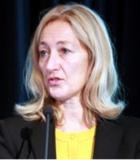
Funzione/Ruolo
Direttrice scientifica presso l'IRCSS Fondazione Salvatore Maugeri di Pavia e Professoressa ordinaria di Cardiologia all'Università di Pavia
Percorso professionale
Silvia Giuliana Priori si laurea in Medicina e Chirurgia nel 1986 all'Università degli Studi di Milano, per poi specializzarsi in Cardiologia presso la stessa università, conseguendo nel 1995 il dottorato di ricerca in Fisiopatologia Cardiaca. Dopo un periodo di training formativo all'estero, nei laboratori di Elettrofisiologia Cellulare del Dipartimento di Cardiologia della Washington University, torna in Italia per svolgere uno stage di ricerca in biologia molecolare presso il Telethon Institute for Genetics and Medicine (TIGEM) a Milano. Dal 2008 al gennaio 2016 è Professor of Medicine e Direttrice del Programma di Genetica alla Leon H. Charney Division of Cardiology dell'Università di New York. Attualmente è professoressa ordinaria di Cardiologia all'Università degli Studi di Pavia. Oltre all'attività accademica, Silvia Giuliana Priori coordina diversi laboratori e reparti: è Direttrice Scientifica Centrale della Fondazione Salvatore Maugeri Clinica del Lavoro e della Riabilitazione IRCCS e Direttrice del Reparto di Cardiologia Riabilitativa e del Servizio di Cardiologia Molecolare presso la stessa Fondazione. Dirige e coordina anche programmi internazionali, come il Programma di Genetica Cardiovascolare Genetica Cardiovascolare presso il Centro National de Investigaciones Cardiovasculares Carlos III (CNIC) di Madrid.
Risultati scientifici
Dal 1997 ha iniziato lo sviluppo di una linea di ricerca autonoma nei laboratori da lei diretti. Fondendo l'attività clinica sulle malattie aritmogene (malattie cardiache che provocano aritmie) alle competenze di biologia molecolare ed elettrofisiologia cellulare, ha creato il primo centro in Italia, e uno dei primi al mondo, di Cardiologia Molecolare dove studia i meccanismi delle aritmie cardiache che provocano morti improvvise in bambini e adolescenti. Ha ottenuto importanti successi nella ricerca sulla sindrome del QT lungo (LQTS, dall'inglese "Long Q-T Syndrome"), una rara anomalia cardiaca caratterizzata da una ritardata ripolarizzazione delle cellule miocardiche ed associata a sincope, e sulla sindrome di Brugada, anch'essa una patologia cardiaca con disturbi dell'attività elettrica del cuore che porta all'arresto cardiaco. L'équipe che dirige è impegnata in un progetto di ampio respiro basato sulla creazione di innovativi modelli animali di malattie genetiche e sullo sviluppo di strategie molecolari avanzate per correggere i difetti genici attraverso l'utilizzo di virus adenoassociati (capaci di integrarsi nel genoma della cellula ospite anche in assenza di proliferazione cellulare) per silenziare i geni malati e per riesprimere quelli sani.
Attività editoriali e pubblicazioni
Autrice di numerose pubblicazioni nazionali ed internazionali tra cui:
(2016) Mosca B, Eckhardt J, Bergamelli L, Priori SG, et al. Role of the JP45-calsequestrin complex on calcium entry in slow twitch skeletal muscles. Journal of Biological Chemistry, 291(28):14555-65.
(2016) Mazzanti A, Priori SG. Brugada Syndrome. Journal of the American College of Cardiology, 68(6):624-625.
(2016) Faragli A, Underwood K, Priori SG, Mazzanti A. Is There a Role for Genetics in the Prevention of Sudden Cardiac Death?.Journal of Cardiovascular Electrophysiology.
(2016) Mosca B, Eckhardt J, Bergamelli L, Priori SG, et al. Role of the JP45-Calsequestrin Complex on Calcium Entry in Slow Twitch Skeletal Muscles.Journal of Biological Chemistry, 291(28).
(2016) Chyou JY Fredman D, Cerrone M, Priori SG, et al. Electrocardiographic features of sudden unexpected death in epilepsy, Epilepsia.
(2016) Curcio A, Mazzanti A, Bloise R, Priori SG, et al. Clinical Presentation and Outcome of Brugada Syndrome Diagnosed With the New 2013 Criteria.Journal of Cardiovascular Electrophysiology, 27(8):937-43.
(2016) Mazzanti A, Maragna R, Faragli A, Priori SG, et al. Gene-Specific Therapy With Mexiletine Reduces Arrhythmic Events in Patients With Long QT Syndrome Type 3.Journal of the American College of Cardiology, 67(9):1053-1058.
(2016) Imberti JF, Underwood K, Mazzanti A, Priori SG. Clinical Challenges in Catecholaminergic Polymorphic Ventricular Tachycardia.Heart, Lung and Circulation, 25(8).
(2015) Priori SG, Blomstorm-Lundqvist C, Mazzanti A, et al. 2015 ESC Guidelines for the Management of Patients With Ventricular Arrhythmias and the Prevention of Sudden Cardiac Death. Revista Española de Cardiología, 69(2):176.
(2015) Ferrantini C, Coppini R, Scellini B, Priori SG, et al. R4496C RyR2 mutation impairs atrial and ventricular contractility.The Journal of General Physiology, 147(1).

Funzione/Ruolo
Senior Research Fellow presso l’Overseas Development Institute (Londra, Regno Unito)
Percorso professionale
Dopo aver conseguito la laurea in Economia e Commercio (Universita’ di Padova) nel 2003, trascorso un periodo di studio presso il Dipartimento di Economia della Essex University (Regno Unito) e completato la laura specialistica in Integrazione Economica Internazionale (Universita’ di Pavia) nel 2005, interprende gli studi di dottorato in Economia Politica e Finanza Pubblica (Universita’ di Pavia), che termina nel 2009. La tesi ha analizzato diversi aspetti dei problemi della sostenibilita’ del debito estero nei paesi a basso reddito. Durante il periodo degli studi di dottorato, ha lavorato come consulente sui temi del debito estero presso l’Economic Policy and Debt Department delle Banca Mondiale e ha trascorso un periodo di studi come Visiting Scholar presso la Notre Dame University (Stati Uniti). Dal 2008 al 2011 ha lavorato come Economista presso il Centro di Sviluppo dell’OCSE, trattando di temi legati alla sostenibilita’ del debito, aiuto pubblico allo sviluppo e macroeconomia dello sviluppo nei paesi emergenti e in Africa sub-Sahariana. Dal 2011 Annalisa lavora presso l’Overseas Development Institute (ODI) di Londra, una delle piu’ prestigiose think-tank nell’ambito dello sviluppo, dove conduce e coordina programmi di ricerca e di consulenza per governi e organizzazioni internazionali sui temi della cooperazione internazionale e dell’aiuto pubblico allo sviluppo.
Risultati scientifici
Annalisa Prizzon ha condotto e coordinato progetti di ricerca e consulenza in collaborazione con Ministeri degli Affari Esteri e agenzie di cooperazione allo sviluppo in Europa, Africa e Asia, organizzazioni internazionali, banche multilaterali di sviluppo e organizzazioni della societa’ civile. Ha ampia esperienza sul campo, in particolare in Africa (Botswana, Egitto, Etiopia, Ghana, Kenya, Liberia, Malawi, Senegal, Zambia), America Latina (Cile, Messico) e Asia (Fiji, Indonesia, Mongolia, Papua Nuova Guinea, Vietnam).
Ha pubblicato estensivamente sui temi della cooperazione internazionale, sull’allocazione ed efficacia del finanziamento e dell’aiuto pubblico allo sviluppo, sulle implicazioni del debito estero per i Paesi Africani e sull’architettura e operazioni delle banche di sviluppo multilaterali.
Attività editoriali e pubblicazioni
Annalisa Prizzon e’ referee di European Journal of Development Research, The Review of International Organizations, Development Policy Review, World Economy, Oxford Development Studies, Sustainability, Journal of Pacific Studies.
Ha contributo a diversi policy paper sui temi della cooperazione allo sviluppo e peer-reviewed journals ad esempio:
[2018] Mustapha S, Prizzon A, Debt relief initiatives 20 years on and implications of the new development finance landscape, in Third World Thematics: A TWQ Journal.
[2018] Engen L, Prizzon A, A guide on multilateral development banks, Overseas Development Institute.
[2017] Bhattacharya A, Kharas H, Plant M, Prizzon A, The New Global Agenda and the Future of the MDB System,Paper preparato per il G20 Eminent Persons Group meeting in Frankfurt am Main, 4 Dicembre 2017, Brookings Institute, Centre for Global Development, Overseas Development Institute.
[2017] Prizzon A, et al. (eds.), Six recommendations for reforming multilateral development banks: an essay series,ODI report, December.
[2017] Pickering, J, Davies R, Prizzon A, Development co-operation: New perspectives from developing countries – Introduction for special issue of Development Policy Review, in Development Policy Review, 35, O1-O9.
[2017] Prizzon A, Greenhill R, Mustapha S, An ‘age of choice’ for external development finance? Evidence from country case studies, in Development Policy Review, 35, O29-O45.
[2015] Schmaljohann M, Prizzon A, Age of choice: How partner countries are managing the new development assistance landscape – The cases of Fiji, Papua New Guinea, Timor-Leste and Vanuatu, in Asia and Pacific Policy Studies, Australian National University. Volume 2, Issue 3, pages 643–651, September.
[2015] Mold A, Prizzon A, Commodity prices and export performance in Sub-Saharan African countries,in Morrissey O, Lopez R, Sharma K (eds.) “Handbook On Trade And Development”, Edward Elgar Publishing.
[2013] Mold A, Prizzon A, South-South trade liberalization as a way out of the financial crisis? An exploratory CGE simulation, in Journal of International Development, vol. 25(8), pages 1071-1084, November.
[2013] Prizzon A, Vaggi G, On the sustainability of external debt: Is debt relief enough?, in Cambridge Journal of Economics, December.
[2012] Mold A, Prizzon A, Aid flows in times of crisis, in Alonso JA, Ocampo JA (eds.) “Development Cooperation in Times of Crisis, Initiative for Policy Dialogue”, Columbia University Press [Spanish version in Fondo de Cultura Económica].
Riconoscimenti e premi
Annalisa Prizzon è academic advisor di Jubilee Debt Campaign e membro del World Economic Forum Council on the Future on Infrastructure.

Area Economia e Finanza
Competenze: economia di genere, economia pubblica, finanza pubblica, politiche di genere, sistemi pensionistici, tassazione
Parole chiave: coronavirus, Covid-19: impatto sul lavoro femminile, genere, leadership femminile, occupazione femminile, pensioni, politiche pubbliche, quote di genere, tassazione
Regione: Lombardia
Funzione/Ruolo
Professoressa ordinaria di Scienza delle Finanze all’Università Bocconi
Percorso professionale
Dopo aver conseguito la laurea in Discipline Economiche e Sociali presso l’Università Bocconi nel 1995, prosegue la sua formazione con il Ph.D. in Economia presso la Università Pompeu Fabra di Barcellona, completato nel 2000, svolgendo due semestri come visiting scholaralla Columbia University di New York. E’ stata post-doc presso il CORE, Unviersità Cattolica di Louvain-la-Neuve, Belgio. Dal 2001 al 2005 è ricercatrice di Scienza delle Finanze presso l’Università di Pavia e dal 2005 è professoressa, prima associata poi ordinaria, all’Università Bocconi, dove dirige il Master of Science in Politics and Policy Analysis e l’AXA Research Lab on Gender Equality. E’ anche Research Fellow di CESifo, di CHILD-Collegio Carlo Alberto di Torino e scientific advisor di Unicredit and Universities Foundation. E' attualmente presidente della European Public Choice Society e fa parte del board of Management dell'International Institute of Public Finance. E’ stata visiting professor presso numerose istituzioni tra cui la Harvard Kennedy School, il Nuffield College dell’Università di Oxford, il CESifo di Monaco, il Trinity College di Dublino, le Università di Lugano, Rennes, Edimburgo.
Risultati scientifici
L’attività di ricerca di Paola Profeta si svolge nel duplice campo dell’economia pubblica e dell’economia di genere, con particolare attenzione all’impatto di policy sia dei sistemi pensionistici e di tassazione, sia delle misure volte a favorire l’occupazione e la leadership femminile.
Attività editoriali e pubblicazioni
(2021) Gender Equality and Public Policy. Measuring Progress in Europe. Cambridge University Press
(2018) When the state mirrors the family: the design of pension systems (con V. Galasso), Journal of European Economic Association.
(2018) Tax Policy and Economic Growth: Does it Really Matter? (con D. Baiardi, R. Puglisi and S.Scabrosetti) International tax and Public Finance.
(2014) Women Directors. The Italian Way and Beyond (con L. Amidani Aliberti, A. Casarico, M. D’Amico, A. Puccio; lead author), Palgrave MacMillan.
(2014) Gender quotas and the quality of politicians (con A. Baltrunaite, P. Bello, A. Casarico), Journal of Public Economics, 118:62-74.
(2013) Does Democracy affect taxation and public spending? Evidence from Developing countries (con R. Puglisi and S. Scabrosetti), Journal of Comparative Economics 41: 684-717.
(2012) On the Political economics of tax reforms: survey and empirical assessment (con M. Castanheira and G. Nicodème), International Tax and Public Finance, 19(4): 598-624.
(2012) Public education and Redistribution when Talents are Mismatched (con M. Bernasconi), European Economic Review, 56(1): 84-96.
(2011)Gender culture and gender gap in employment (con P. Campa and A. Casarico), CESifo Economic Studies, 57(1):156-182.
(2010) The political economy of taxation: lessons from developing countries (con S. Scabrosetti), E. Elgar.
(2007) The Redistributive Design of Social Security Systems (con J.I. Conde Ruiz), The Economic Journal 117: 686-712.
(2004)Lessons for an Aging Society: the Political Sustainability of Social Security Systems (con V. Galasso), Economic Policy 63-115.
(2002) The Political Economy of Social Security: A Survey (con V. Galasso), European Journal of Political Economy 18: 1-29
Riconoscimenti e premi
Paola Profeta è responsabile della Dondena Gender initiative, fellow del Carlo F. Dondena Centre for Research on Social Dynamics and Public Policy all'Università Bocconi, del CHILD al Collegio Carlo Alberto di Torino e del CESifo di Monaco. È stata invitata a tenere keynote lectures a diverse conferenze, tra cui la Alp-Pop 2018, la conferenza internazionale 2017 “From parents to children” Francisco Manuel dos Santos Foundation, Lisbona, la conferenza internazionale 2016 in memoria di Valeria Solesin a Ca’ Foscari, la conferenza internazionale 2016 “Inefficient Inequality” di Intereconomics/CEPS a Bruxelles, la conferenza internazionale “Trust and Taxation” di UCSIA- Anversa, e numerose conferenze in Italia e in Europa sul tema delle quote di genere nei consigli di amministrazione delle società quotate e nella politica. Fa parte del comitato editoriali di European Journal of Political Economy e CESifo Economic Studies.Ha ricevuto finanziamenti per la sua attività di ricerca dalla European Commission – DG Justice e DG Emploment, fondazioni private (FBBVA, Ramon Areces), università e centri di ricerca (Sandell, Netspar). Ha ricevuto il premio SIEP 2002, e il premio “Impatto della ricerca” dell’Università Bocconi nel 2018. Ha svolto audizioni presso il Consiglio d’Europa, il Parlamento Europeo, la commissione lavoro della Camera dei Deputati italiana. Ha organizzato numerosi convegni internazionali sul tema delle pari opportunità e della promozione delle carriere femminili. Sullo stesso tema, è attiva nel dibattito nazionale e internazionale. Scrive su Il Sole 24 Ore e collabora con il Corriere della Sera e il blog La 27esima Ora.
Nel settembre 2021 viene nominata fra le 50 donne italiane di maggiore ispirazione per il mondo della tecnologia con il riconoscimento InspiringFifty for Italy.
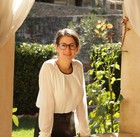
Area Politica internazionale
Competenze: analisi dei mercati energetici, geopolitica dell’energia
Parole chiave: decarbonizzazione, dipendenza energetica europea, guerra dei gasdotti, interconnessioni elettriche, O&G nel Mediterraneo Orientale, scenari energetici e investimenti, sicurezza degli approvvigionamenti, transizione energetica e sostenibilità
Regione: Emilia-Romagna
Funzione/Ruolo
Analista de mercati energetici presso la società di ricerca e consulenza RIE (Ricerche Industriali ed Energetiche) di Bologna; associate research fellow sicurezza energetica presso ISPI (Istituto di Politica Internazionale)
Percorso professionale
Chiara Proietti Silvestri si forma presso la Facoltà di Scienze Politiche “R. Ruffilli” (Forlì Campus) dove consegue nel 2011 la laurea magistrale cum laude in Scienze Internazionali e Diplomatiche. Nello stesso anno, entra nel team di ricerca del RIE di Bologna dove tuttora lavora come analista di politica ed economia dell’energia. Nel 2015 inizia a collaborare con ISPI alla stesura dei rapporti sulla sicurezza energetica dell’Osservatorio di politica internazionale del Parlamento Italiano. La collaborazione con ISPI continua anche nel ramo della didattica e nel 2017 Chiara diventa Associate Research Fellow Sicurezza Energetica. Ama continuare a studiare ritenendo che l’apprendimento vada continuamente stimolato; per questo, nel corso degli anni ha seguito corsi di perfezionamento sul diritto dell’energia, corsi di economia industriale, econometria, analisi di certificazione energetica.
Risultati scientifici
Nell’ambito della sua attività lavorativa presso il RIE, Proietti Silvestri segue diverse linee di ricerca, tra cui lo sviluppo delle risorse di petrolio e gas a livello nazionale e lo sviluppo dei distretti energetici in Italia; tale filone ha portato alla redazione di diversi paper policy-oriented sul tema e alla realizzazione di un libro dal titolo “Coesistenza tra Idrocarburi e Agricoltura, Pesca e Turismo (APT) in Italia, per il quale è stata co-autrice di alcuni capitoli. Di recente, ha coordinato un progetto di ricerca su trasporti pesanti e mobilità sostenibile.
Attività editoriali e pubblicazioni
Fa parte del Comitato di Redazione della Rivista “Energia”, rivista trimestrale sui problemi dell’energia dal 1980. Ha, inoltre, pubblicato numerosi articoli in testate specializzate, alcuni dei quali sono riportati qui di seguito:
[2019] Proietti Silvestri C. I numeri dell’economia circolare in Italia, Gestore Mercati Energetici
[2018] Proietti Silvestri C. Anche litio e cobalto nelle statistiche dell’energia, Gestore Mercati Energetici
[2018] Proietti Silvestri C. La finanza verde a 10 anni dal primo Green bond, Gestore Mercati Energetici
[2018] Proietti Silvestri C. Turkish Stream, gli esiti del divide et impera russo, Formiche
[2016] Proietti Silvestri C. Gas, perno della cooperazione nel Mediterraneo orientale, Affari Internazionali
[2015] Gugliotta A., Proietti Silvestri C. Shale gas e prezzi oil: cosa cambia?Gestore Mercati Energetici
[2015] Proietti Silvestri C. Egitto a tutto gas: nuovi equilibri energetici nel Mediterraneo Orientale,Osservatorio di Politica Internazionale del Senato della Repubblica
[2015] Proietti Silvestri C. Esplorazione: nuovo dinamismo nel Mar Adriatico, Affari Internazionali
[2014] Clò F., Proietti Silvestri C. I distretti petroliferi in Emilia Romagna: realtà da indagare e valorizzare, Rivista “Energia”
[2013] Proietti Silvestri C. Cipro: tra sviluppo energetico e tensioni politiche, The Risky Shift
[2013] Proietti Silvestri C. Stati Uniti: le implicazioni internazionali di una politica energetica “non convenzionale, The Risky Shift
[2013] Proietti Silvestri C. L’onda siriana sul petrolio, Affari Internazionali
[2012] Proietti Silvestri C. Sicurezza Energetica: Egitto e Israele alla battaglia del gas, Affari Internazionali
[2011] Proietti Silvestri C. Non Proliferazione: Giro di vite sul commercio nucleare, Affari Internazionali
[2011] Proietti Silvestri C. Sicurezza nucleare: insegnamenti dopo Fukushima, Rivista Energia
[2009] Proietti Silvestri C. Russia: Il war game simulato contro la Polonia inquieta l'Alleanza Atlantica, Equilibri.

Area Economia e Finanza
Competenze: demografia, economia della famiglia, economia politica, valutazione di politiche pubbliche
Parole chiave: coronavirus, Covid-19: impatto della chiusura delle scuole e attività sui bambini, fecondità, genere, partecipazione femminile al mercato del lavoro, separazione dei genitori, servizi di cura per bambini, sviluppo cognitivo e non-cognitivo dei bambini, trasmissione intergenerazionale
Regione: Piemonte
Funzione/Ruolo
Professoressa associata di Demografia, Dipartimento di Economia & Statistica “Cognetti De Martiis”, Università degli Studi di Torino; Affiliate, Collegio Carlo Alberto
Percorso professionale
Dopo aver conseguito la laurea in Statistica nel 2001 e in Analisi e valutazione dei sistemi complessi nel 2004 presso l’Università degli Studi di Torino, prosegue la sua formazione con il dottorato in Economia presso l’ISER University of Essex (UK). Dal 2008 al 2011 è post Doc alla Bocconi presso il centro Dondena - Centre for Research on Social Dynamics and Public Policy. Dal 2011 è ricercatrice di Economia Politica al Dipartimento di Economia & Statistica dell’Università di Torino; dal 2016 è professoressa associata di Demografia presso lo stesso dipartimento.
Risultati scientifici
L’attività di ricerca di Chiara Pronzato si svolge nel campo dell’economia della famiglia, della demografia e della valutazione delle politiche pubbliche. Molti dei suoi lavori hanno come obiettivo studiare empiricamente l’effetto della disponibilità di servizi di cura per i bambini (asili nido, nonni, …) su diverse dimensioni: il lavoro delle madri, la fecondità delle coppie, lo sviluppo dei bambini. Un altro filone di ricerca prettamente demografico riguarda le nuove forme familiari: in particolare, l’effetto della separazione dei genitori sullo sviluppo e sui comportamenti dei bambini e dei giovani-adulti; la fecondità nelle famiglie ricostituite. Un terzo filone riguarda l’economia di genere, con particolare attenzione alle scelte formative delle donne rispetto agli uomini, e alle conseguenze dell’introduzione delle quote di genere nel contesto italiano. Al momento partecipa all’ideazione, organizzazione e analisi di un esperimento randomizzato di valutazione di un programma di trasferimenti monetari (condizionati alla partecipazione a corsi formativi) per famiglie con bambini piccoli in situazione di povertà. Negli ultimi anni, sta lavorando sulle determinanti e conseguenze dell’uso del tempo dei bambini, grazie a due finanziamenti ottenuti.
Attività editoriali e pubblicazioni
Chiara Pronzato è autrice di numerose pubblicazioni, tra cui:
(2017) Aassve A, Pronzato C. Parental breakup and children's development: the role of time and of post-separation conditions, Review of Economic of the Household
(2017) Heckman JJ, Biroli P, Del Boca D, Heckman LP, Koh YK, Kuperman S, Moktan S, Pronzato P, Ziff AL., Evaluation of the Reggio Approach to Early Education, Research in Economics
(2017) Del Boca D, Piazzalunga D, Pronzato C. The role of grandparenting in early childcare and child outcomes, Review of Economic of the Household
(2017) Billari F, Galasso Vm Profeta P, Pronzato P.Information and Women’s Intentions: Experimental Evidence About Child Care,European Journal of Population
(2016) Casarico A. Profeta P, Pronzato C. On the regional labor market determinants of female university enrolment in Europe, Regional Studies
(2016) Brilli Y, Del Boca D, Pronzato C. Does child care availability play a role in maternal employment and children's development? Evidence from Italy, Review of Economics of the Household
(2014) Arpino B. Pronzato C, Tavares B. The effect of grandparental support on mothers’labourmarket participation: an instrumental variable approach, European Journal of Population
(2012) Aassve A, Meroni E, Pronzato C. Grandparenting and Childbearing in the Extended Family, European Journal of Population
(2012) Mencarini L, Meroni E, Pronzato C.Leaving Mum Alone? The Effect of Parental Separation on Children Leaving Home Decisions, European Journal of Population (with L. Mencarini and E. Meroni), 2012
(2012) Pronzato C. An Examination of Paternal and Maternal Intergenerational Transmission of Schooling, Journal of Population Economics
(2008) Ermish J, Pronzato C.Intra-household Allocation of Resources: Inferences from Non-resident Fathers’ Child Support Payments, Economic Journal
Riconoscimenti e premi
Chiara Pronzato è anche fellow dell’IZA, del Dondena, e dell’ISER. Ha vinto un premio nel 2013 per “Matchami” (un’applicazione dell’algoritmo di Gale-Shapley) in un competizione promossa dall’ Incubatore d’Imprese (Università di Torino) e il Best Paper Award nel 2011 per l’articolo An Examination of Paternal and Maternal Intergenerational Transmission of Schooling dall’Unicredit Women’s International Network.

Area Economia e Finanza
Competenze: corporate governance, innovazione, sostenibilità
Parole chiave: criteri ESG (ambientali, sociali, di governance), fusioni e acquisizioni, imprenditorialità, intelligenza artificiale, nuovi modelli di business, open innovation, organizzazione del lavoro, private equity, relazioni istituzionali, startup, trasformazione digitale, venture capital
Regione: Lombardia
Funzione/Ruolo
Vicesegretaria Generale di CEC European Managers, associazione che rappresenta un milione di manager presso le istituzioni Europee.
Managing Partner di Eden Venture, veicolo di investimento in startup innovative.
Percorso professionale
Dopo la laurea con lode in Economia e Commercio alla LUISS e l’Erasmus alla ESCP di Parigi, consegue l'abilitazione come Commercialista e Revisora Contabile. Inizia la sua carriera nella consulenza strategica in Booz Allen & Hamilton, seguendo progetti internazionali per clienti come McDonald’s, TNT, Volvo, Telecom Italia, Unilever.
Successivamente, ricopre ruoli apicali in marketing e vendite in aziende fortemente innovative, partecipando alla fase di lancio in Italia di Vodafone, come marketing manager della divisione business, e di Fastweb, dove avvia e gestisce la divisione retail. Ricopre poi il ruolo di Direttrice Marketing nel travel in Valtur.
Lancia e gestisce come CEO la sua startup nell’ambito degli eventi multimediali, con attività in Europa e Cina.
Sviluppa competenze specifiche sulla sostenibilità, con particolare attenzione agli aspetti Social e di Governance e per vari anni gestisce la CSR di Manageritalia.
Sposta il suo focus sul mondo dell'innovazione e degli investimenti, diventando Managing Partner e Presidente di Eden Venture, un veicolo di investimento in startup. È inoltre membro del comitato screening di IAG (Italian Angels for Growth).
Ha varie esperienze di board ed attualmente ricopre la carica di Vicesegretaria Generale di CEC European Managers a Bruxelles (associazione che rappresenta un milione di manager presso le istituzioni Europee), con delega all'innovazione, rappresenta i manager italiani presso l'Organizzazione Internazionale del Lavoro (ILO) delle Nazioni Unite a Ginevra; è nel Comitato Sostenibilità della SGR Alternative Capital Partners.
Risultati scientifici
All’attività professionale di manager d’azienda e di venture capital, ha affiancato un’intensa attività nel mondo della rappresentanza, a livello nazionale, europeo a Bruxelles e mondiale presso le Nazioni Unite.
Il suo contributo principale (anche con progetti europei) riguarda l’evoluzione del mondo del lavoro, gli impatti dell’innovazione tecnologica e di nuovi modelli di business e l’evoluzione delle organizzazioni e della leadership.
Attività editoriali e pubblicazioni
Manageritalia https://www.manageritalia.it/author/silvia-pugi/
Economyup https://www.economyup.it/giornalista/silvia-pugi/
Riconoscimenti e premi
Nel 2012 è stata inclusa tra i 1.000 curricula eccellenti della Fondazione Bellisario
Finalista al premio nazionale "Business Angel dell'Anno" nel 2023
Inclusa nella lista Unstoppable Women dal 2023

Funzione/Ruolo
Professoressa ordinaria di Economia Politica all'Università di Pavia
Percorso professionale
Dopo aver conseguito la laurea in Economia Politica presso l'Università Bocconi, prosegue la sua formazione con il Master in Development Economics all’University of Oxford e con il PhD all’Institute of Development Studies all’University of Sussex. Dal 1994 è ricercatrice presso l’Università di Padova. Nel 1998 si trasferisce all’Università del Piemonte Orientale dove nel 2000 diventa Professoressa Associata. Nel 2011 si trasferisce come Professoressa Ordinaria all’Università di Pavia. Dal 2017 è anche Assigned Professor presso l’University of Aalborg in Danimarca. È stata visiting professor presso numerosi atenei tra cui University of Duke, Northeastern University, Manchester University, Tsinghua University, Universidad Autonoma de Mexico, Universidad Autonoma Metropolitana de Mexico. Svolge regolarmente attività di consulenza per organizzazioni internazionali quali l’Organizzazione per la Cooperazione e lo Sviluppo Economico, la Commissione Europea, l’Organizzazione Internazionale del Lavoro, il Fondo Monetario Internazionale, La Banca Interamericana di Sviluppo , l’International Trade Center, L’Organizzazione delle Nazioni Unite per lo Sviluppo Indistriale, la Conferenza delle Nazioni Unite sul Commercio e lo Sviluppo, la Commissione Economica delle Nazioni Unite per l’America Latina, e la United Nations University – Maastricht Economic and Social Research on Innovation and Technology.
Risultati scientifici
L’attività di ricerca di Roberta Rabellotti si svolge nel campo dell’economia dello sviluppo e dell’innovazione. Dopo una prima fase di ricerca dedicata al ruolo dei cluster nei processi di industrializzazione nei paesi in via di sviluppo, Rabellotti si è dedicata a studiare come le imprese nei paesi in via di sviluppo acquisiscono conoscenza e capacità innovativa attraverso la loro partecipazione nelle catene globali del valore. Più recentemente, l’attività di ricerca si è focalizzata sulle multinazionali dei paesi emergenti, soprattutto cinesi e indiane, con l’obiettivo di studiare come attraverso questi investimenti, Cina e India sono in grado di ridurre il loro gap tecnologico.
Attività editoriali e pubblicazioni
Roberta Rabellotti è autrice di numerose pubblicazioni, tra cui:
(2017) Morrison A, Rabellotti R, Gradual Catch Up and Enduring Leadership in the Global Wine Industry. Research Policy, 46(2): 417-30.
(2016) Giuliani E, Martinelli A, Rabellotti R. Is Co-Invention Expediting Technological Catch Up? A Study of Collaboration between Emerging Country Firms and EU inventors. World Development, 77, 16:192-205.
(2014) Giuliani E, Gorgoni S, Guenter C, Rabellotti R. Emerging-market MNEs investing in Europe. A typology of subsidiary global–local connections. International Business Review, 23: 680-691.
(2014) Crescenzi R, Pietrobelli C, Rabellotti R. Innovation Drivers, Value Chains and the Geography of Multinational Corporations in Europe. Journal of Economic Geography, 14:1053-1086.
(2011) Pietrobelli C, Rabellotti R. Global Value Chains Meet Innovation Systems: Are There Learning Opportunities for Developing Countries? World Development 9(7):1261-1269.
(2011) Giuliani E, Morrison A, Rabellotti R. Innovation and Technological Catch Up: The changing geography of wine production. Chelthenam: Edward Elgar.
(2010) Cusmano L, Morrison A, Rabellotti R. Catching-up Trajectories in the Wine Sector: A Comparative Study of Chile, Italy and South Africa. World Development 38 (11):1588-1602.
(2010) Giuliani E, Morrison A, Pietrobelli C, Rabellotti R. Why do researchers collaborate with industry? An analysis of the wine sector in Chile, Italy and South Africa. Research Policy, 39(6): 748-761.
(2207) Pietrobelli C, Rabellotti R (ed.). Upgrading to Compete: SMEs, Clusters and Value Chains in Latin America, Cambridge Mass.: Harvard University Press.
(2005) Rabellotti R. Upgrading in global value chains: lessons from Latin America clusters. World Development, 33 (4): 549-73.
(1999) Rabellotti R. Recovery of a Mexican Cluster: Devaluation Bonanza or Collective Efficiency? World Development, 27 (9):1571-1585.
(1999) Rabellotti R, Schmitz H. The internal heterogeneity in industrial districts in Italy, Brazil and Mexico. Regional Studies, 33 (2):97-108.
(1997) Rabellotti R. External economies and cooperation in industrial districts: a comparison of Italy and Mexico, McMillan and St.Martin's Press: London. (Translated in Persian).
(1998) Rabellotti R. Collective effects in Italian and Mexican footwear industrial clusters. Small Business Economics, 10 (3).
(1995) Rabellotti R. Is there an industrial district "model"? Footwear districts in Italy and Mexico.World Development, 23 (1): 29-41.

Funzione/Ruolo
Partner associata della McKinsey & Company
Percorso professionale
Dopo la laurea in Ingegneria fisica, prosegue gli studi con un dottorato di ricerca in Fisica presso il Politecnico di Milano, durante il quale passa un anno presso l'Istituto di Scienza dei Materiali (ICMAB-CSIC) dell'Università Autonoma di Barcellona. In seguito si trasferisce in Francia per un post-dottorato. Nel 2014, tornata in Italia, mette a disposizione dell'Istituto Italiano di Tecnologia (IIT) di Genova le capacità e l'esperienza maturate all'estero. Nel 2016 è cou-founder e amministratrice unica della BeDimensional, start-up nata dai laboratori dell'IIT. Nel marzo del 2017 diventa Socia della McKinsey & Company.
Risultati scientifici
Durante il dottorato si occupa di elettronica degli ossidi ed in particolare si focalizza sullo studio dei fenomeni che caratterizzano l'interfaccia tra materiali ferromagnetici e ferroelettrici. L'obiettivo di questi studi è lo sviluppo di nuovi dispositivi di memoria controllati elettricamente basati su giunzioni ad effetto tunnel. All'Istituto Italiano di Tecnologia si dedica inizialmente allo sviluppo di materiali intelligenti per applicazioni industriali. Successivamente, si dedica al progetto di trasferimento tecnologico dei nuovi materiali bidimensionali, in particolare il grafene, nato in IIT divenendo amministratore unico della startup BeDimensional. All'interno dell'Istituto Italiano di Tecnologia, nei Graphene Labs, si studiano i cristalli bidimensionali, la nuova famiglia di materiali "smart" nata a partire dal 2004 con l'isolamento del primo e più noto di questi materiali - il grafene - e che possiedono caratteristiche uniche dal punto di vista meccanico, elettrico, termico e ottico. Il grafene, definito materiale delle meraviglie, è dotato di una resistenza meccanica circa 200 volte superiore all'acciaio e di una straordinaria conducibilità termica. È biocompatibile, biodegradabile, capace di sostenere una densità di corrente elettrica superiore al rame ed è una barriera pressoché impermeabile alla stragrande maggioranza degli elementi chimici, pur mantenendo le caratteristiche di flessibilità e leggerezza. Nei Graphene Labs di IIT è stato sviluppato un processo per la produzione di questi materiali scalabile a livello industriale. I cristalli bidimensionali (tra cui il grafene) possono inoltre essere opportunamente miscelati in matrici plastiche, in fibre di carbonio/vetro o in metalli creando compositi con performance elevate. Queste opportunità aprono un nuovo scenario industriale inimmaginabile fino a qualche anno fa. L'idea è quindi quella di rivoluzionare e agevolare l'industria manifatturiera nazionale e internazionale.
Attività editoriali e pubblicazioni
È autrice di numerose pubblicazioni su riviste scientifiche nazionali ed internazionali, tra cui:
(2016) Pesquera D, Barla A, Wojcik M, Jedryka E, Bondino F, Mangano E, Nappini S, Gutiérrez D, Radaelli G, et al. Strain-Driven Orbital and Magnetic Orders and Phase Separation in Epitaxial Half-Doped Manganite Films for Tunneling Devices.Physical Review Applied 6(3):034004.
(2016) Radaelli G, Heredia-Guerrero JA, et al. Highly Effective Antiadhesive Coatings from pH-Modified Water-Dispersed Perfluorinated Acrylic Copolymers: The Case of Vulcanizing Rubber.Advanced Materials Interfaces 3(13).
(2015) Asa M, Baldrati L, Rinaldi C, Bertoli S, Radaelli G, et al. Electric field control of magnetic properties and electron transport in BaTiO 3 -based multiferroic heterostructures.Journal of Physics Condensed Matter 27(50):504004.
(2015) Bertacco R, Radaelli G, et al. Switching magnetic order at an Fe/BaTiO3 interface on and off: Impact on hybrid magnetic-ferroelectric tunnel junctions.
(2015) Liu F, Fina I, Gutiérrez D, Radaelli G, et al. Selecting Steady and Transient Photocurrent Response in BaTiO3 Films.
(2015) Radaelli G, Gutiérrez D, et al. Large Room-Temperature Electroresistance in Dual-Modulated Ferroelectric Tunnel Barriers.Advanced Materials 27(16).
(2014) Radaelli G, Petti D, Cantoni M, et al, Absence of strain-mediated magnetoelectric coupling at fully epitaxial Fe/BaTiO3 interface (invited). Journal of Applied Physics 115(17).
(2014) Radaelli G, Cantoni M, et al. Two dimensional growth of ultrathin Fe films on BaTiO.Journal of Applied Physics 115(6):063501.
(2014) Gutiérrez D, Radaelli G, et al. Bandwidth-limited control of orbital and magnetic orders in half-doped manganites by epitaxial strain.Physical Review B 89:075107
(2014) Radaelli G, Petti D, et al. Electric Control of Magnetism at the Fe/BaTiO3 Interface.Nature Communications 5:3404.

Funzione/Ruolo
Professoressa ordinaria di Analisi Matematica presso la Università degli Studi di Catania
Percorso professionale
Dopo la laurea in Matematica all’Università degli Studi di Catania nel 1988, diventa, nel 1989, Cultrice della Materia di Analisi Matematica presso la Facoltà di Ingegneria dell'Università di Catania. Nel 1990 supera l'esame di ammissione al Dottorato Ricerca in Matematica presso l'Università di Catania. Nel 1992 diventa ricercatrice e nel 2000 Professoressa Associata all'Università di Catania. Nel 2012 le viene conferito il PhD in Mathematics dalla Luleå University (Svezia). Nel 2013 ottiene la abilitazione scientifica nazionale a Professoressa Ordinaria di Analisi Matematica e dal 2017 è Professoressa Ordinaria di Analisi Matematica presso la Università di Catania. E’ Chief researcher del Center of Nonlinear Problems of Mathematical Physics, RUDN University, Mosca (Russia). Fa parte del Collegio dei docenti del Dottorato di Ricerca in Matematica della Università di Catania, e di commissioni internazionali di esame di Dottorato di Ricerca. Ha tenuto corsi di insegnamento per il Dottorato di Ricerca in Italia, Francia, Turchia e Svezia.
E’ responsabile di progetti di ricerca del "Gruppo Nazionale per la Analisi Matematica, la Probabilità e le loro Applicazioni (GNAMPA) - Istituto Nazionale di Alta Matematica", di accordi ERASMUS tra la Università di Catania ed Università straniere in Svezia, Norvegia, Turchia e Francia.
E’ Vice Preside della Facoltà di Scienze Matematiche, Fisiche e Naturali della Università di Catania dal 2009 al 2012, viene eletta, nel 2012, Presidente del Corso di Laurea Magistrale in Scienze per la Tutela dell'Ambiente della Università di Catania, e nel 2013 Direttrice del “Centro Universitario per la Tutela e la Gestione degli Ambienti Naturali e degli Agro-Ecosistemi” (C.U.T.G.A.N.A.).
E’ delegata del Rettore della Università di Catania alla Internazionalizzazione in ambito scientifico.
Referente per Catania della Unione Matematica Italiana, membro della Accademia Gioenia, membro proponente del "Centro di Matematica per la Tecnologia Angelo Marcello Anile" della Università di Catania, membro proponente del "Centro interdipartimentale di ricerca per il community engagement” (CUrE) della Università di Catania. E’ inserita nell’Albo degli esperti valutatori della Agenzia Nazionale della Valutazione della Università e della Ricerca (A.N.V.U.R.).
Risultati scientifici
È attualmente responsabile di un gruppo di ricerca che si interessa dello studio di equazioni alle derivate parziali, lineari e quasi-lineari, e di cambiamenti climatici e loro impatto. Con il suo team ha definito un indice che permette di calcolare con facilità l'effetto territoriale della sensibilità alla desertificazione al fine di superare il limite di protocollo internazionale “MEditerranean Desertification And Land Use European” (MEDALUS), che non prevede una stima della sensibilità alla desertificazione di una zona territoriale (comunale, provinciale, regionale, zona idrografica) attraverso un valore unico. Tale indice ha vantaggi significativi, perché produce efficaci classifiche, con la conseguente possibilità di elaborare i dati comparativi in relazione a diversi periodi di tempo.
Nell’ambito di tale ricerca di matematica applicata alla tutela all’ambiente si studiano, inoltre, gli effetti dell'impatto, sul clima e sull' ambiente, del trasporto di polvere sahariana sul particolato (PM10).
I risultati di tali ricerche sono stati esposti in convegni internazionali in tutti e 5 i continenti, di cui circa 20 da lei organizzati in Europa e USA, facendo parte di comitati scientifici in cui talvolta è stata l'unico membro italiano. Ha tenuto seminari in numerose Università italiane ed estere, essendo, solo a titolo di esempio: ospite di gruppi di ricerca, ospite su invito in occasione di semestri intensivi dell’Istituto Nazionale di Alta Matematica (I.N.D.A.M.), ospite del “Centro di Ricerca Matematica E. De Giorgi” della "Scuola Normale Superiore" di Pisa, del "Newton Institute" di Cambridge, del Department of Mathematics della “Research Melbourne Institute of Technology” di Melbourne, della “Tokyo University of Science” di Tokyo, del “Florida Institute of Technology” di Miami, del Department of Mathematics, della“Harvard University” di Boston, del "Mittag-Leffler" Institute della Accademia reale svedese delle Scienze di Stoccolma.
Attività editoriali e pubblicazioni
È Editor in Chief unico della rivista internazionale "Journal of Mathematics Research", pubblicata dal Canadian Center of Science and Education, Editor del volume "Journal of Inequalities and Applications", ed. Springer. 2015, membro di Editorial Board di numerose riviste internazionali pubblicate su Scopus e Web of Science con impact factor.
È autrice di oltre 90 pubblicazioni scientifiche, a nome singolo e in collaborazione con circa 30 coautori, di cui un terzo italiani e gli altri europei ed extraeuropei. Ad un solo nome sono pubblicate note scientifiche su riviste che figurano tra le prime 10 del Journal Citation Reports e pubblicazioni che, in entrambi i database Scopus e Web of Science, hanno più di 150 citazioni.
Solo a titolo di esempio, alcune tra le sue pubblicazioni scientifiche:
(2021) Hamdy M. Ahmed, Reda A. Elbarkouky, Othman A. M. Omar, and Maria Alessandra Ragusa. Models for COVID-19 Daily Confirmed Cases in Different Countries. Mathematics, 9:659.
(2018) Guliyev V, Omarova M, Ragusa MA, Scapellato A. Commutators and Generalized Local Morrey Spaces. Journal of Mathematical Analysis and Applications, 457 (2): 1388-1402.
(2017) Cuspilici A, Monforte P, Ragusa MA. Study of Saharan dust influence on PM10 measures in Sicily from 2013 to 2015. Ecological Indicatiors, 76: 297-303.
(2017) Deringoz F, Guliyev V, Ragusa MA. Intrinsic Square Functions on Vanishing Generalized Orlicz-Morrey Spaces. Set-Valued and Variational Analysis, 25: 807–828.
(2017) Ragusa MA, Scapellato A. Mixed Morrey spaces and their applications to partial differential equations. Nonlinear Analysis-Theory Methods & Applications, 151: 51-65.
(2017) Duro A, Piccione V, Ragusa MA, Rapicavoli V, Veneziano V. Enviromentally Sensitive Patch Index of desertification risk applied to the main habitats of Sicily. Book Series: American Institute of Physics, 1863, Article Number: UNSP 510005.
(2014) Benboenou S, Ragusa MA, Terberche M. Remarks on Leray's self-similar solutions to the 3D magnetohydrodynamic equations. Mathematical Methods in the Applied Sciences, 37 (17): 2615-2618.
(2013) Ragusa MA, Tachikawa A, Takabayashi H. Partial regularity of p(x)-harmonic maps. Transactions of the American Mathematical Society, 365 (6):3329-3353.
(2012) Persson LE, Ragusa MA, Samko N, Wall P. Commutators of Hardy operators in vanishing Morrey spaces. Book Series: American Institute of Physics, 1863:859-866.
(2008) ) Polidoro S, Ragusa MA. Harnack inequality for hypoelliptic ultraparabolic equations with a singular lower order term. Revista Matematica Iberoamericana Vol. 24, 1011-1046.
(2002) Ragusa MA. Local holder regularity for solutions of elliptic system. Duke Mathematical Journal, 113 (2):385-397.
(2000) D. Palagachev, M.A. Ragusa, L. Softova. Regular Oblique derivatives problem in Morrey Spaces. El. Journal of Differential Equations (39).

Funzione/Ruolo
Professoressa ordinaria di Bioingegneria al Politecnico di Milano
Percorso professionale
Dopo la laurea in Ingegneria Meccanica con indirizzo in Bioingegneria, presso il Politecnico di Milano, nel 2000 consegue il dottorato di ricerca in Bioingegneria presso lo stesso Ateneo, dove prosegue la sua carriera fino a oggi. Nel 2003 fonda l'unità di ricerca in Bioingegneria dislocata presso l'IRCCS Istituto Ortopedico Galeazzi di Milano e la dirige fino al 2008. Nel 2010 fonda il laboratorio di Meccanobiologia del Dipartimento di Chimica, materiali e ingegneria chimica "Giulio Natta", dove dal 2018 è professoressa ordinaria di Bioingegneria. Dal 2013 al 2015 è vice-coordinatrice del programma interdipartimentale di dottorato in Bioingegneria. Nel 2014 fonda e dirige il LuCld lab, laboratorio per l'imaging su cellule viventi. Dal 2015 è la referente del Politecnico di Milano per l'accordo quadro con l'istituto di ricerca farmacologica dell'I.R.C.C.S. Istituto di Ricerche Farmacologiche Mario Negri di Milano.
Risultati scientifici
La sua attività scientifica si concentra sulla bioingegneria, sulla comprensione e il conseguente controllo di meccanismi biologici mediante dispositivi ingegneristici per la coltura di cellule al di fuori dell'organismo umano. Un importante risultato è stato quello di riuscire a orientare la produzione di organoidi (versioni semplificate e miniaturizzate di un organo prodotto in vitro), per esempio tessuto cerebrale o metastasi tumorali ossee, utilizzando dispositivi miniaturizzati detti "bioreattori millifluidici". Manuela Raimondi ha progettato tali sistemi per produrre e mantenere in coltura tessuto vivente da impiegare per la sperimentazione di nuovi farmaci, per esempio chemioterapici e anti-infiammatori, in modo molto più realistico della coltura cellulare convenzionale, riducendo l'impiego di animali da esperimento. Nei suoi studi si è focalizzata sulle cellule "mesenchimali", ovvero cellule staminali del tessuto osseo e cartilagineo, che forniscono la naturale capacità rigenerativa e riparativa ai tessuti del corpo umano. Un importante risultato è stato quello di riuscire a imitare gli stessi legami che mantengono aggregate le cellule nelle nicchie naturali in cui esse abitualmente risiedono nel corpo umano, progettando strutture artificiali di dimensione nanometrica, dette "nicchie ingegnerizzate", alle quali far aderire le cellule in coltura. Questa tecnica di coltura non convenzionale consente di mantenere le proprietà delle cellule staminali in coltura prolungata, senza necessità di somministrare molecole tossiche, accelerando così il trasferimento di queste cellule verso un loro uso clinico come farmaci naturali, in sostituzione dei farmaci anti-infiammatori convenzionali. Lo stesso metodo viene utilizzato per le rigenerazione di organi in vitro.
Attività editoriali e pubblicazioni
È autrice di circa 200 pubblicazioni scientifiche, tra cui:
[2018] Marturano-Kruik A, A.Villasante, K.Yaeger, S. Ambati, A. Chramiec, M.T. Raimondi, G. Vunjak-Novakovic. Biomechanical regulation of drug sensitivity in an engineered model of human tumor. Biomaterials. 2018 Jan;150:150-161. doi: 10.1016/j.biomaterials.2017.10.020
[2018] Marturano-Kruik A, Nava MM, Yaeger K, Chramiec A, Hao L, Robinson ST, Guo XE, Raimondi MT, Vunjak-Novakovic G. Human bone perivascular niche-on-a-chip for studyingmetastatic colonization. Proc Natl Acad Sci U S A. 2018 Feb 6;115(6):1256-1261. doi:10.1073/pnas.1714282115.
[2018] Garcia A, Jacchetti E, Marotta R, Tunesi M, Rodriguez Matas JF, Raimondi MT. The Effect of Cell Morphology on the Permeability of the Nuclear Envelope to Diffusive Factors. Frontiers in Physiology. Published online July 13, 2018. https://doi.org/10.3389/fphys.2018.00925
[2017] Ricci D, Nava MM, Zandrini T, Cerullo G, Raimondi MT, Osellame R. Scaling-Up Techniques for the Nanofabrication of Cell Culture Substrates via Two-Photo Polymerization for Industrial-Scale Expansion of Stem Cells. Materials, 10(1):66. doi: 10.3390/ma10010066
[2016] Tunesi M, Fusco F, Fiordaliso F, Corbelli A, Biella G, Raimondi MT. Optimization of a 3D dynamic culturing system for in vitro modeling of Frontotemporal Neurodegeneration-relevant pathologic features. Frontiers in aging neuroscience. Frontiers in Aging Neuroscience, 8:146. doi: 10.3389/fnagi.2016.00146
[2016] Garcia B, Rodriguez Matas JF, Raimondi MT. Modeling of the mechano-chemical behavior of the nuclear pore complex: current research and perspectives. Integrative Biology, 8(10): 1011-1021 doi: 10.1039/c6ib00153j
[2016] Nava MM, Di Maggio N, Zandrini T, Cerullo G, Osellame R, Martin I, Raimondi MT. Synthetic niche substrates engineered via two-photon laser polymerization for the expansion of human mesenchymal stromal cells. Journal of Tissue Engineering and Regenerative Medicine, doi: 10.1002/term.2187
[2016] Nava MM, Piuma A, Figliuzzi M, Cattaneo I, Bonandrini B, Zandrini T, Cerullo G, Osellame R, Remuzzi A, Raimondi MT. Two-photon polymerized "nichoid" substrates maintain function of pluripotent stem cells when expanded under feeder-free conditions. Stem Cell Research and Therapy, 7:132. doi: 10.1186/s13287-016-0387-z
[2014] Raimondi MT, Nava MM, Eaton SM, Bernasconi S, Vishnubhatla KC, Cerullo G, Osellame R. Optimization of femtosecond laser polymerized structural niches to control mesenchymal stromal cell fate in culture. Micromachines, 5, 341-358; DOI: 10.3390/mi5020341
[2013] Raimondi MT, Eaton SM, Laganà M, Aprile V, Nava MM, Cerullo G, Osellame R. Three-dimensional structural niches engineered via two-photon laser polymerization promote stem cell homing. Acta Biomaterialia, 9(1):4579-84. DOI: 10.1016/j.actbio.2012.08.022
[2012] Laganà M, Raimondi MT. A miniaturized, optically accessible bioreactor for systematic 3D tissue engineering research. Biomedical Microdevices. 14(1):225-234, ISSN 1387-2176, DOI:10.1007/s10544-011-9600-0
Riconoscimenti e premi
Manuela Raimondi ha ricevuto numerosi premi e riconoscimenti, fra cui tre grants ERC:
2000-2001: Young Investigator Award del Politecnico di Milano.
2005-2006 e 2006-2007: Research Award della Fondazione Cariplo.
2006 e 2007: Rocca Award del MIT-Italy program.
2010-2011: Research Award del Ministero dell'Economia e dello Sviluppo Economico.
2011-2012: Young Researcher Award del Politecnico di Milano.
2015-2020: ERC-CoG-2014 Grant award in stem cell mechanobiology, dell'European Research Council, project NICHOID.
2017-2018: ERC-PoC-2016 Grant award in stem cell bioengineering, assegnato dall'European research Council, Brussels, Belgium - project NICHOIDS.
2019-2020 ERC-PoC-2018 Grant award in microfluidic bioengineering, dell’European Research Council, project MOAB.

Area STEM: Chimica
Competenze: chimica verde, utilizzo materie prime rinnovabili per produzione nuovi combustibili, bioprodotti e biomateriali, valorizzazione scarti agro-industriali
Parole chiave: antiossidanti, bioeconomia, biolubrificanti, biomateriali, biotensioattivi, economia circolare, oli vegetali
Regione: Lombardia
Funzione/Ruolo
Dirigente di ricerca CNR (Consiglio Nazionale delle Ricerche).
Percorso professionale
Dopo la laurea in Chimica presso l’Università di Milano svolge attività di ricerca presso l’Università di Bari dove consegue il Dottorato di Ricerca nel 1988 ed avvia la sua carriera come ricercatrice CNR. Nel 1996 si trasferisce a Milano, dove nel 2020 diventa Dirigente di ricerca presso l'Istituto di Scienze e Tecnologie Chimiche 'Giulio Natta' (SCITEC).
Risultati scientifici
Gran parte della sua attività scientifica è stata dedicata all’utilizzo della catalisi eterogenea in processi di sintesi organica (idrogenazione catalitica selettiva nella sintesi di fine chemicals e di specialità, deidrogenazione catalitica selettiva, epossidazione catalitica eterogenea) e trasformazioni catalitiche selettive di materie prime da fonte rinnovabile (oli vegetali, terpeni, zuccheri, cellulosa, valorizzazione scarti agro-industria, economia circolare).
E’ stata responsabile di diversi contratti di ricerca con industrie italiane e straniere. Ha coordinato progetti di interesse per lo svilupo dell’economia circolare quali VeLiCA, da antiche colture materiali e prodotti per il futuro (Regione Lombardia, 2011-2013); RiceRes From waste to resource: an integrated valorization of the rice productive chain residues (Fondazione Cariplo, 2015-2017); Circo: Multi valorization of silverskin, a residue of the coffee roasting industry (Fondazione Cariplo e InnovHub, 2018-2021).
Attività editoriali e pubblicazioni
[2021] Cavuoto D, Ravasio N, Scotti N, Gervasini A, Campisi S, Marelli M, Cappelletti G, Zaccheria F. A green solvent diverts the hydrogenation of γ–valerolactone to 1,4 pentandiol over Cu/SiO2. Molecular Catalysis, 516: 111936
[2021] Overturf E, Pezzutto S, Boschiero M, Ravasio N, Monegato A. The CirCo (Circular Coffee) Project: A Case Study on Valorization of Coffee Silverskin in the Context of Circular Economy in Italy. Sustainability, 13: 9069
[2021] Bellini M, Zaccheria F, Bianchi S, Ravasio N. Vegetable oils as Triple Bottom Line compliant lubricants. Tribology International, 161: 107103
[2021] Nasti R, Galeazzi A, Marzorati S, Zaccheria F, Ravasio N, Bozzano G.L., Manenti F, Verotta L. Valorisation of Coffee Roasting By‑Products: Recovery of Silverskin Fat By Supercritical CO2 Extraction. Waste and Biomass Valorization, https://doi.org/10.1007/s12649-021-01435-9
[2020] Cavuoto D, Zaccheria F, Ravasio N. Some Critical Insights into the Synthesis and Applications of Hydrophobic Solid Catalysts. Catalysts 10: 1337
[2020] Zaccheria F, Bossola F, Scotti N, Evangelisti C, Dalsanto V, Ravasio N. On demand production of ethers or alcohols from furfural and HMF by selecting the composition of a Zr/Si catalyst. Catalysis Science and Technology, 10: 7502–7511
[2020] Pappalardo V.M, Cavuoto D, Sangiorgio S, Speranza G, Cappelletti G, Ravasio N, Zaccheria F. Clays as Effective Solid Acid Catalysts for the Preparation of Sugar Esters with Surfactant Properties. ChemistrySelect 5: 8009–8014
[2020] Overturf E, Ravasio N, Zaccheria F, Tonin C, Patrucco A, Bertini F, Canetti M, Avramidou K, Speranza G, Bavaro T, Ubiali D. Towards a more sustainable circular bioeconomy. Innovative approaches to rice residue valorization: The RiceRes case study. Bioresource Technology Reports, 11: 100427
[2020] Cavuoto D, Zaccheria F, Marelli M, Evangelisti C, Piccolo O, Ravasio N. The Role of Support Hydrophobicity in the Selective Hydrogenation of Enones and Unsaturated Sulfones over Cu/SiO2 Catalysts. Catalysts 10: 515
[2020] Scotti N, Bossola F, Zaccheria F, Ravasio N. Copper-zirconia catalysts: Powerful multifunctional catalytic tools to approach sustainable processes. Catalysts 10: 168
[2020] Scotti N, Ravasio N, Zaccheria F, Irimescu A, Merola S.S. Green pathway to a new fuel extender: continuous flow catalytic synthesis of butanol/butyl butyrate mixtures. RSC Advances, 10: 3130 – 3136
[2017] Zaccheria F, Mariani M, Scotti N, Psaro R, Ravasio N. Catalytic upgrading of lactose: a rest raw material of the dairy industry. Green Chemistry 19: 1904 - 1910
Riconoscimenti e premi
Nel 2021 è insignita della Medaglia Piero Pino “Per contributi di rilievo scientifico, innovativo e applicativo, nel settore della catalisi eterogenea con particolare attenzione alla sostituzione dei metalli nobili, nella sintesi in chimica fine e alle trasformazioni selettive di materie prime rinnovabili” dalla Divisione di Chimica industriale della Società Chimica Italiana.

Funzione/Ruolo
Professoressa ordinaria di Economia alla London Business School, Direttrice non esecutiva di Unicredit Banking Group, Ageas Insurance Group (member of the Risk committee), Eurobank Ergasias SA (chair Nomination committee, chair Remuneration committee), Messaggerie Italiane Group, Chairman e co-founder Now-Casting Economics limited, Trustee della Fondazione dell’International Financial Reporting Standards
Percorso professionale
Dopo aver conseguito la laurea in Economia e Commercio presso l'Università di Modena nel 1980, prosegue la sua formazione con il dottorato in Economia presso la New York Iniversity (USA). Ricopre vari ruoli accademici. In sequenza: Istituto Universitario Europeo, Firenze, Observatoire des Conjonctures Economiques dell Institut d’Etudes Politiques di Parigi, Columbia University Graduate School of Business, New York. Dal 1994 al 2004 è professore ordinario di economia all’Université Libre de Bruxelles. Nel 2005 è nominata direttore generale alla ricerca alla Banca Centrale Europea (BCE) dove dirige le divisioni di politica monetaria, mercati finanziari e previsioni economiche. Dopo quattro anni alla BCE torna all’accademia come Professore ordinario di economia alla London Business School. Dal 2009 é membro del consiglio di amministrazione di Unicredit, dal 20013 del Consiglio di Ageas Insurance Group e dal 2016 di Eurobank Ergesias dove è anche chair dei comitati remuneration e nomination. Nel 2011 fonda la societá di previsioni No-Casting Economics a Londra e ne diviene Presidente. Dal 2018 è nominata Trustee della Fondazione dell’International Financial Reporting Standards.
Risultati scientifici
Reichlin è considerata la più influente economista donna europea essendo classificata da Repec/Ideas (il sito usato dalla professione per il ranking internazionale ) numero uno in Europea e numero tredici nel mondo per impatto della sua ricerca e pubblicazioni (dato 2017). I suoi contributi accademici principali sono nel campo della econometria, della politica monetaria e dell’analisi del ciclo economico. Su questi temi ha pubblicato in numerose riviste internazionali. È stata eletta “Fellow” delle più prestigiose istituzioni accademiche internazionali: Econometric Society, British Academy, Academia Europaea, European Economic Association, Center for European Economic Research. Ha ottenuto il premio Birgit Grodal dalla European Economic Association per l’eccellenza delle carriere economiche femminili in Europa ed altri premi (vedi CV).
La sua leadership nel campo della ricerca è anche dimostrata dai vari ruoli ricoperti in istituzioni di ricerca internazionali. Alcuni dei suoi numerosi ruoli presenti e passati: Trustee Center of European Economic Policy Research, Board Member, Italian Institute of Technology (IIT), Board Member, the International Center for Monetary and BankingStudies Ginevra, Chair, Scientific Council, Bruegel, Brussels (2013-2016), Scientific director (2011-2013) e Programme co-director, International Macroeconomics (1999-2004) del Centre of Economic Policy research, Fondatrice dell’Euro Area Business Cycle Network.
Reichlin è stata per cinque anni al vertice di una delle più importanti banche centrali del mondo (vedi sopra) e ha quasi dieci anni di esperienza come direttore non esecutivo in gruppi bancari e assicurativi internazionali. È autrice di influenti rapporti internazionali sui temi del debito, della riforma economica del governo della moneta unica europea e di varie pubblicazioni su politica monetaria e crisi finanziarie. È regolarmente chiamata a contribuire con discorsi ed interventi alle maggiori conferenze internazionali su questi argomenti: Federal Reserve incluso il consesso annuale di Jackson Hole, European Central Bank incluso il consesso annuale di Sintra ed in genere banche centrali del mondo sia sviluppato che emergente oltre che Fondo Monetario Internazionale e Organization of Economic and Development.
Nel 2011 Reichlin ha fondato a Londra la societá Now-Casting Economics ltd che è uno spin-off della sua ricerca su metodi di previsione basati sull’analisi in tempo reale di una grande quantità di dati. La metodologia, innovativa dal punto di vista della ricerca, fornisce un servizio basato sul web agli investitori finanziari e alimentato da una procedura completamente automatica. Reichlin è il Presidente della società.
Infine,Reichlin ha una lunga esperienza di consulenza di politica economica e di organizzazione della ricerca in istituzioni di politica economica. Per esempio, è stata membro della Commission Economique de la Nation, (advisory board dei ministeri delle finanze e dell’economia della Francia, 2014-2016), ha fatto parte del comitato di valutazione della ricerca Banque de France e delle banche centrali della Spagna e della Svezia. È stata membro del consiglio sulla crisi dell’euro dell’Institute for New Economic Thinking di New York e consulente del Federal Reserve Board a Washington. È “academic advisor” dell’Institute of Global Affairs, Global Policy Laby della London School of Economics.
Attività editoriali e pubblicazioni
Lucrezia Riechlin è editorialista per il Corriere della Sera e Project Syndicate. Scrive occasionalmente commenti per il Financial Times.
Ha al suo attivo numerose pubblicazioni, fra cui, in ambito accademico:
(2016) Giannoni D, Monti F, Reichlin L. Exploiting the Monthly Data Flow in Structural, Journal of Monetary Economics.
(2012) Giannone D, Doz C, Reichlin L. A maximum likelihood approach to dynamic factor analysis in large panels, Review of Economics and Statistics.
(2010) Lenza M, Oill H, Reichlin L. Monetary policy in exceptional times, Economic Policy, 62:295-339.
(2009) Forni M, Giannone D, Lippi M, Reichlin L. Opening the black box: the econometrics of structural factor models. Econometric Theory.
(2008) Giannone D, Reichlin L, Small D. Nowcasting GDP and inflation: the real time informational content of macroeconomic data releases. Journal of Monetary Economics.
(2008) De Mol C, Giannone D, Reichlin L. Forecasting with a large number of predictors: is Bayesian shrinkage a valid alternative to principal components? Journal of Econometrics.
(2005) Forni M, Hallin M, Lippi M, Reichlin L. The generalised dynamic factor model: one sided estimation and forecasting. Journal of the American Statistical Association,100, 471:830-840.
(2000) Forni M, Hallin M, Lippi M, Reichlin L. The generalised dynamic factor model: identification and estimation. The Review of Economics and Statistics, 82, 4: 540-554.
(1998) Forni M, Reichlin L. Let’s get real: a factor analytical approach to disaggregated business cycle dynamics. Review of Economic Studies,65, 3:453-73.
(1995) Lippi M, Reichlin L. Diffusion of technical change and the decomposition of output into trend and cycle. Review of Economic Studies,61, 1:19-30.
Riconoscimenti e premi
Nel 2015 è stata nominata dal Presidente della Repubblica “Grande Ufficiale” della “Stella d’Italia”, nel 2017 è stata nominata tra le 100 Eccellenze italiane e ha conseguito il premio “Premiolino” per i suoi editoriali per il Corriere della Sera nel 2013.

Funzione/Ruolo
Responsabile Programma Garanzia Italia e Green New Deal presso SACE
Percorso professionale
Dopo aver conseguito nel 1994 la laurea cum laude in Economia e Commercio presso l'Università LUISS di Roma, nel 1995 entra nell’area del Project finance del Mediocredito Centrale (Gruppo Unicredit) con la qualifica di Associate Director. Si occupa in posizioni senior di strutturazione/arranging e advisory di operazioni in project finance ed export finance sia nei mercati emergenti sia in Italia nei settori petrolchimico, Oil & Gas.
Dal settembre 2005 passa in SACE Spa come Senior Manager della divisione Structured Finance. Via via assume posizioni di sempre maggior responsabilità all’interno dell’azienda, passata dal controllo del Ministero dell’Economia e delle Finanze a quello di Cassa depositi e prestiti, quali: Head of Steel & Petrochemicals Department (2007-2009), Deputy Head of Export and Structured Finance Division (2009 – 2011), Head of the Operations Management Division (2011-2012), Head of Corporate and Investment Finance (2012-2014), Chief Business Officer (2014-2017), Chief Underwriting Officer (apr-ott 2017). In quest’ultima posizione di prima linea, ha avuto quali riporti diretti 6 responsabili di divisione (Competence Line/Underwriting, Admnistration, Claims, Recoveries, Marketing, Pianificazione Commerciale, Business Innovation). Si è occupata della definizione per tutte le società del Gruppo SACE delle linee guida di marketing, pianificazione commerciale e distributive; del presidio dello sviluppo del portafoglio prodotti e dei processi di assunzione e gestione delle linee di business di medio-lungo termine; nonché del presidio dello sviluppo del digital business.
Dall’ottobre 2017 all'aprile del 2020 è Amministratrice delegata della controllata SIMEST Spa, società che con SACE costituisce il Polo italiano dell’export e dell’internazionalizzazione, un “hub” che racchiude tutti gli strumenti per il supporto alle imprese italiane che vogliono competere e crescere a livello internazionale, tra cui la Partecipazione al capitale nei progetti di investimento UE ed extra-UE.
Attualmente è Responsabile del Programma Garanzia Italia e Green New Deal di SACE, e membro del Consiglio di Amministrazione di SACE FCT e - nel corso del suo percorso in SACE – ha ricoperto lo stesso ruolo anche in SACE BT.
Risultati scientifici
Alessandra Ricci è una top manager che opera nella finanza di impresa e degli investimenti in capitale di rischio collegati all’internazionalizzazione delle imprese. Esperta di project finance e finanza strutturata, ha contribuito alla strutturazione di importanti operazioni sia in ambito internazionale sia domestico, con aziende di vari settori - dall’energetico a quello delle infrastrutture, da quello delle commodities all’oil & gas - e in vari aree geografiche (EMEA, LATAM, Pacific). Nel corso della sua esperienza professionale si è, tra l’altro, occupata di sviluppare forme di finanziamento alternativo a quello bancario e ha contribuito alla costituzione di fondi di debito. All’attività nella finanza di impresa si sono affiancate attività progettuali importanti. Tra queste, in particolare, la focalizzazione sulla business innovation volta a migliorare i processi aziendali interni e la customer experience.
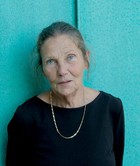
Funzione/Ruolo
Professoressa all'Università della Svizzera italiana. Filosofa. Saggista.
Percorso professionale
Francesca Rigotti si laurea in Filosofia a Milano nel 1974 e ottiene il PhD all'Istituto Universitario Europeo nel 1984. Dopo l'abilitazione all'insegnamento, nel 1991, diventa docente alla Facoltà di Scienze politiche dell’Università di Göttingen come titolare di un ‘Heisenberg Stipendium’ della Deutsche Forschungsgemeinschaft, visiting fellow al Department of Politics dell’Università di Princeton e docente all'Università di Zurigo. Dal 1996 insegna all'Università della Svizzera italiana. Svolge attività di conferenziera, scrive di critica libraria, collabora con la Rete 2 della Radio della Svizzera italiana e scrive o su varie riviste e giornali italiani ed esteri.
Le sue opere monografiche, cui aggiungere un centinaio di saggi su riviste e una quarantina di contributi in volumi collettanei, sono state tradotte in tredici lingue.
Risultati scientifici
La sua ricerca è caratterizzata dalla decifrazione e dall’interpretazione delle procedure metaforiche e simboliche sedimentate nel pensiero filosofico, nel ragionamento politico, nella pratica culturale e nell’esperienza della vita quotidiana.
Attività editoriali e pubblicazioni
(in corso di pubblicazione), F. Rigotti, L’era del singolo, Torino Einaudi
2020, F. Rigotti, Buio, Bologna, il Mulino.
2019, F. Rigotti, Migranti per caso: una vita da Expat, Milano, Cortina.
2018, F. Rigotti, de senectute, Torino, Einaudi.
2015, F. Rigotti, Manifesto del cibo liscio, Novara, Interlinea.
2013, F. Rigotti, Nuova filosofia delle piccole cose , Novara, Interlinea.
2010, F. Rigotti, Partorire con il corpo e con la mente. Creatività, filosofia, maternità, Torino, Bollati boringhieri.
2006, F. Rigotti, Il pensiero pendolare, il Mulino, Bologna.
2002, F. Rigotti, Il filo del pensiero, il Mulino, Bologna.
1999, F. Rigotti, 2004, 2012, La filosofia in cucina, il Mulino, Bologna.
1998, F. Rigotti, L’onore degli onesti, Feltrinelli, Milano.
1992, F. Rigotti, Il potere e le sue metafore, Feltrinelli, Milano.
Riconoscimenti e premi
2001, 24° Premio Letterario Città di Chiavari (per Filosofia in Cucina)
2002, 1° Premio di Filosofia "Viaggio a Siracusa" (per Il filo del pensiero)
2008, Premio Capalbio 2008, sezione Filosofia
2016 “Outstanding Woman Award”
2020 Premio della Fondazione del Centenario della BSI

Funzione/Ruolo
Ricercatrice di Sociologia presso la Facoltà di Scienze Politiche e Sociali dell'Università Cattolica del Sacro Cuore di Milano e Ricercatrice presso la Fondazione ISMU - Iniziative e Studi sulla Multietnicità
Percorso professionale
Laureata con lode in Scienze delle relazioni internazionali e dell’integrazione europea presso l’Università Cattolica del Sacro Cuore di Milano, ha conseguito il Dottorato di Ricerca in Sociologia e Metodologia della Ricerca Sociale (Doctor Europeaus) presso la medesima istituzione nel 2015 con una tesi sui processi di integrazione dei migranti in Svezia.
Dal 2008 collabora con la Fondazione ISMU, per la quale ha partecipato e/o coordinato le attività di gruppi di ricerca caratterizzati da collaborazioni a livello nazionale o internazionale sui seguenti temi: processi di integrazione dei migranti, politiche migratorie, discriminazione etnico-razziale, processi di inclusione socio-economica di Rom e Sinti.
Da gennaio 2017 a dicembre 2018 è stata Post-Doctoral Research Fellowpresso il Dipartimento di Sociologia e Ricerca Sociale dell’Università Bicocca di Milano. Nell’ambito di tale collaborazione ha svolto una ricerca empirica sulla partecipazione politica delle seconde generazioni in Italia che ha coinvolto numerosi giovani attivisti in Italia.
Dal 2017 svolge servizi di consulenza nel campo della ricerca a supporto delle attività svolte dal Ministero dell'Interno (Dipartimento Libertà Civili e Immigrazione — Direzione Centrale per le Politiche dell'Immigrazione e dell'Asilo nelle attività) in qualità di National Contact Point (NCP).
Dal 2019 è Ricercatrice per il settore scientifico-disciplinare SPS/07 (Sociologia generale) presso la Facoltà di Scienze Politiche e Sociali dell'Università Cattolica del Sacro Cuore di Milano.
Per l’anno accademico 2019/2020 insegna Sociologia generale e Metodologia della Ricerca Sociale presso l’Università Cattolica del Sacro Cuore di Milano. É membro del Consiglio Scientifico della Sezione di Metodologia dell’AIS (Associazione Italiana di Sociologia) (triennio 2019-2021).
È referee per diverse riviste scientifiche italiane. Ha presentato gli esiti delle sue ricerche in occasioni di diversi convegni nazionali e internazionali (Canada, Israele, Uruguay, Svezia, Polonia, Finlandia, UK).
Risultati scientifici
I suoi principali interessi di ricerca e la sua produzione scientifica riguardano principalmente tre filoni: le politiche e i processi di integrazione dei migranti in Italia e in Europa, con una particolare attenzione al caso svedese; l’inclusione socio-economica dei Rom nel contesto italiano; l’attivismo e la partecipazione politica delle seconde generazioni in Italia.
Attività editoriali e pubblicazioni
Monografia:
[2018] Riniolo V., L’integrazione dei migranti in Svezia. Tra sfide e opportunità, FrancoAngeli, Milano.
Articoli:
[2019] Riniolo V., Second-generation Youths: Experiences of Political Participation in Italy, in Studi di Sociologia (in fase di pubblicazione)
[2018] Riniolo V., Codini E., L’attivismo delle seconde generazioni e la riforma della legge sulla cittadinanza in Italia, in Visioni LatinoAmericane 18 (2018), pp. 9-25.
[2015] Riniolo V., Marcaletti F., Migrant trade union membership, employment status and citizenship practices. A comparison of different European countries, in Mondi Migranti, N.1, pp. 127-149.
[2013] Riniolo V., Sul concetto di coesione sociale oggi, in Studi di Sociologia, 3-4, pp. 355-364.
[2012] Riniolo V., L’immigrazione femminile sudamericana in Italia, in Visioni Latinoamericane, n. 6, pp. 91-98.
[2011] Riniolo V., Marcaletti F., S. Pozzi S., Percorsi di empowerment e integrazione lavorativa di Rom e Sinti: l’esperienza del progetto Valore Lavoro, in Autonomie Locali e Servizi Sociali, n. 2, pp. 287-300.
[2015] Riniolo V., Marcaletti F., A Participatory Governance Model Towards the Inclusion of Ethnic Minorities. An Action Research Experience in Italy, in Revue Interventions Èconomiques, No. 53/2015.
[2012] Riniolo V., Marcaletti F., Active participation of Roma. An experience of participatory planning toward labour integration, in European Roma Rights Journal, pp. 59-65.
Saggi in volumi:
[2019] Riniolo V., Immigration and Housing Policies in Sweden, in Alietti, A., Agustoni, A. (eds.), Housing Policies, Migrants and Integration. Reflections on Italian and European cases, Aracne Editrice.
[2018] Riniolo V., Lovison M., I piani di integrazione: la gestione dell’immigrazione in Europa e in Italia, inVentitreesimo Rapporto sulle migrazioni 2017, FrancoAngeli, Milano, pp. 247-262.
[2018] Riniolo V., Lovison M., The Integration Plans: the migration governance in Europe and Italy, The Twenty-third Italian Report on Migrations 2017, pp. 111-120.
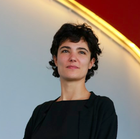
Area Politica internazionale
Competenze: governo delle società, movimenti di protesta, politica interna ed estera dell'Iran, trasformazione dello stato-nazione in Medio Oriente e Nord Africa
Parole chiave: autoritarismo, democrazia, Iran, Medio Oriente, movimenti sociali, società civile
Regione: ESTERO
Funzione/Ruolo
Professoressa di Politica del Medio Oriene e Relazioni internazionali alla School of Law and Government della Dublin City University.
Percorso professionale
Dopo la laurea in Scienze Politiche presso l’Università di Torino, consegue il titolo di Dottoressa di Ricerca in Scienze Sociali e Politiche presso l'Università di Siena e un Master in Scienze Politiche e Relazioni Internazionali presso l'Università di Torino. Insegna presso l'Università Cattolica di Milano tra il 2009 e il 2011, è ricercatrice presso l'Università di Torino nel 2010 e 2011 e raggiunge la Dublin City University come postdoctoral fellow nel 2011, mantenendo tale qualifica fino al 2013. È attualmente Assistant professor di politica del Medio Oriente e relazioni internazionali e ricopre incarichi di insegnamento presso l'Università Boğaziçi, Université Laval, Université di Montreal (UdeM), Università di Palermo e l’Ecole de management de Normadie.
Risultati scientifici
Fa parte dell’Advisory board del Cambridge Centre for Palestine Studies e del progetto di ricerca “What works? Sharing best practices in how civil society organisations use the internet in organising and building for socio-economic rights” finanziato dall’Irish Research Council e diretto da Aileen O'Carroll (Maynooth University) and David Landy (Trinity College Dublin).
Coordina lo Scambio Erasmus Plus International Credit Mobility (ICM) con Bethlehem University e fa parte della rete di formazione dottorale finanziata dall'ITN-Marie Curie “Around the Caspian”.
È Segretaria Generale della Società Italiana per gli Studi del Medio Oriente (SeSaMO) tra il 2013 e il 2016. Prima di raggiungere DCU, ha collaborato con diverse ONG nel campo dell'assistenza ai richiedenti asilo di origine iraniana e afgana in Italia e Turchia.
I suoi interessi di ricerca si concentrano sul governo delle società in Medio Oriente e Nord Africa in una prospettiva comparata e sulle mobilitazioni sociali e politiche. Lavora anche sulle migrazioni da e verso la regione. Pubblica su questi argomenti in diverse lingue (persiano, inglese, francese, spagnolo, italiano). Ha anche lavorato e pubblicato sui temi della precarietà nel mondo accademico e della libertà accademica in Medio Oriente e in Nord Africa, nell'Unione Europea e negli Stati Uniti. È coinvolta in attività di divulgazione non accademica, coinvolgendo sia i media che l'opinione pubblica.
Il suo lavoro è costruito su due “modi” principali di guardare ai fenomeni socio-politici. Il primo è lo studio del come le società sono governate attraverso strumenti quali l’ideologia, la violenza politica, le politiche pubbliche. In particolare, sta lavorando sull’ideologia riformista come modo di governo teso a produrre non solamente ordine pubblico ma anche a delimitare gli spazi di partecipazione politica – e sul come questo progetto di disciplinamento incontri resistenza. Ha completato una monografia (in corso di stampa per Palgrave McMillan) su questo argomento, intitolata Political Participation in Iran: From Khatami to the Green Movement. Il secondo approccio si concentra sulla comparazione tra modelli di governo nei regimi democratici e autoritari. Testando la comparabilità di due regimi che normalmente vengono considerati “non comparabili”, si mette in discussione l’autonomia del politico rispetto a ideologia e gestione delle risorse.
Altri ambiti restano di grande interesse per il suo lavoro, come il governo delle migrazioni, la precarietà lavorativa, la libertà accademica.
Attività editoriali e pubblicazioni
Paola Rivetti ha all’attivo numerose pubblicazioni scientifiche. L’elenco completo e aggiornato è disponibile qui: DCU_Pubblicazioni di Paola Rivetti.
Ha inoltre firmato diversi articoli di analisi politica per organi di stampa, fra cui Expresso Portugal, RTE News, News Talk Radio, Ghalamro, Presidential Power, LeftEast, QCode Mag, il Lavoro Culturale, Zapruder, Irish Humanities Association, Effimera, Global.
Riconoscimenti e premi
2018: Premio “Researcher of the Year” (categoria: early-career) conferito dall’Irish Research Council.
2018: Premio “Excellence in Research” conferito dal rettore della Dublin City University (categoria: early-career).
2006: Premio Optime, Camera di commercio di Torino.
2005/06: Premio dell’Università di Torino per la migliore tesi di Laurea (specialistica) in Scienze politiche dell’anno.
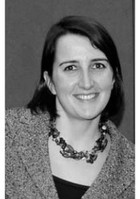
Funzione/Ruolo
Ricercatrice presso la Banca d’Italia, Dipartimento Economia e Statistica, Servizio Struttura Economica, Divisione Economia e Diritto
Percorso professionale
Ha conseguito la laurea specialistica in Discipline Economiche e Sociali presso l’Università Commerciale L. Bocconi nel 2007, sotto la supervisione della prof.ssa Eliana La Ferrara. Nello stesso anno ha svolto un periodo di internship presso la Commissione Europea, DG Development, a Bruxelles. Nel 2014 ha ottenuto il PhD in Economics presso la University College London. Dal 2012 lavora come ricercatrice presso il Dipartimento Economia e Statistica della Banca d’Italia.
Risultati scientifici
L’attività di ricerca di Lucia Rizzica si sviluppa nel campo della microeconomia applicata, spaziando tra temi diversi: da quelli legati all’emigrazione dai paesi in via di sviluppo e ai suoi effetti sul paese d’origine, a quelli dell’economia del lavoro, in particolare l’offerta di lavoro femminile e il pubblico impiego, a quelli legati allo sviluppo del capitale umano, con particolare attenzione all’accesso all’istruzione universitaria.
Negli ultimi anni, inoltre, ha avviato alcuni progetti di ricerca volti a misurare l’entità e stimare l’impatto dell’attività criminale sull’economia italiana, focalizzandosi specialmente sulla criminalità organizzata e sulla corruzione.
Attività editoriali e pubblicazioni
Lucia Rizzica è autrice delle seguenti pubblicazioni scientifiche:
(2018) Carta F , Rizzica L. Early Kindergarten, maternal labor supply and children’s outcomes: evidence from Italy. Journal of Public Economics,58: 79–102.
(2018) Rizzica L.When the cat’s away…the effect of spousal migration on investments on children.The World Bank Economic Review, forthcoming, doi: 10.1093/wber/lhw050.
(2008) Rizzica L. The Impact of Skilled Migration on the Sending Country: Evidence from African Medical Brain Drain. Rivista di Politica Economica, vol. 98(6).
Ha inoltre pubblicato i seguenti articoli sulle collane editoriali della Banca d’Italia:
(2016) Rizzica L.Why go public? A study on the individual determinants of public sector employment choice.Questioni di Economia e Finanza (Occasional Papers) 343, Bank of Italy, Economic Research and International Relations Area.
(2016) Giorgiantonio C, Orlando T, Palumbo G, Rizzica L.Incentivi e selezione nel pubblico impiego.Questioni di Economia e Finanza (Occasional Papers) 342, Bank of Italy, Economic Research and International Relations Area.
(2016) Occhilupo R, Rizzica L. Incentivi e valutazione dei dirigenti pubblici. Questioni di Economia e Finanza (Occasional Papers) 310, Bank of Italy, Economic Research and International Relations Area.
(2015) Rizzica L.,The use of fixed term contracts and the (adverse) selection of public sector workers.Temi di discussione (Economic working papers) 1041, Bank of Italy, Economic Research and International Relations Area.
(2015) Rizzica L, Tonello M. Exposure to media and corruption perceptions. Temi di discussione (Economic working papers) 1043, Bank of Italy, Economic Research and International Relations Area.
(2014) Cassetta A, Pauselli C, Rizzica L, Tonello M. Exploring flows to tax havens through means of a gravity model: evidence from Italy.Questioni di Economia e Finanza (Occasional Papers) 236, Bank of Italy, Economic Research and International Relations Area.
(2013) Rizzica L.Home or away? Gender differences in the effects of an expansion of tertiary education supply.Questioni di Economia e Finanza (Occasional Papers) 181, Bank of Italy, Economic Research and International Relations Area.
Riconoscimenti e premi
Durante gli studi all’università Bocconi, Lucia Rizzica ha ricevuto la borsa di studio per studenti eccellenti (Bocconi Graduate Merit Awards).
Con la tesi di laurea specialistica Doctors on the move: an empirical study on African Medical Brain Drain ha vinto il premio Angelo Costa, indetto da Confindustria, e il premio Fausto Vicarelli, promosso dall’EIEF.
Nel corso degli studi di dottorato, ha ricevuto prima la borsa di studio del Centro Studi Luca d’Agliano, poi la borsa di studio intitolata a B. Stringher, erogata dalla Banca d’Italia e, infine, la borsa W. M. Gorman della Univeristy College of London. Ha inoltre vinto, rinunciandovi per incompatibilità con le altre borse di studio, la borsa di studio Giovanna Crivelli finanziata da Unicredit.
Nel 2015, con l’articolo Female Employment and pre-kindergarten: on the unintended effects of an Italian reform, ha vinto, con Francesca Carta, il premio “Etta Chiuri”, promosso dalla Società Italiana di Economia Pubblica (SIEP) e l’International Institute of Public Finance (IIPF) Young Economist Award. Nello stesso anno, con Marco Tonello, ha vinto il premio Giorgio Rota dell’Istituto Einaudi, per il paper Persuadable Perceptions: media exposure and corruption measures.



